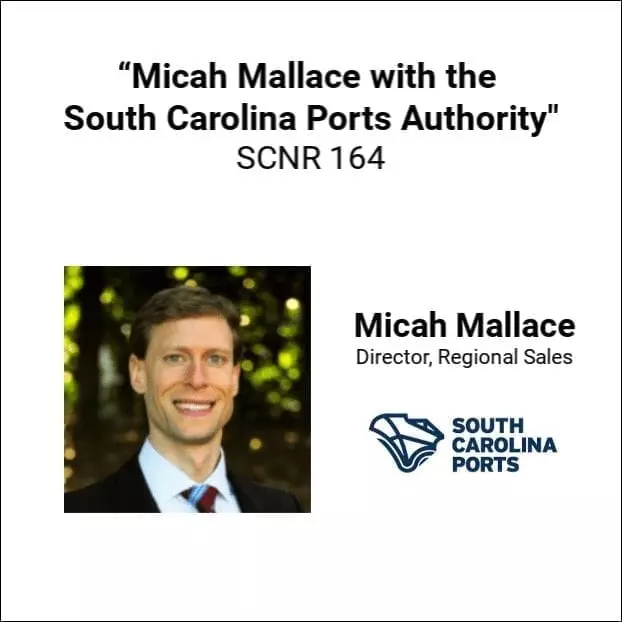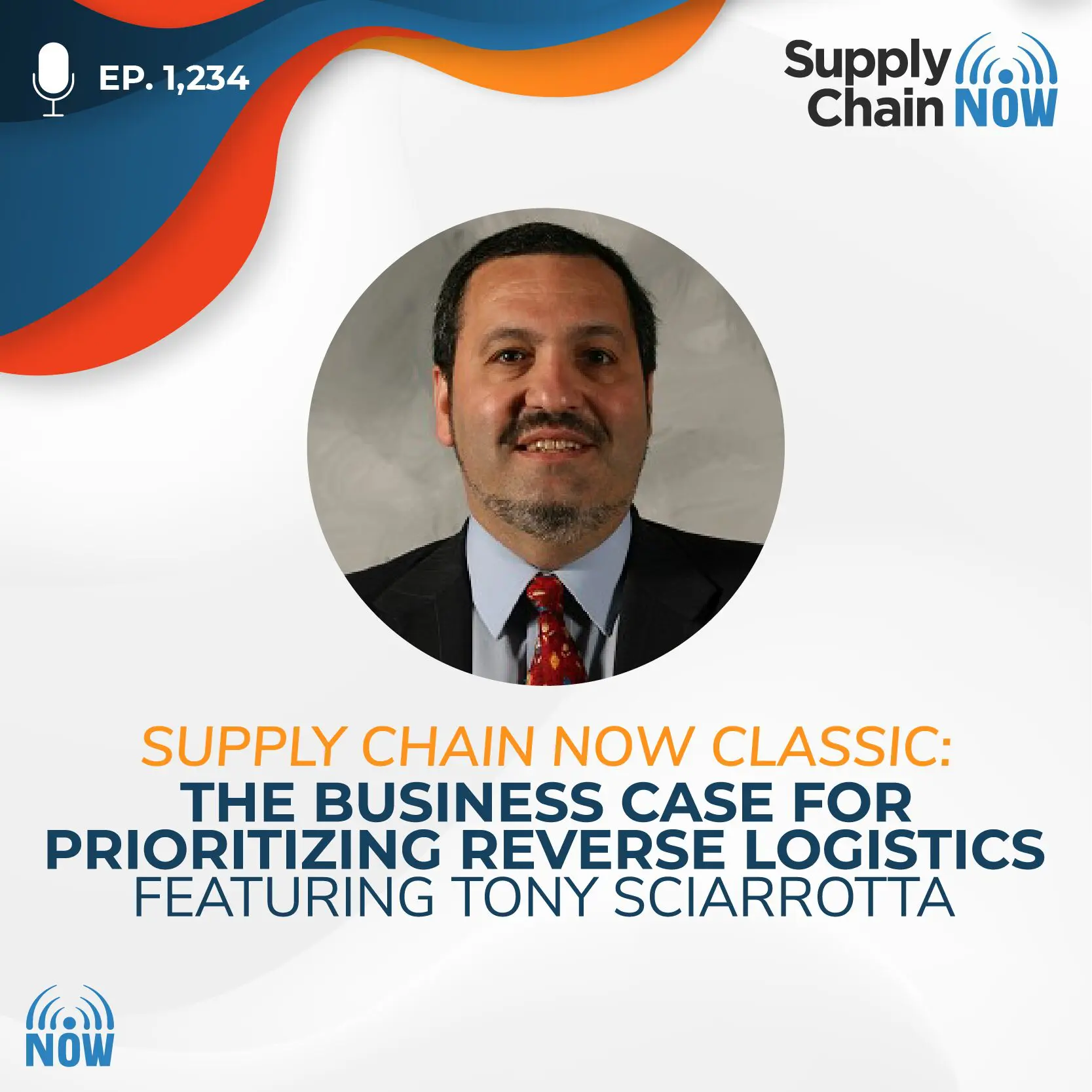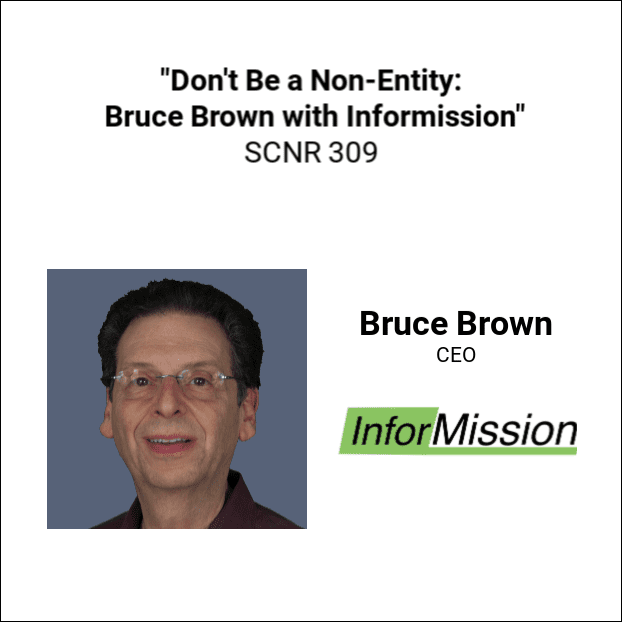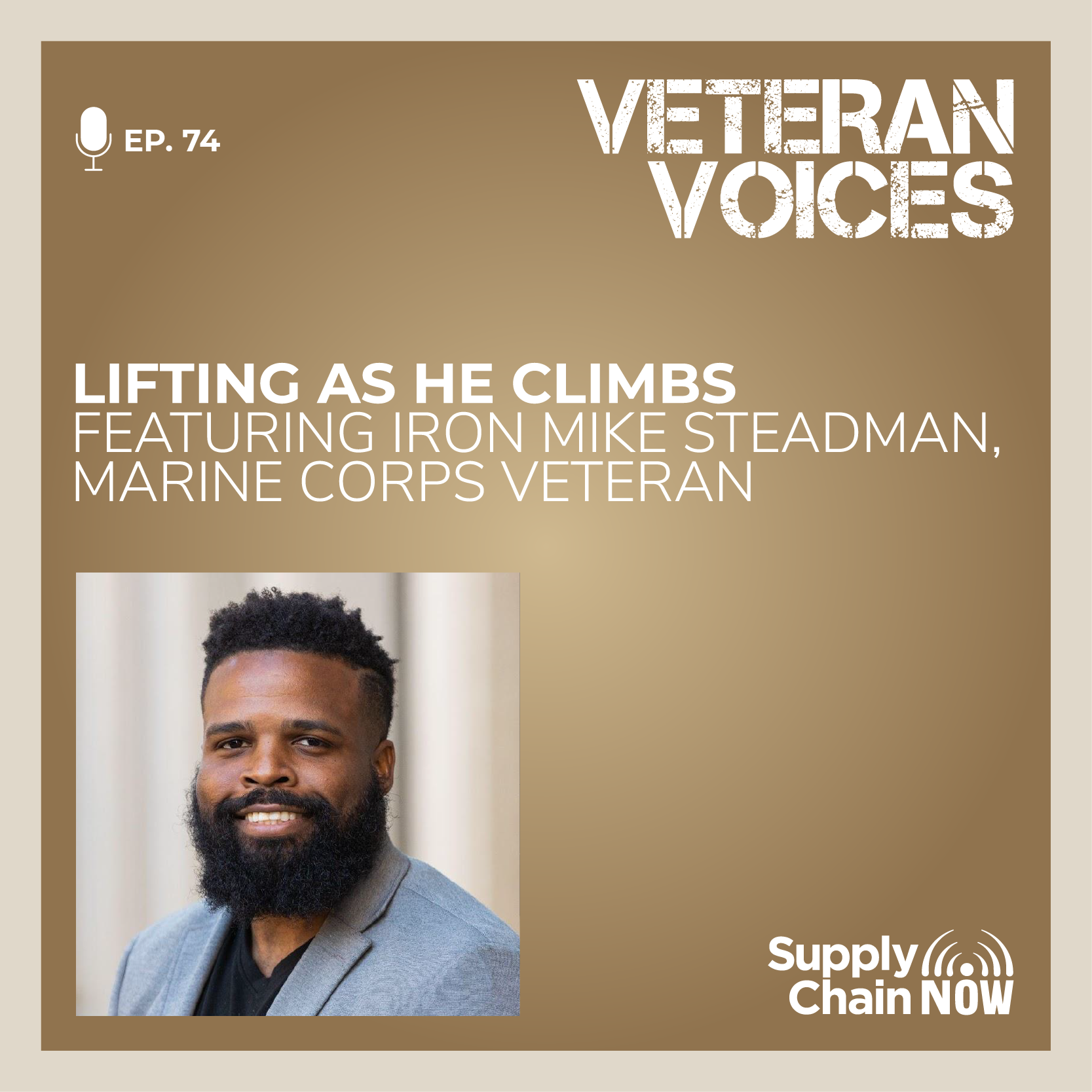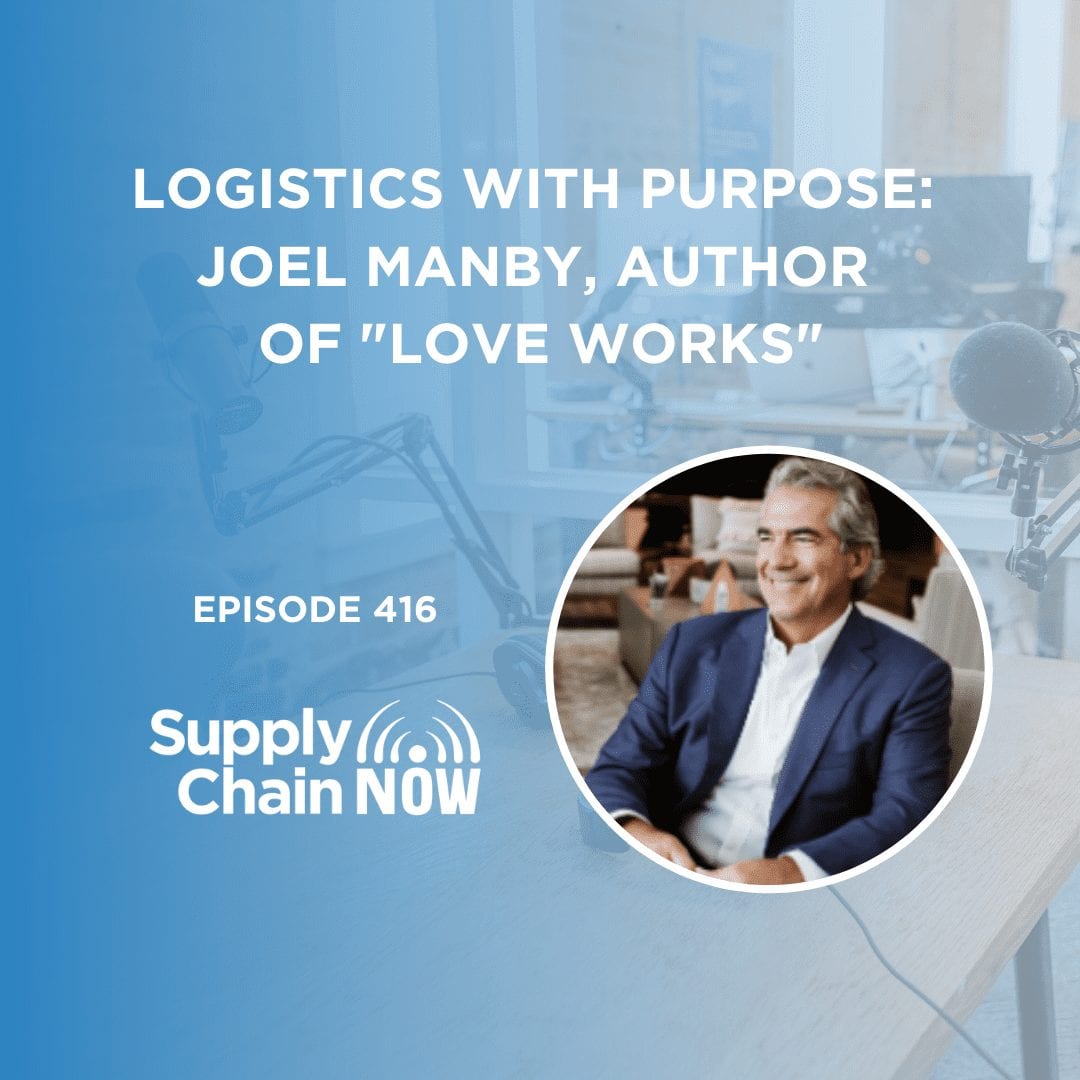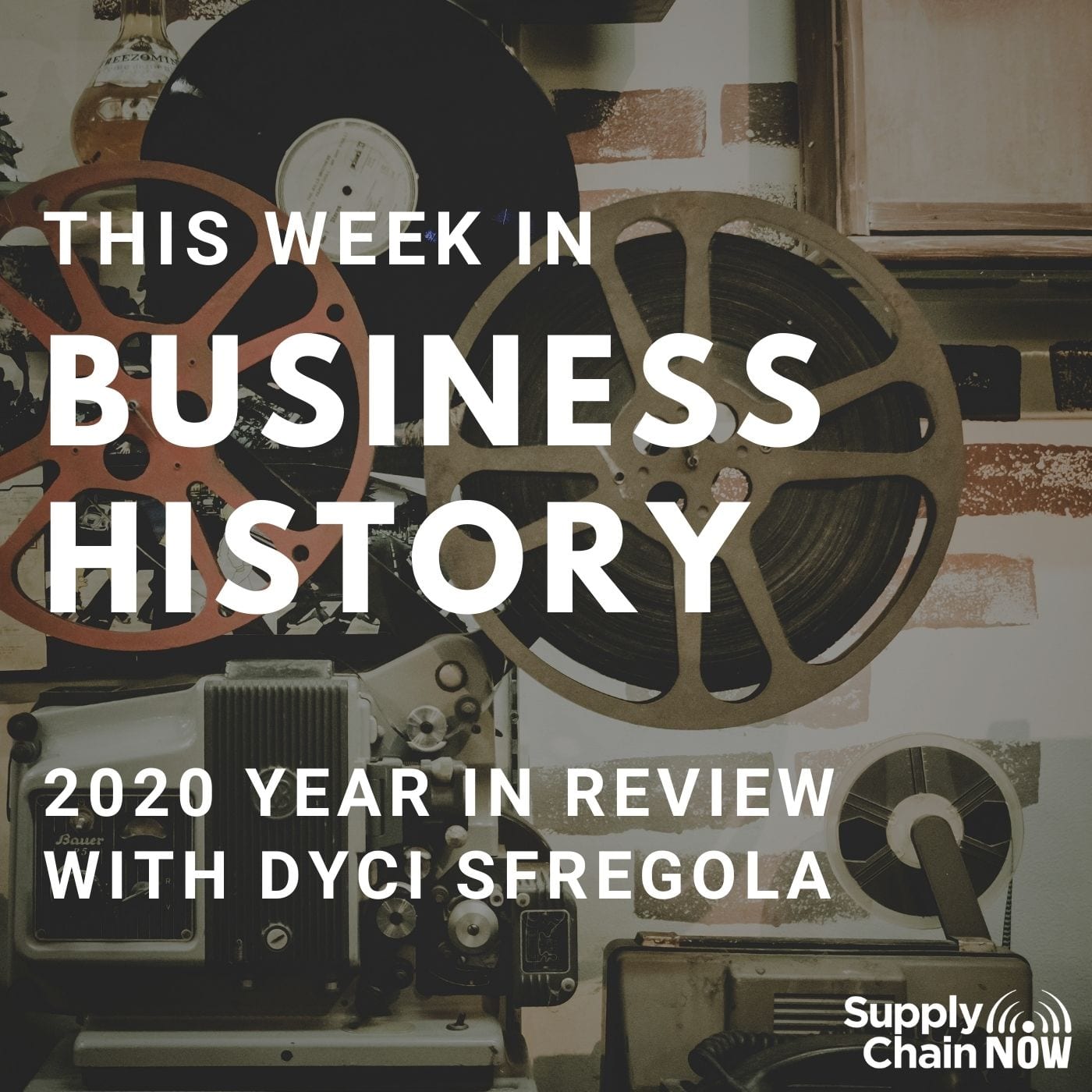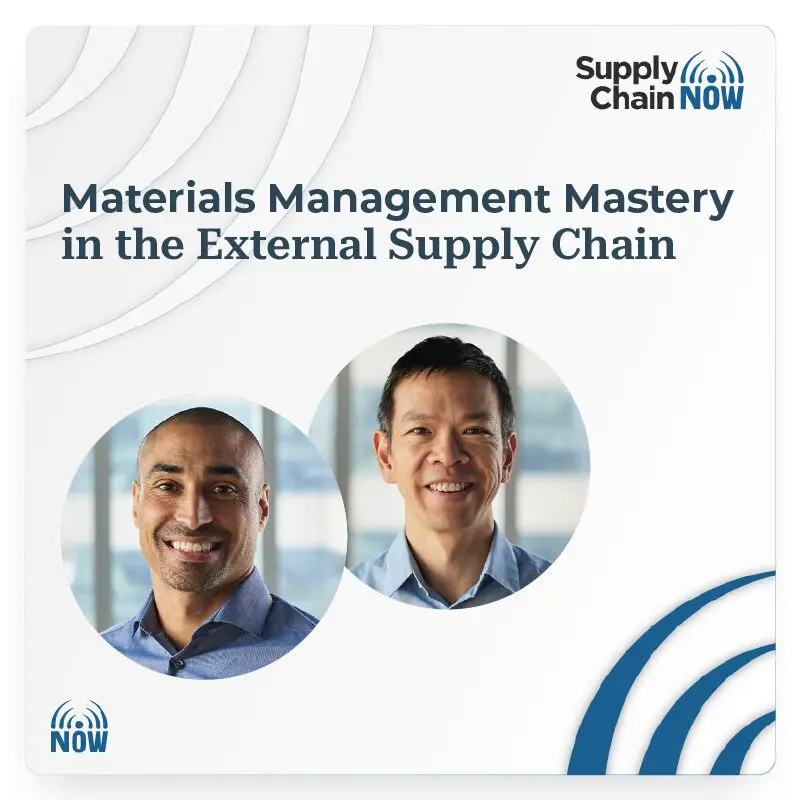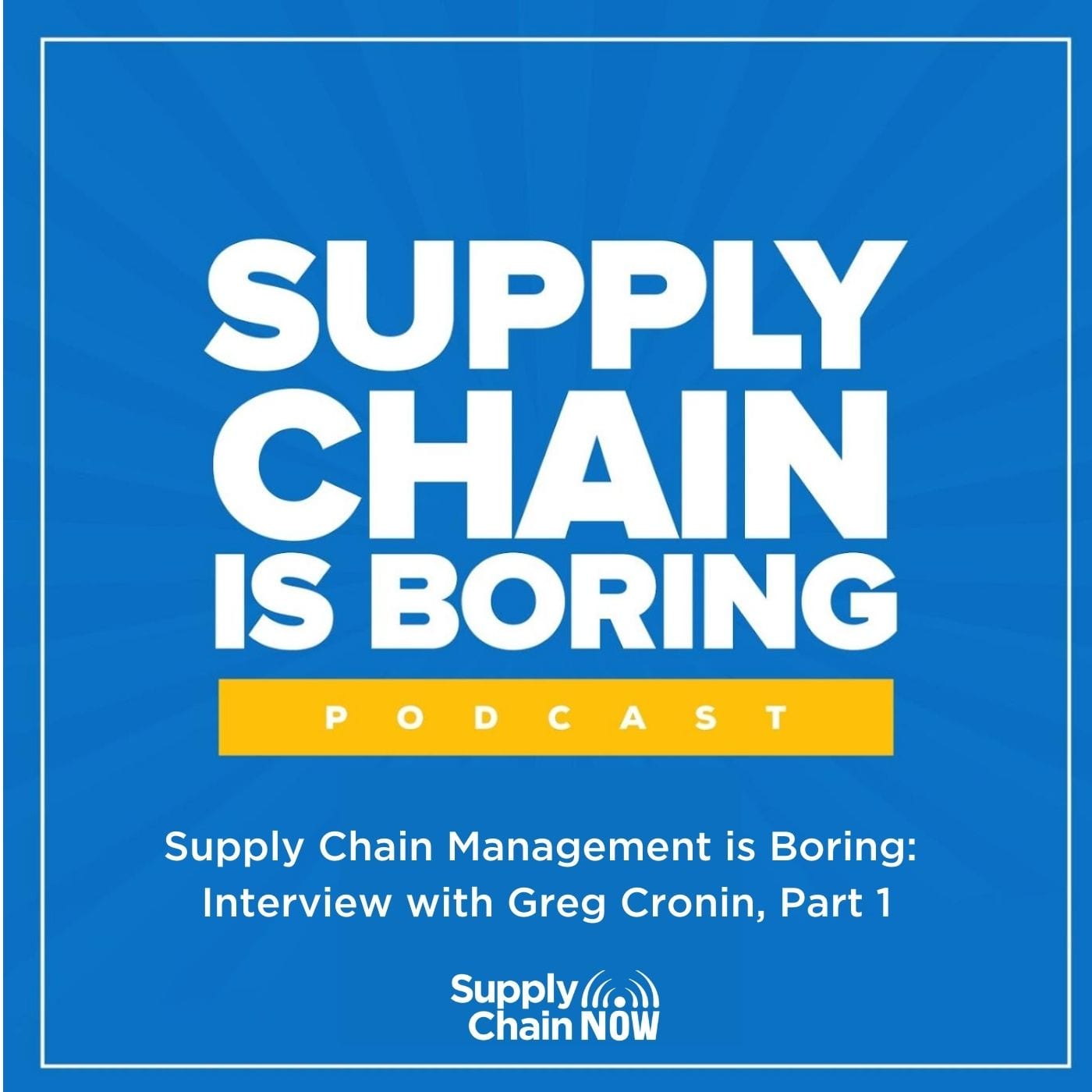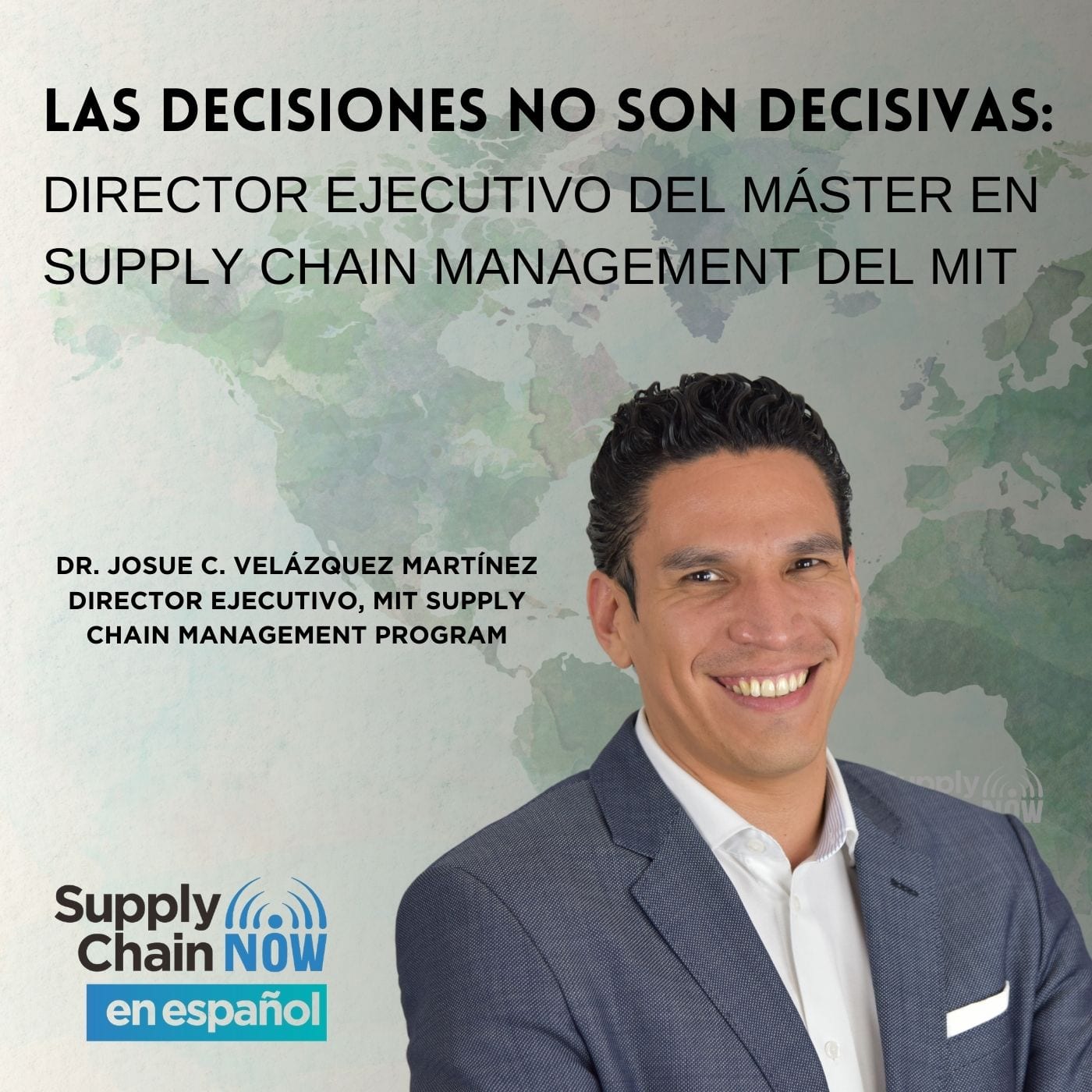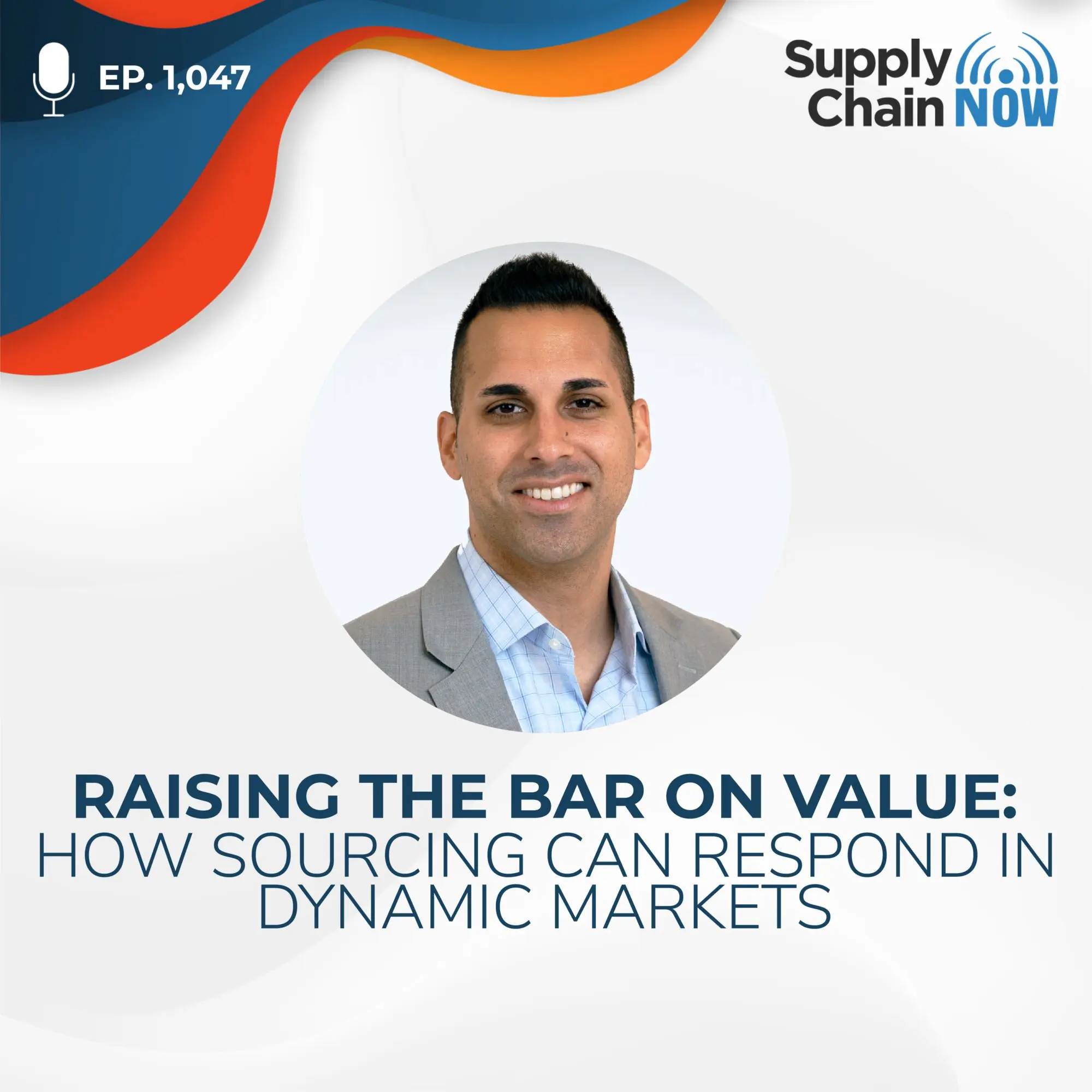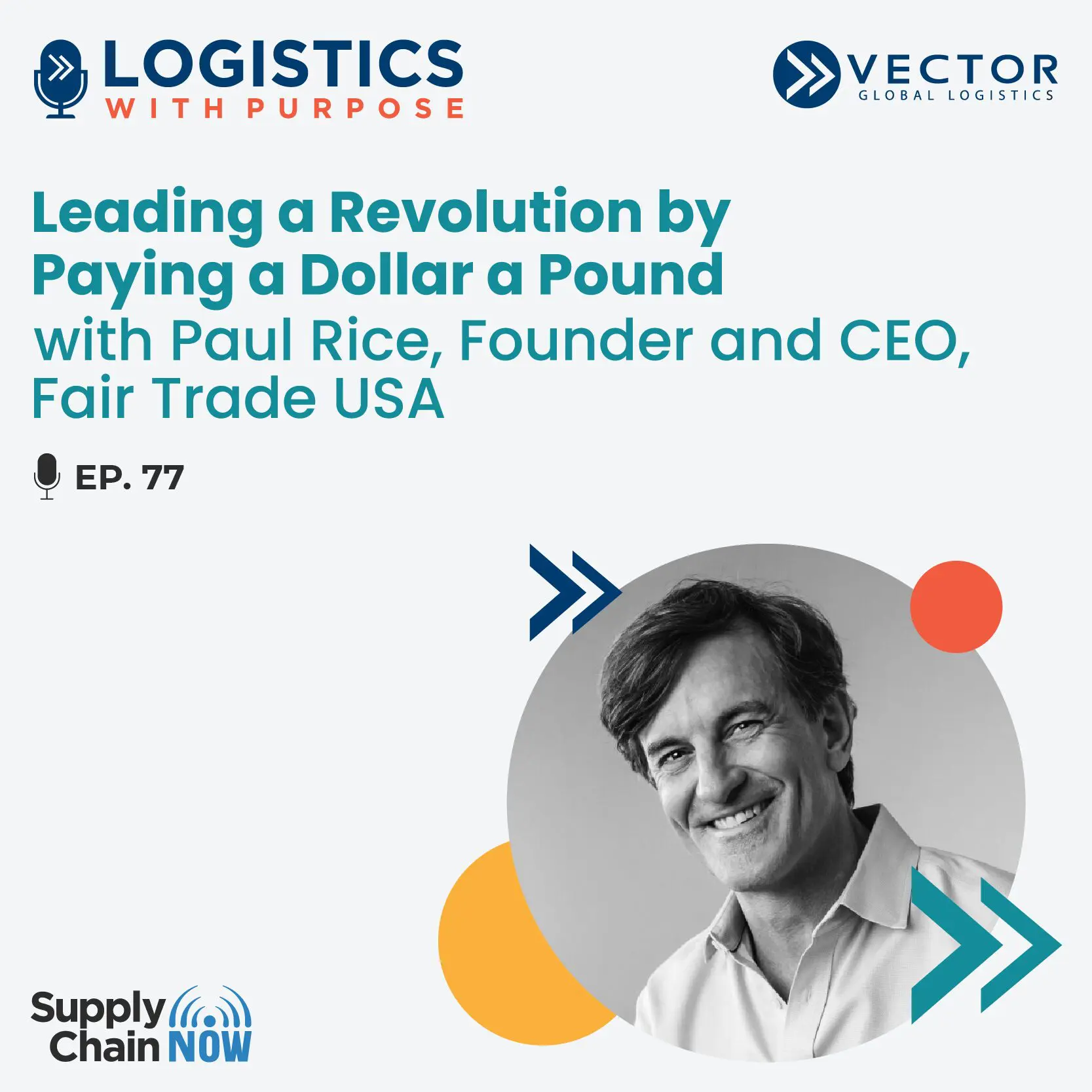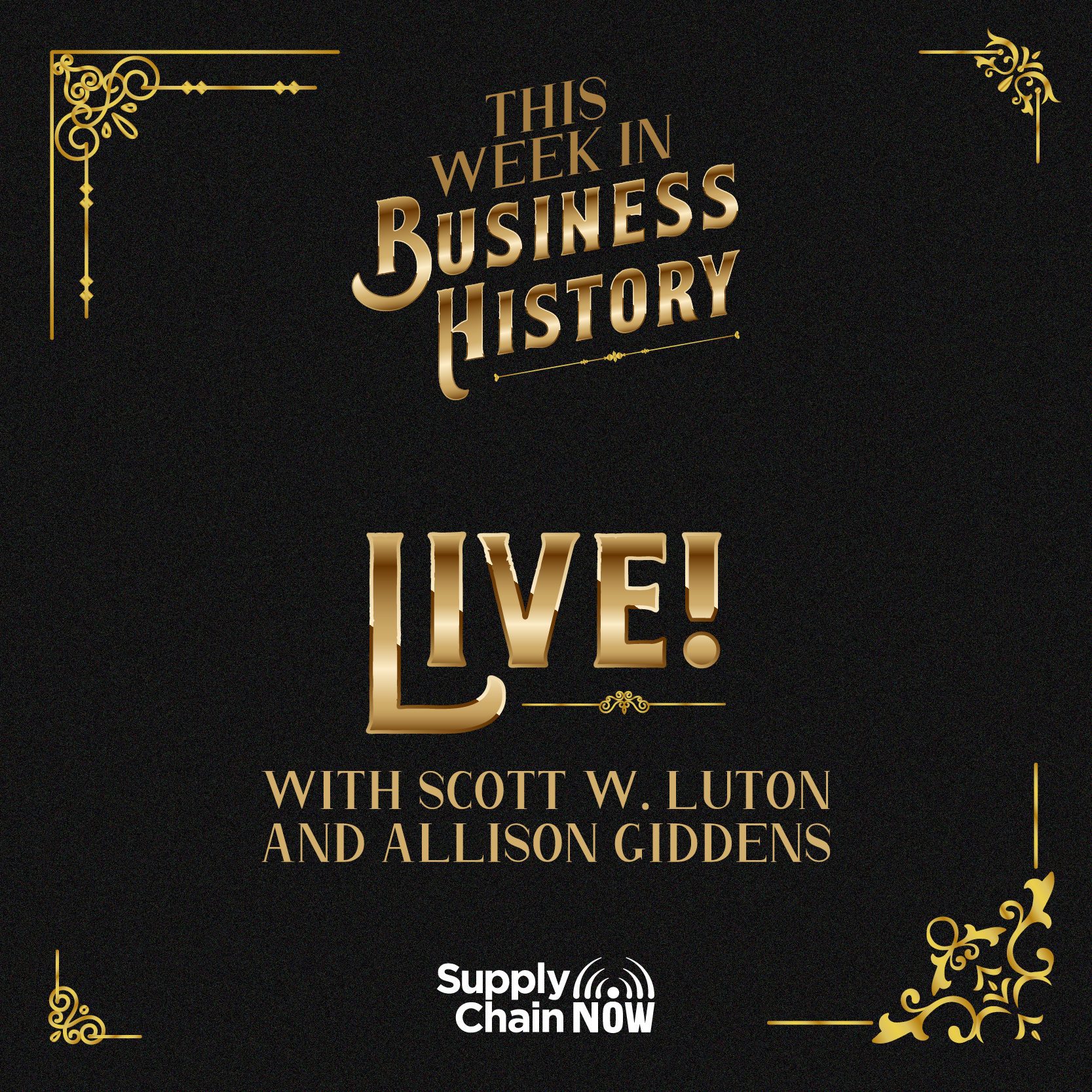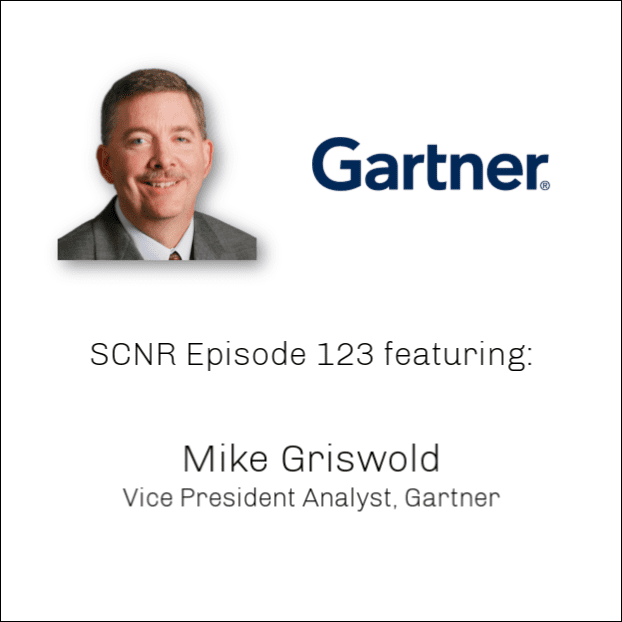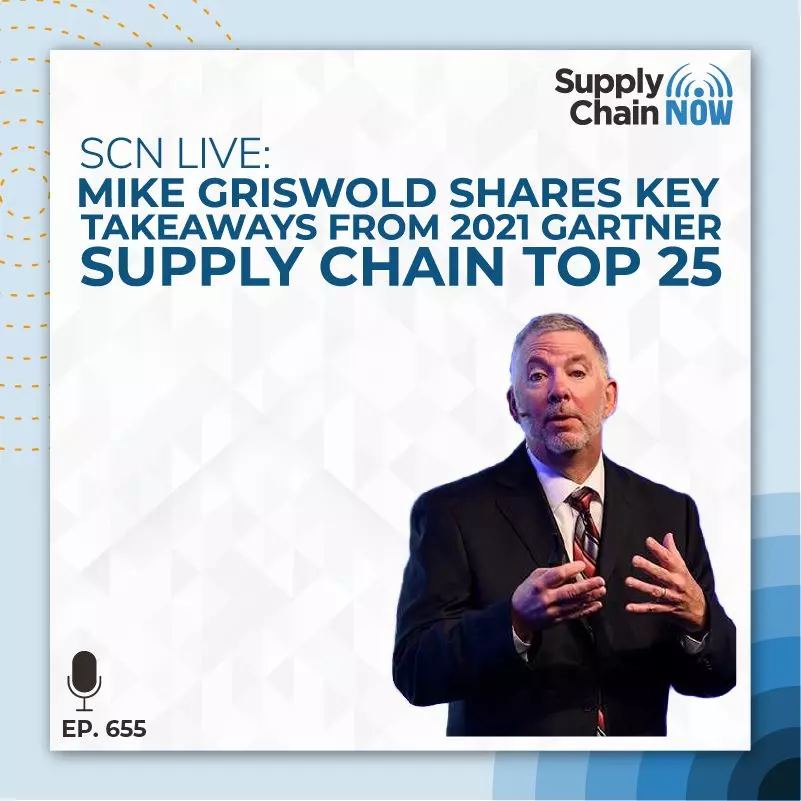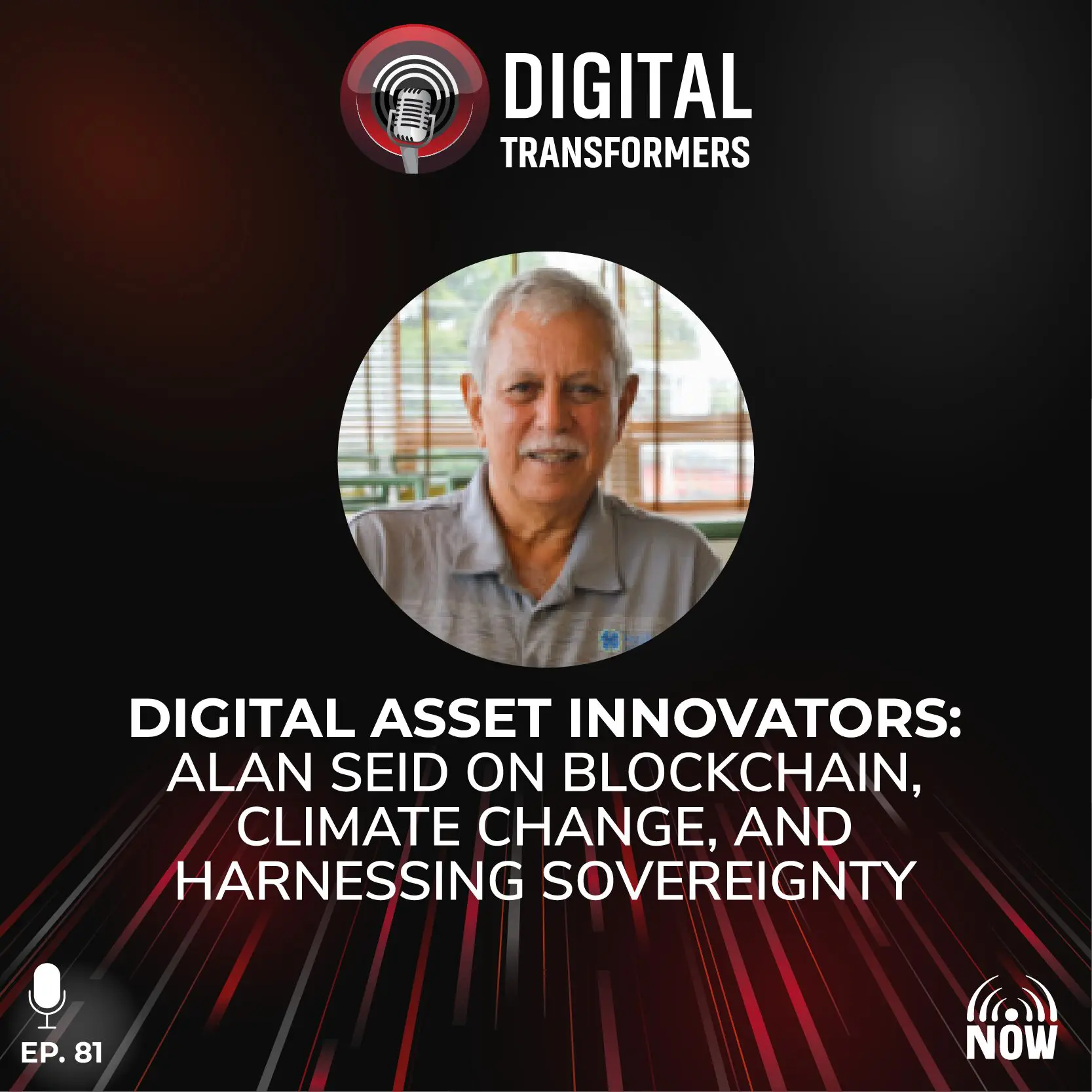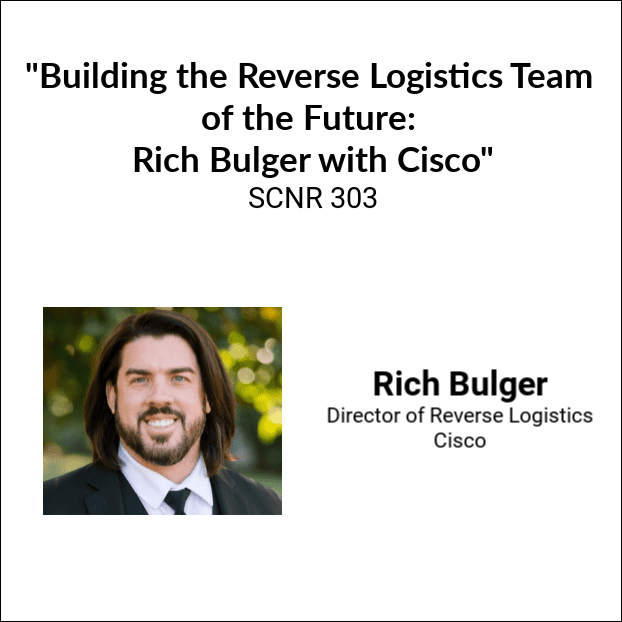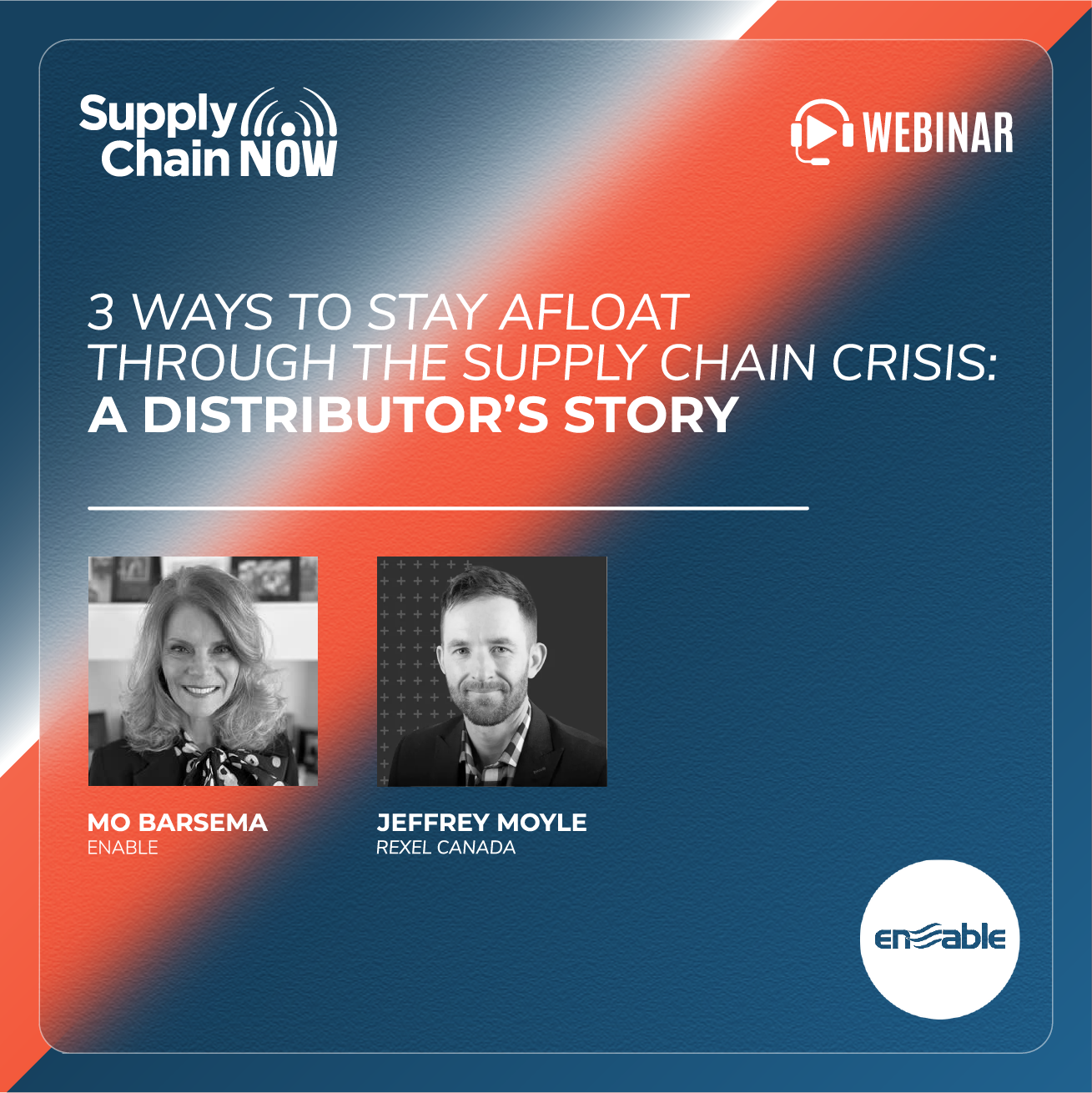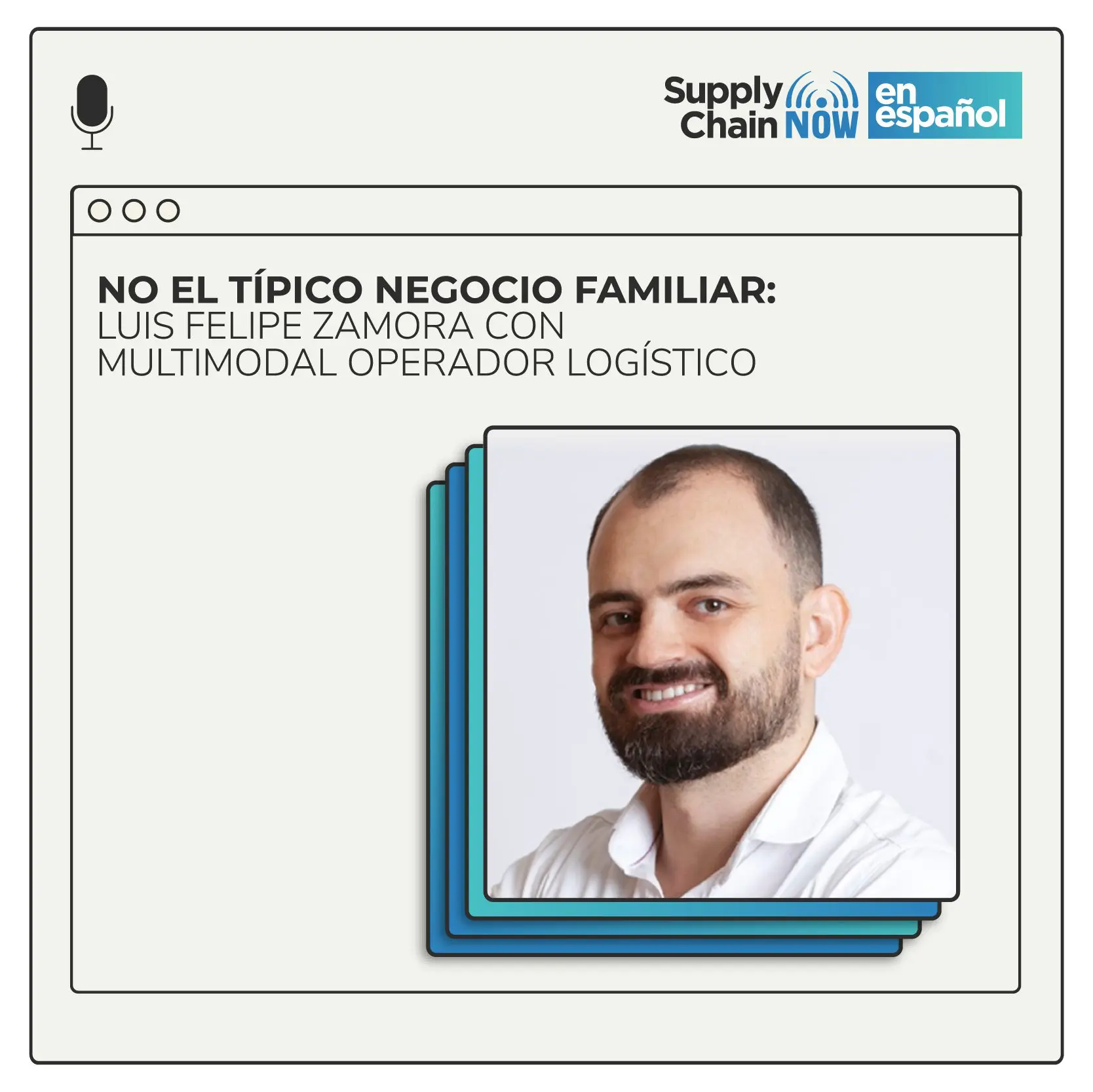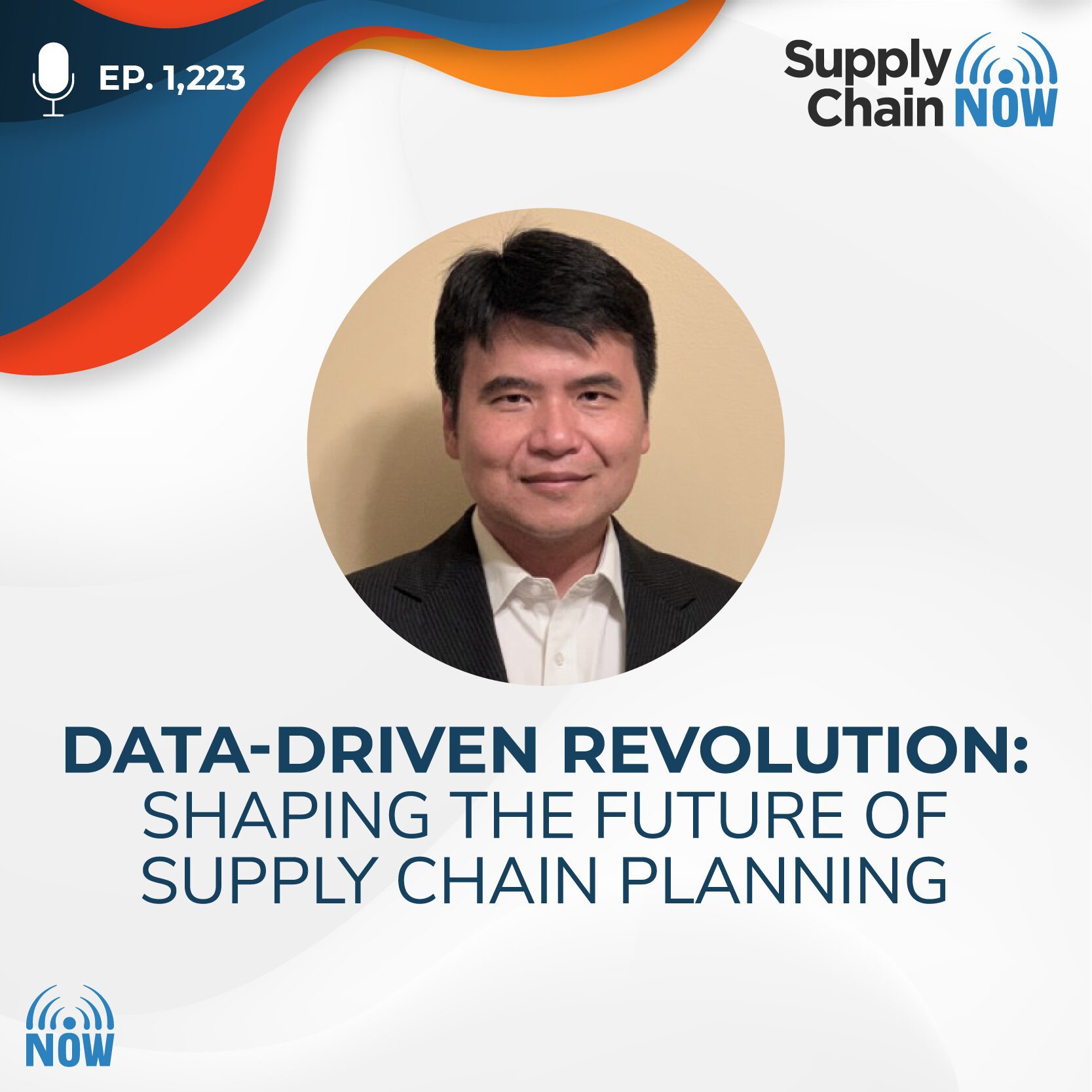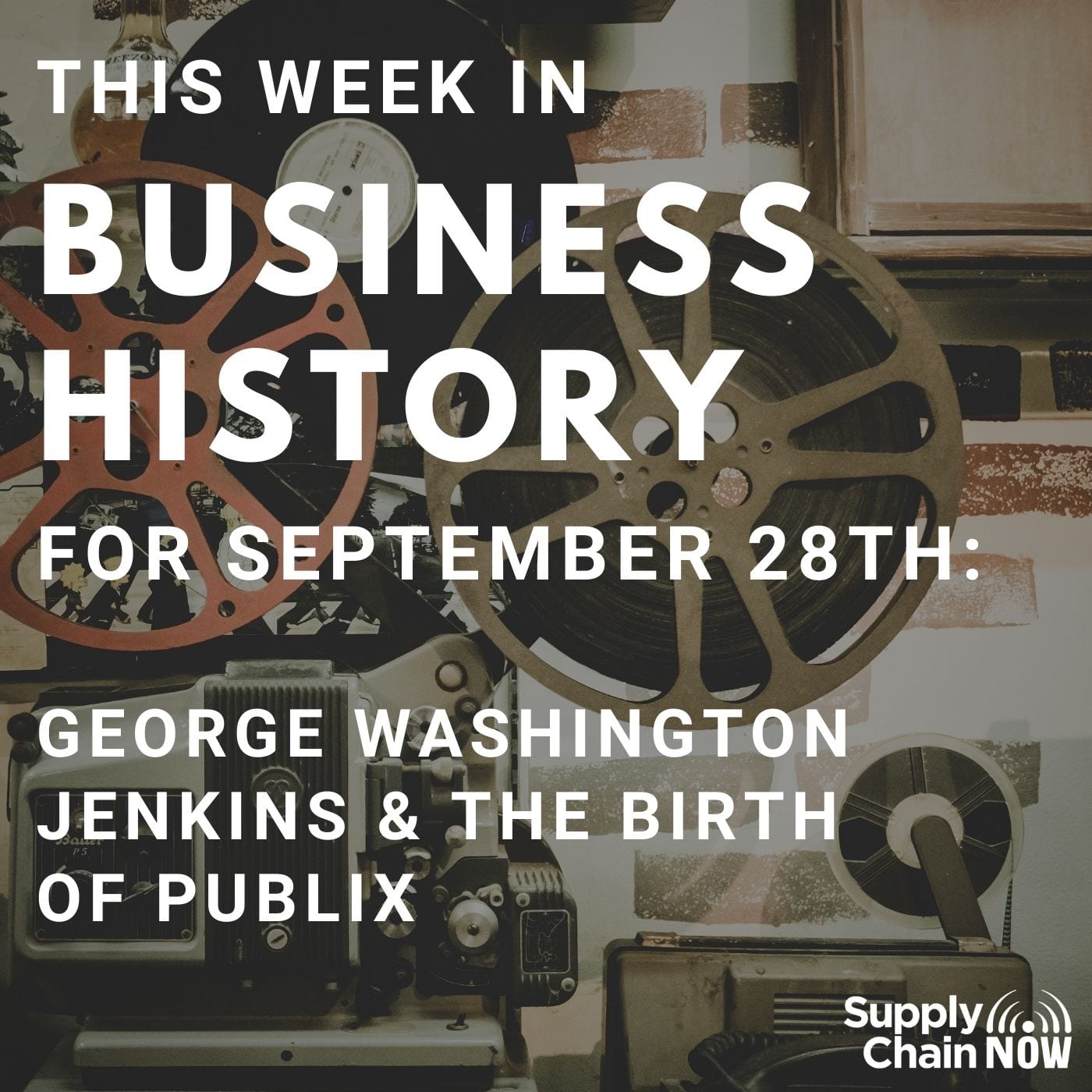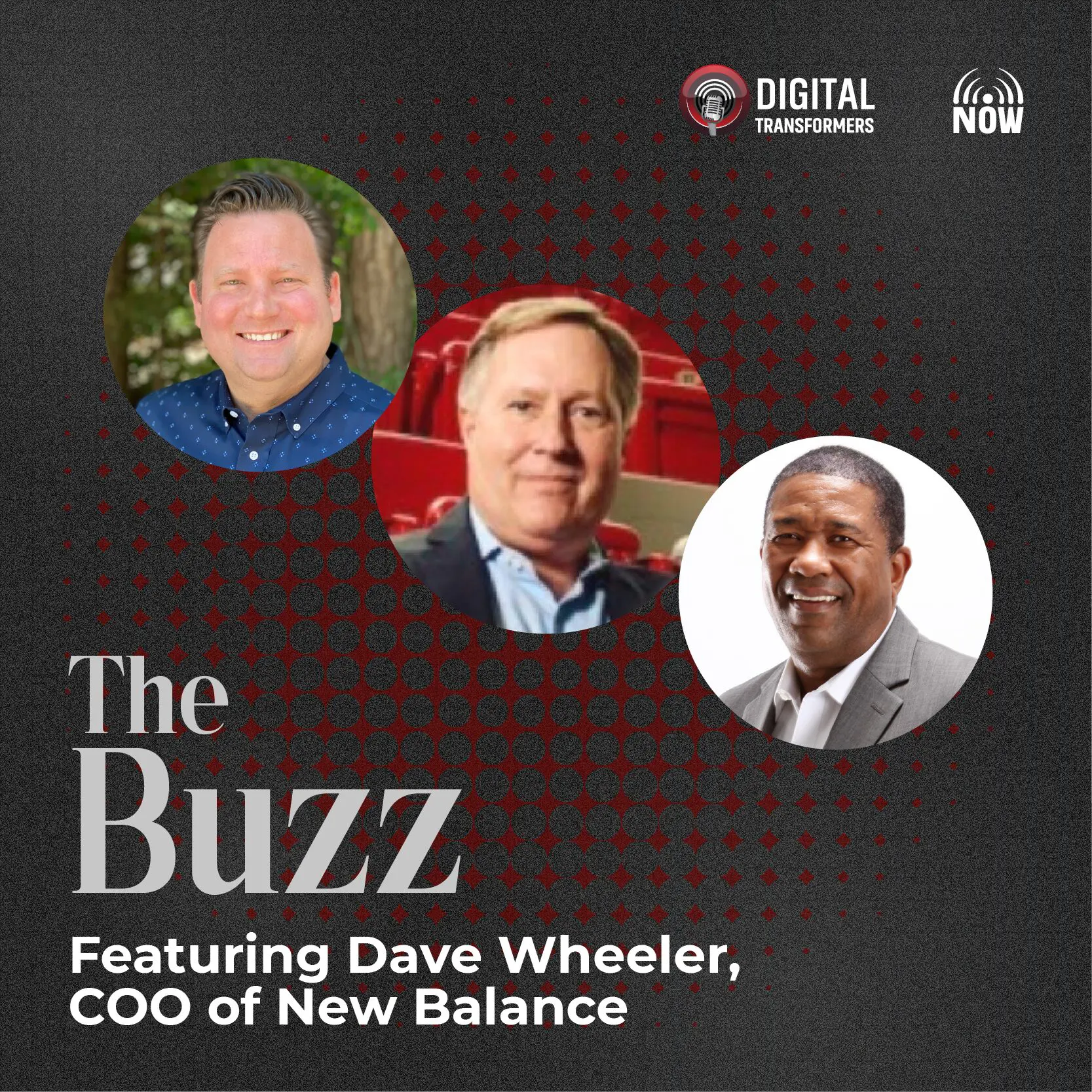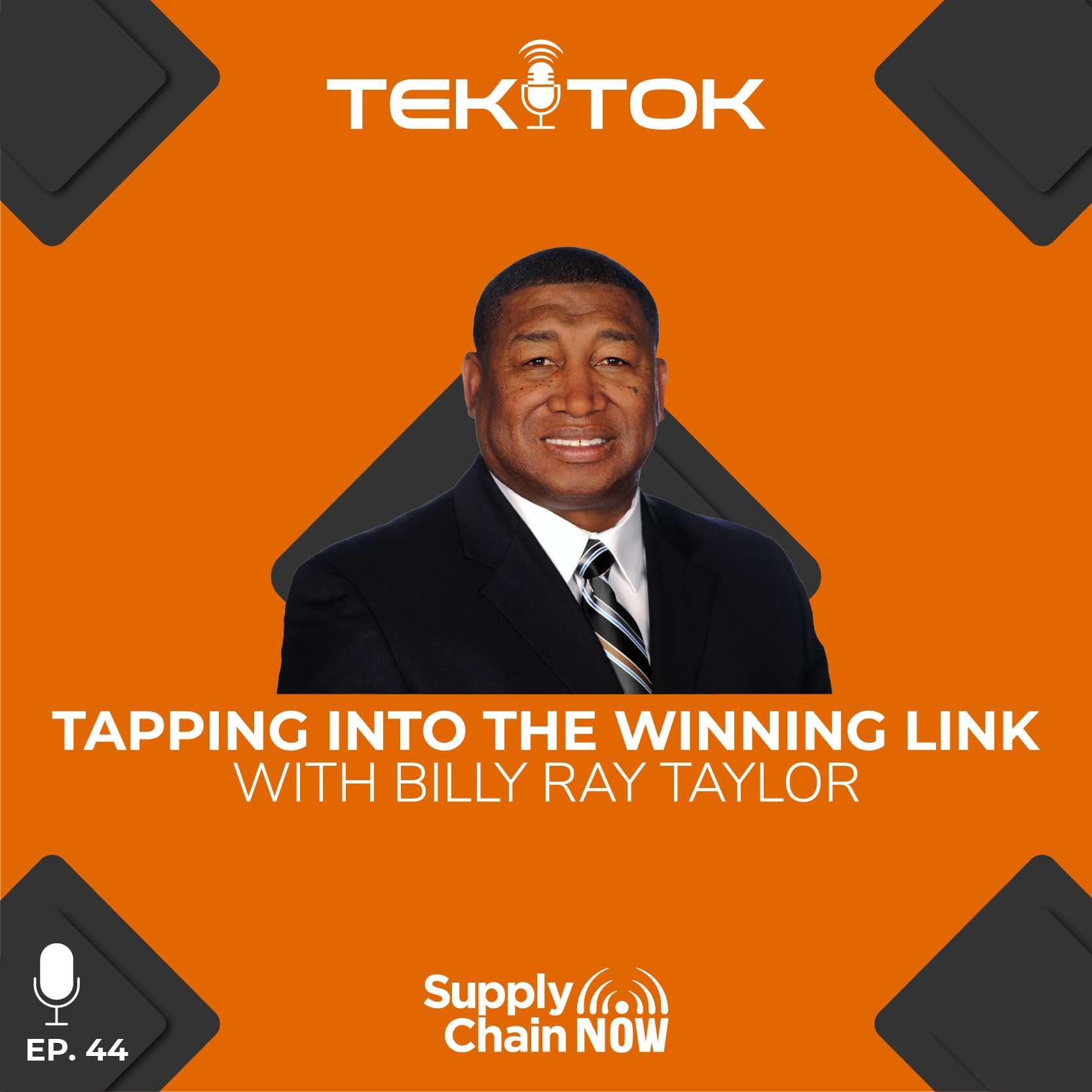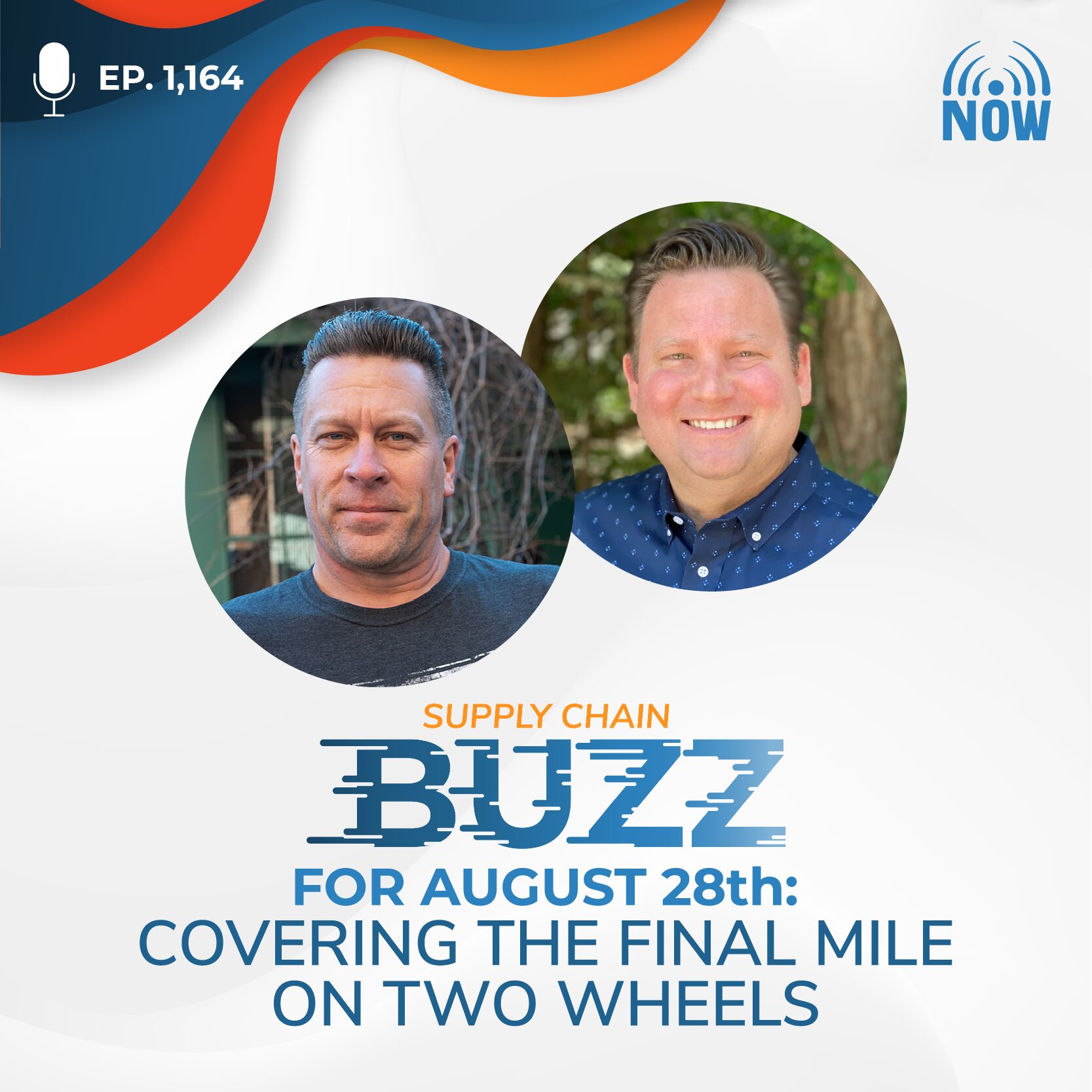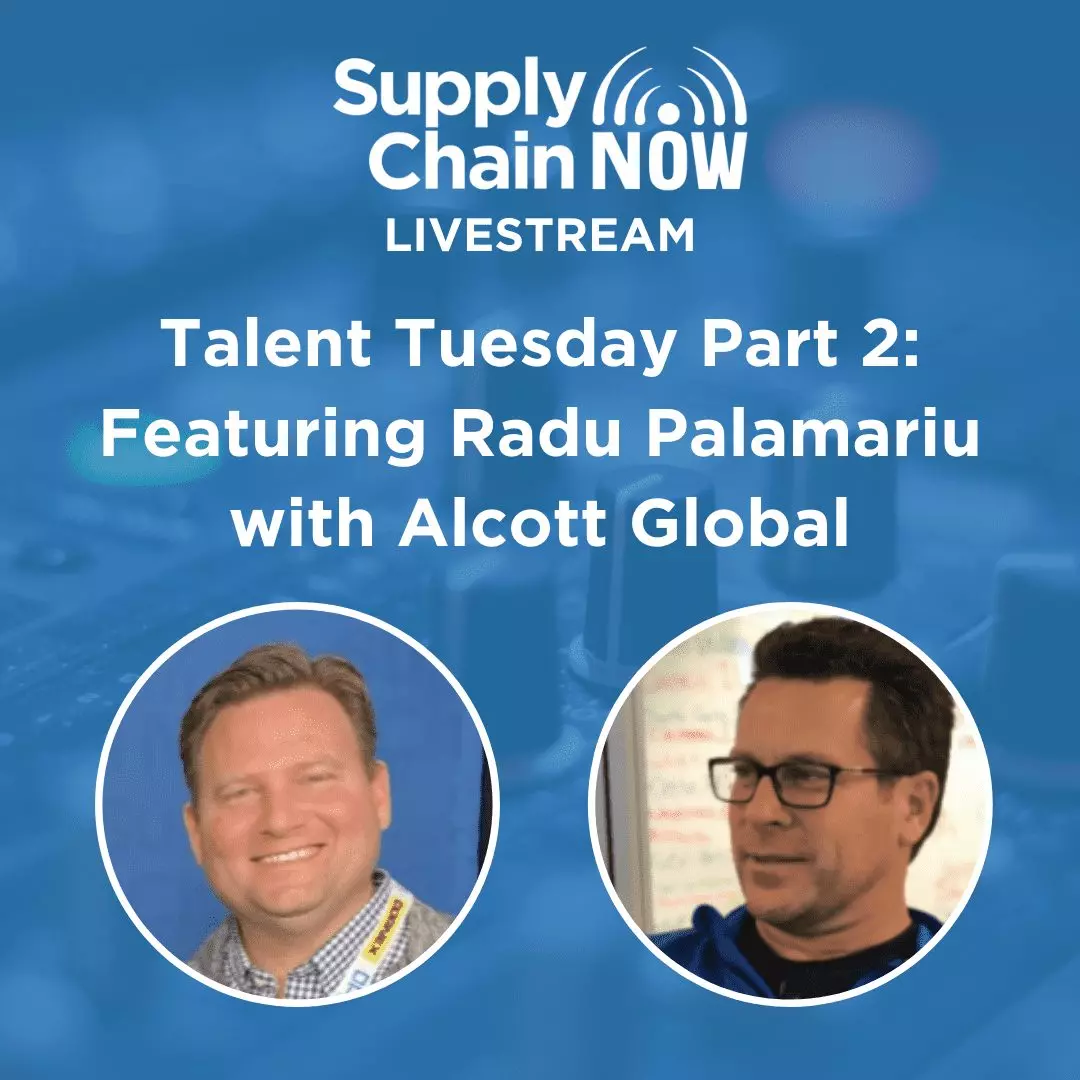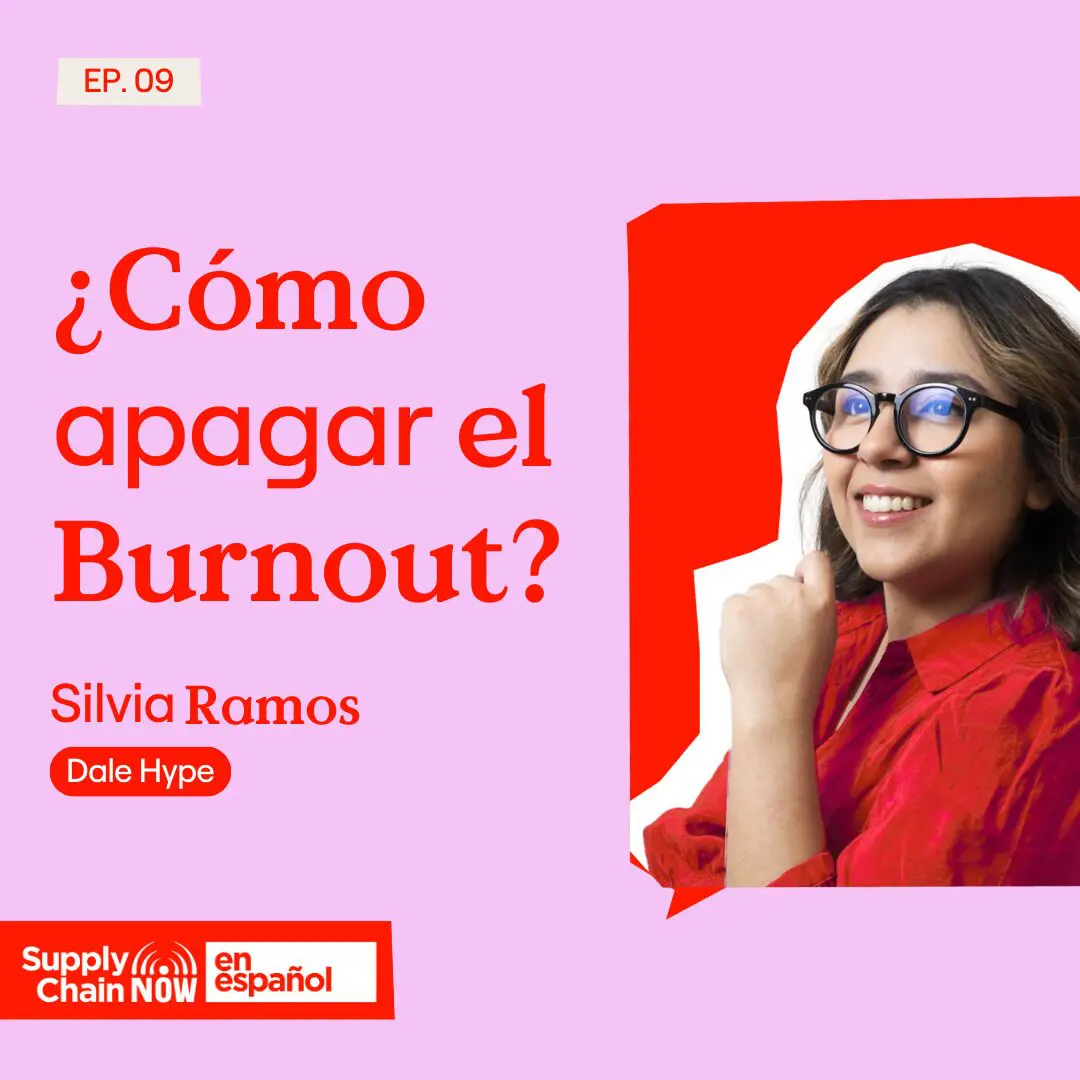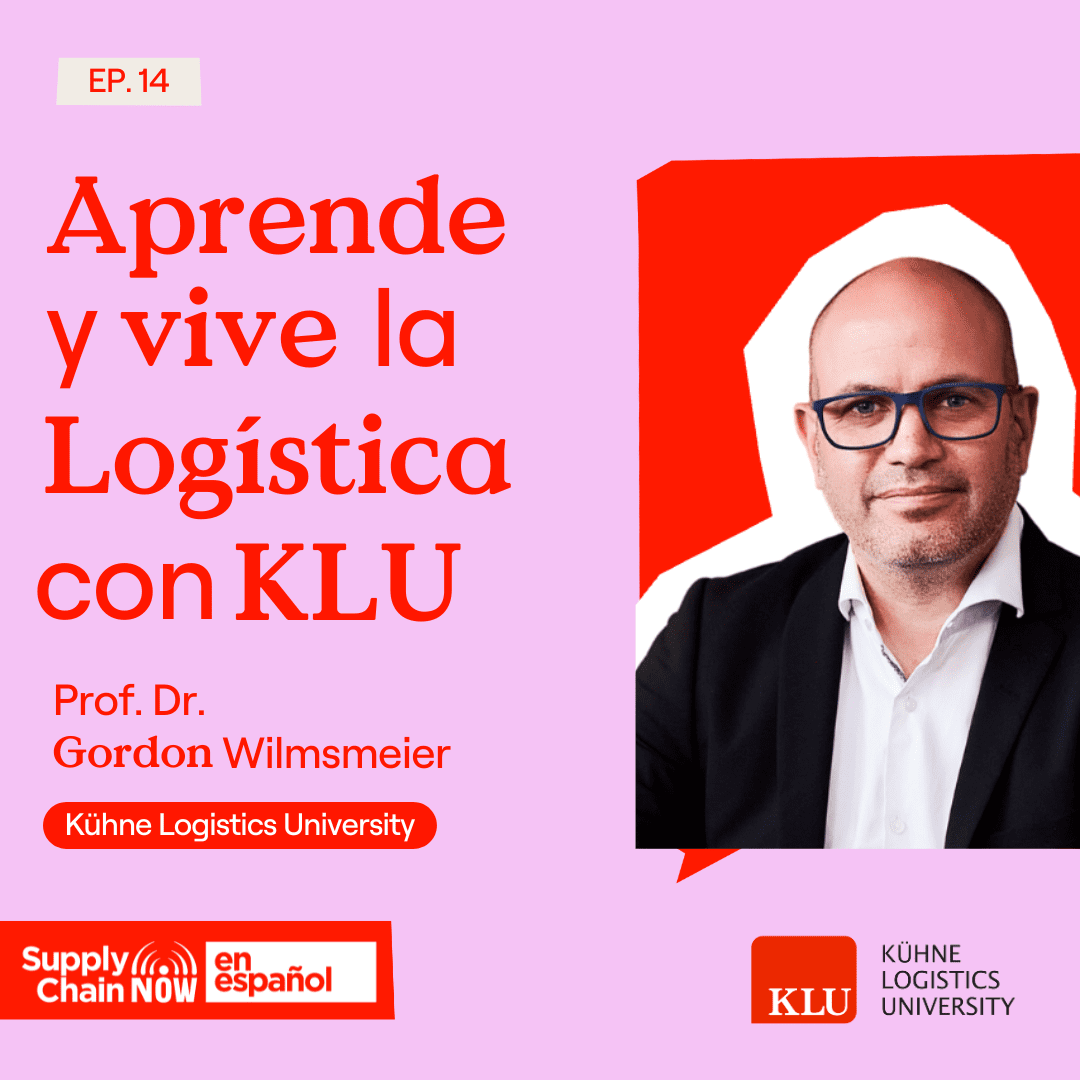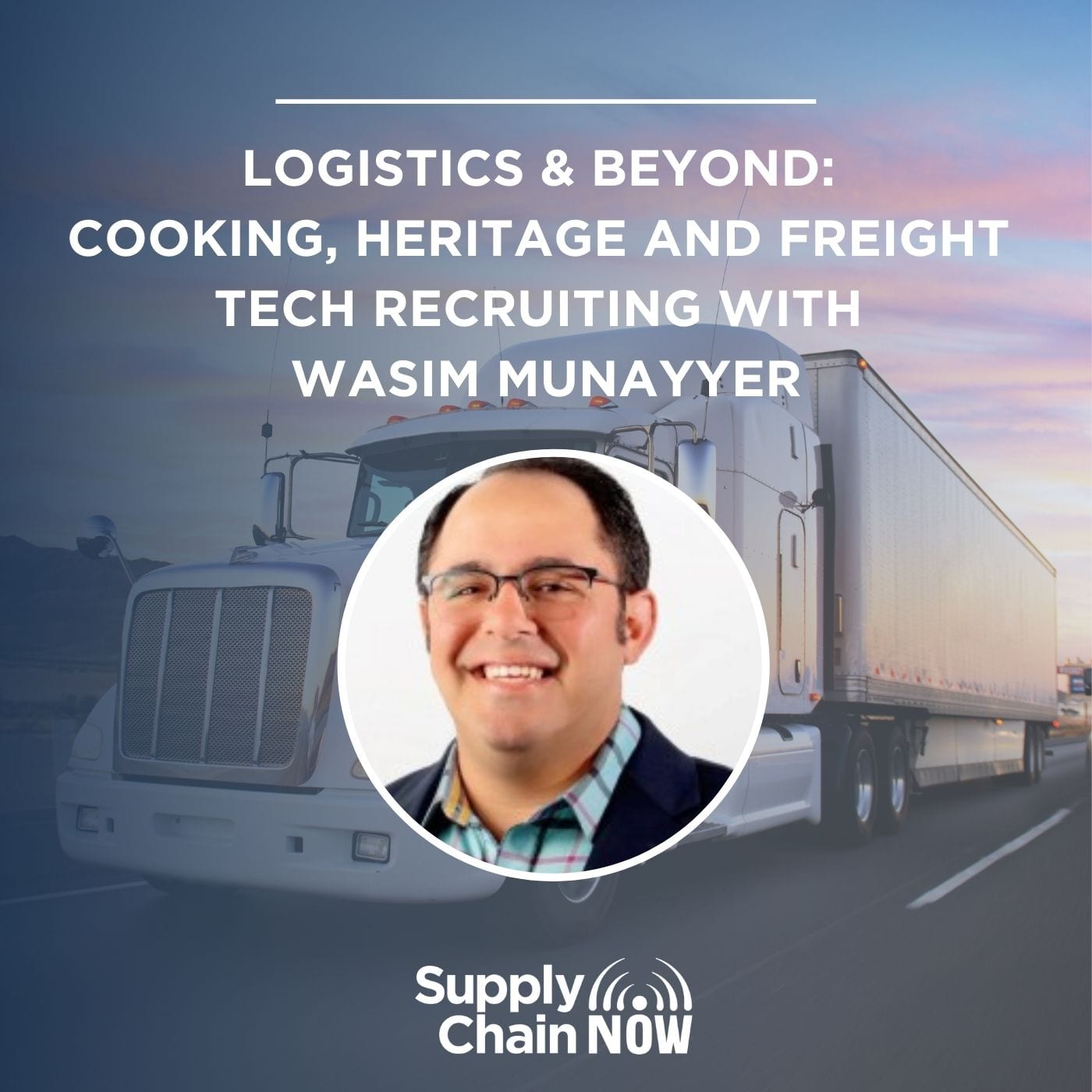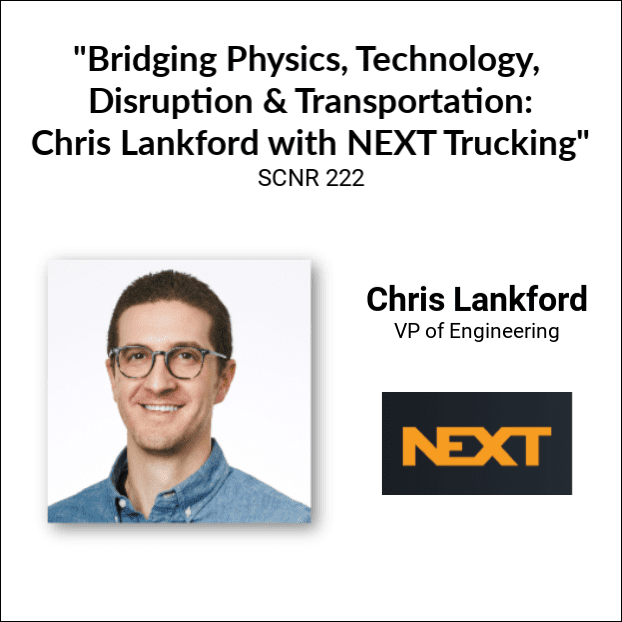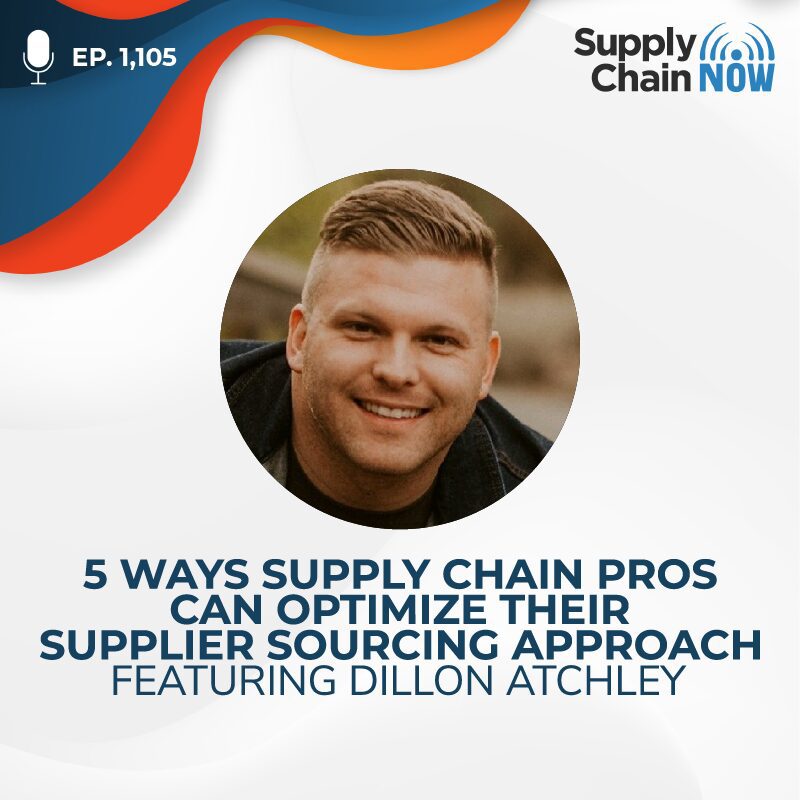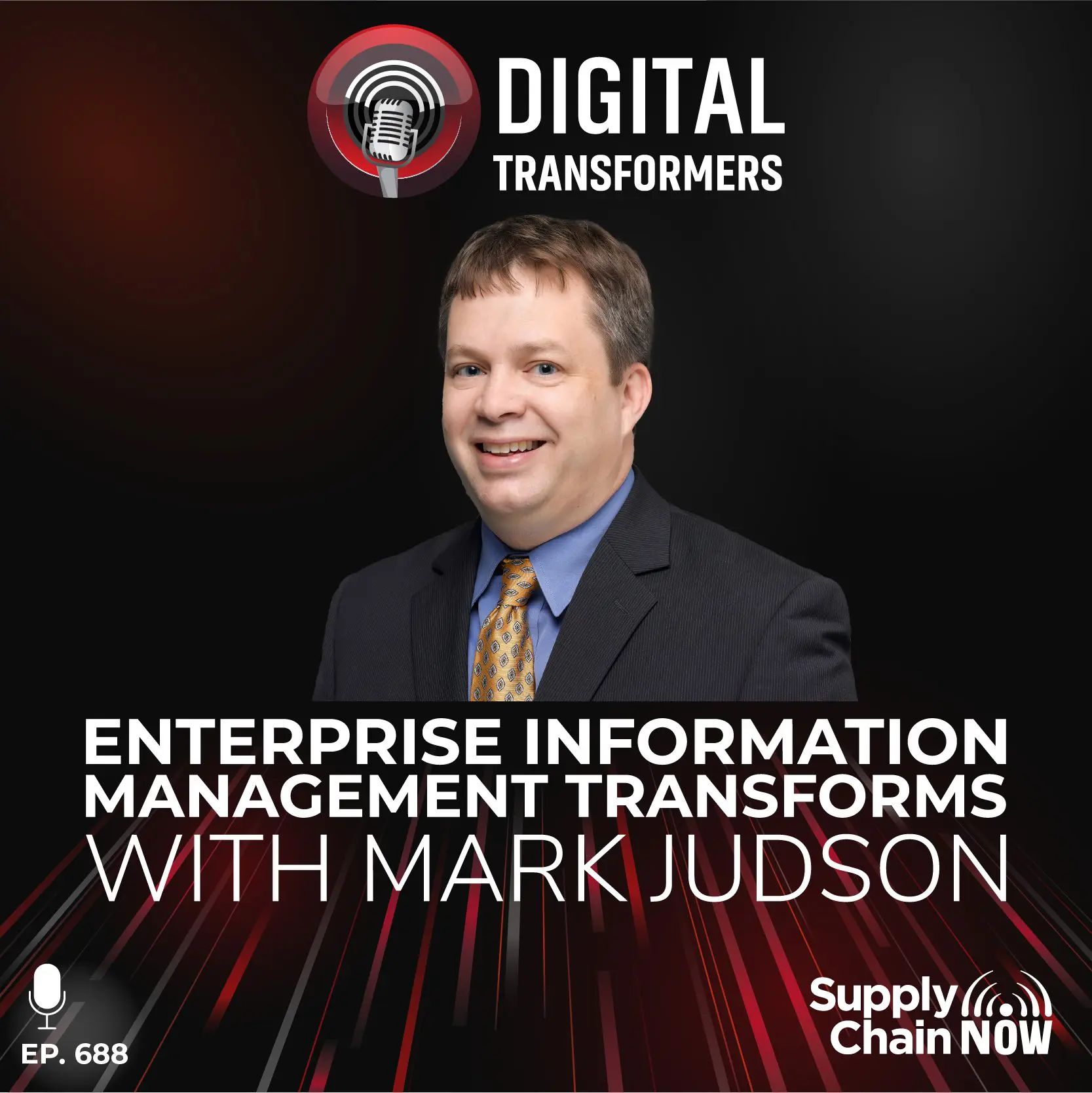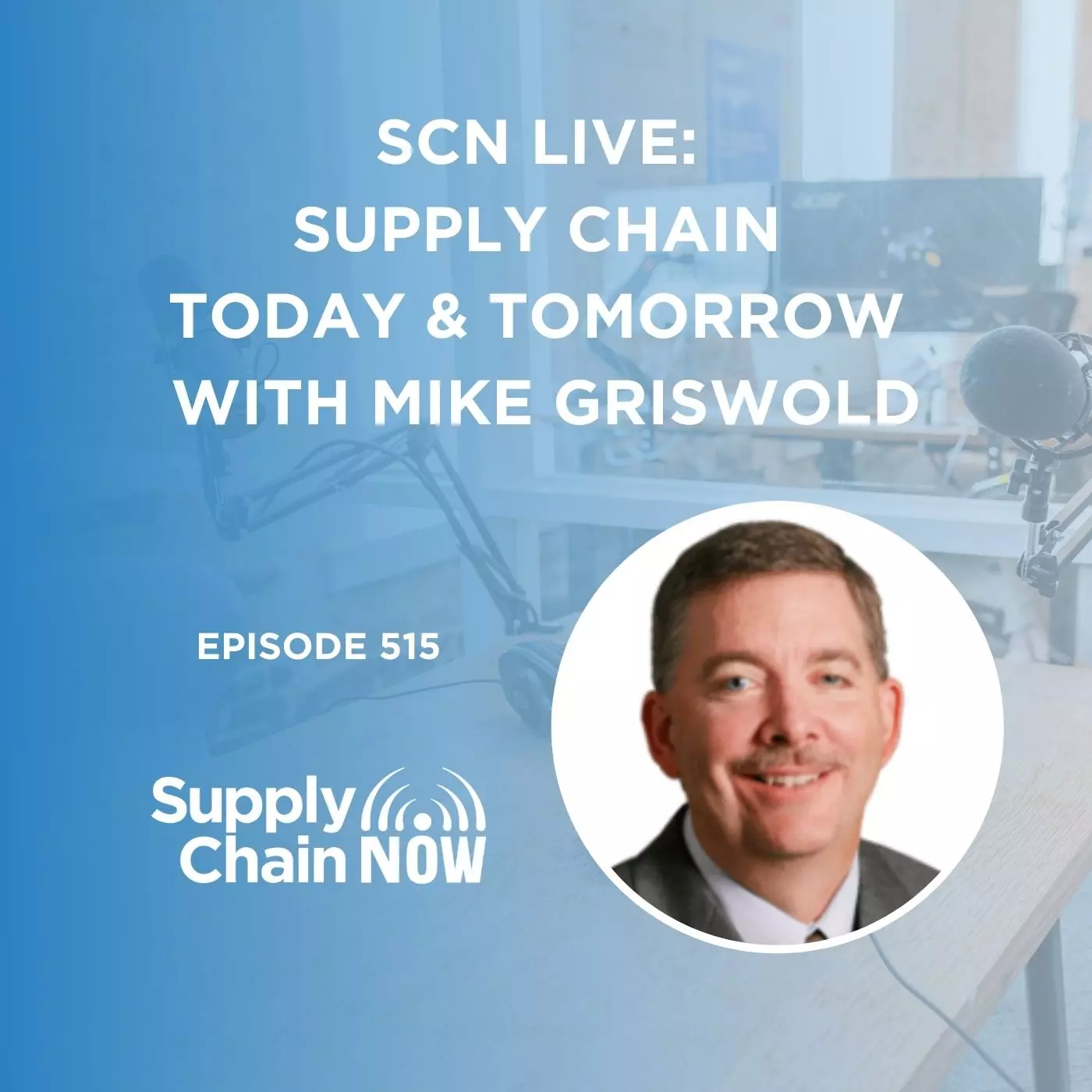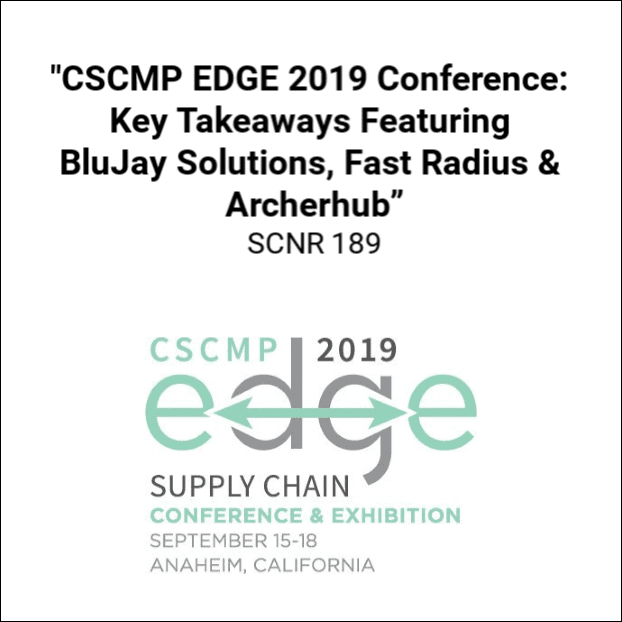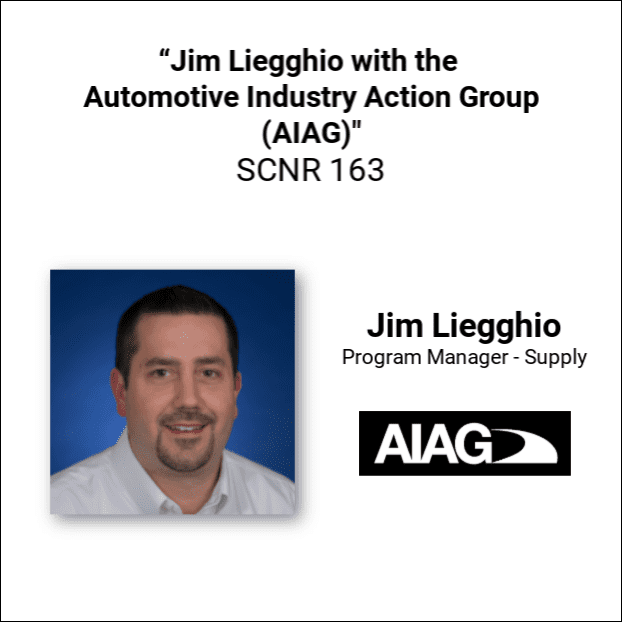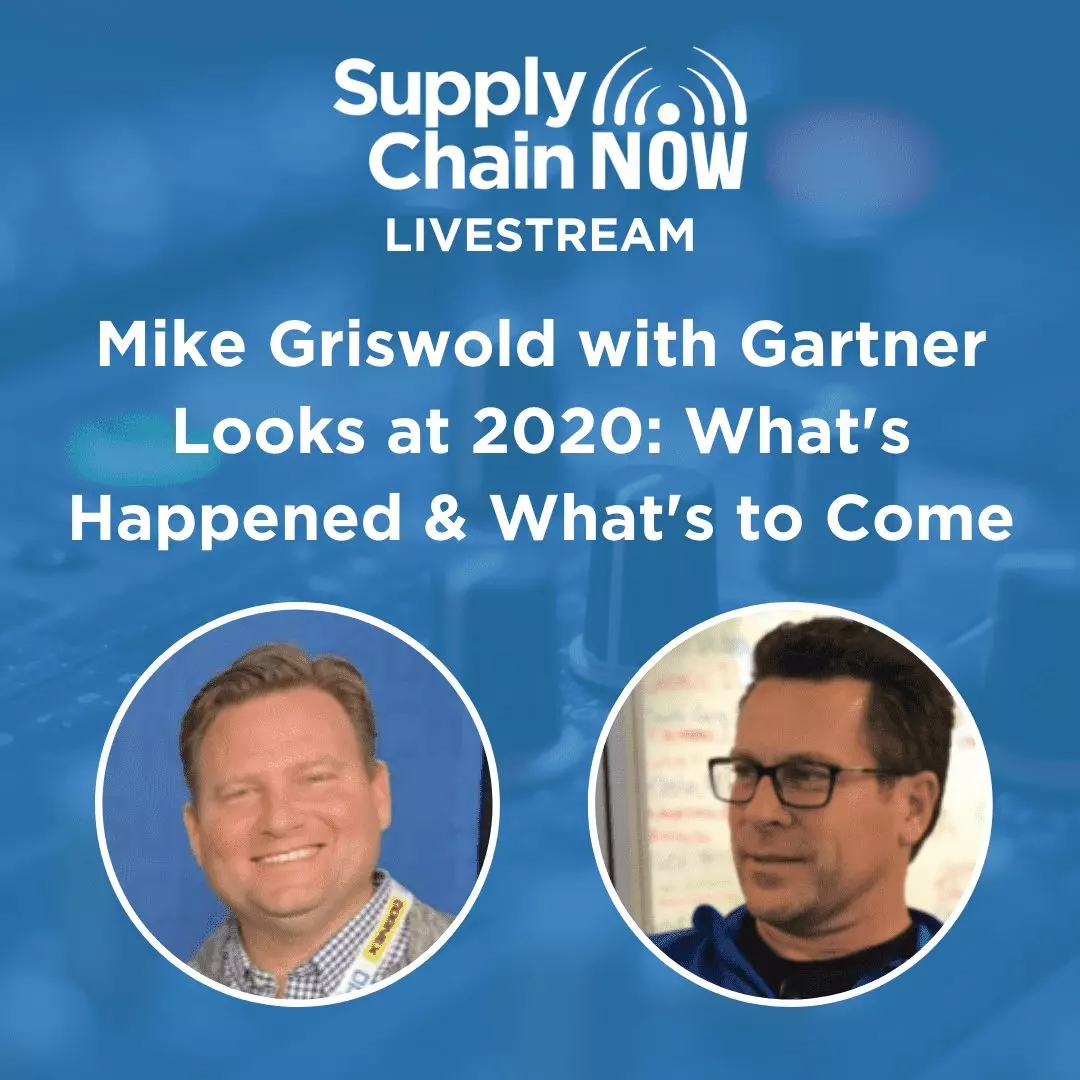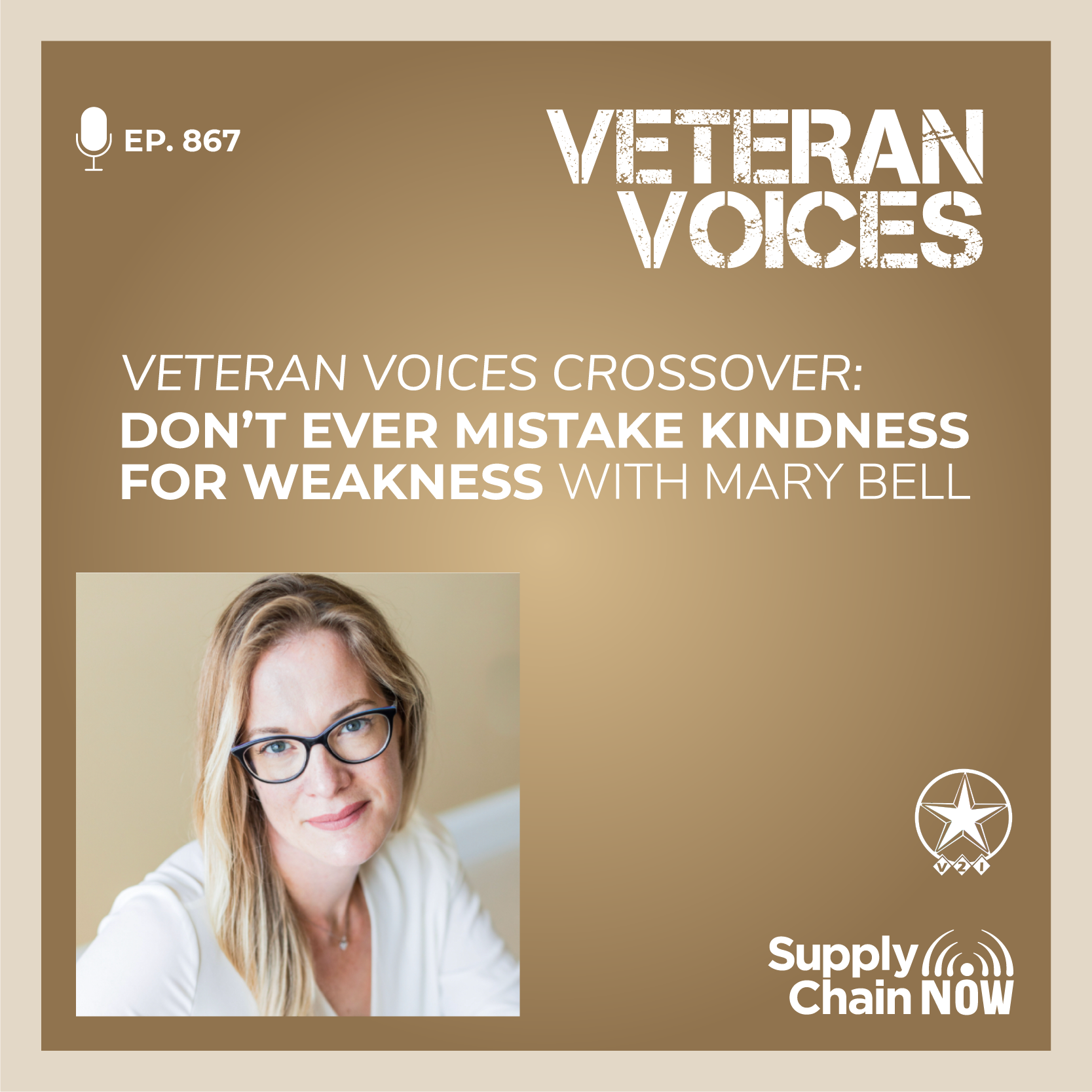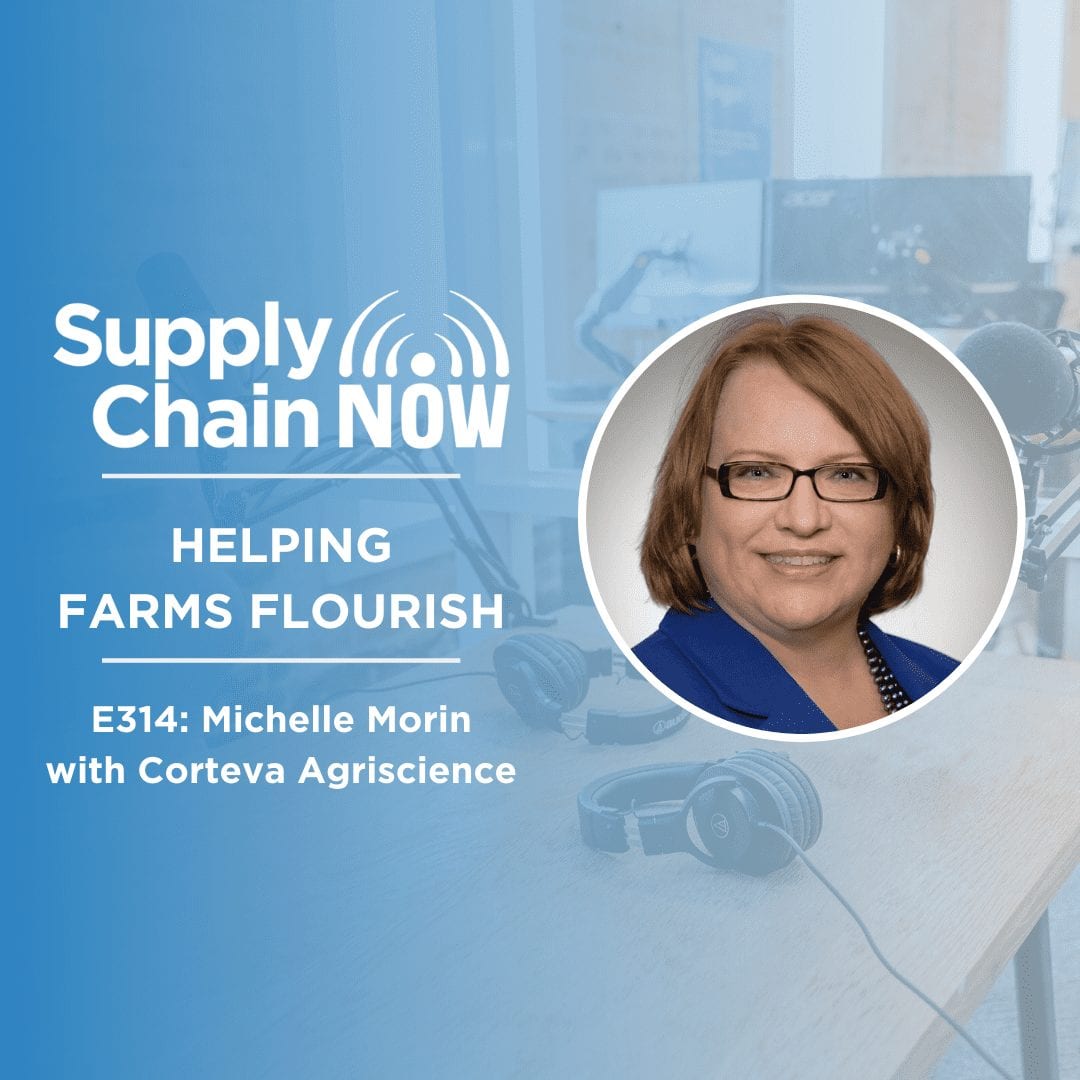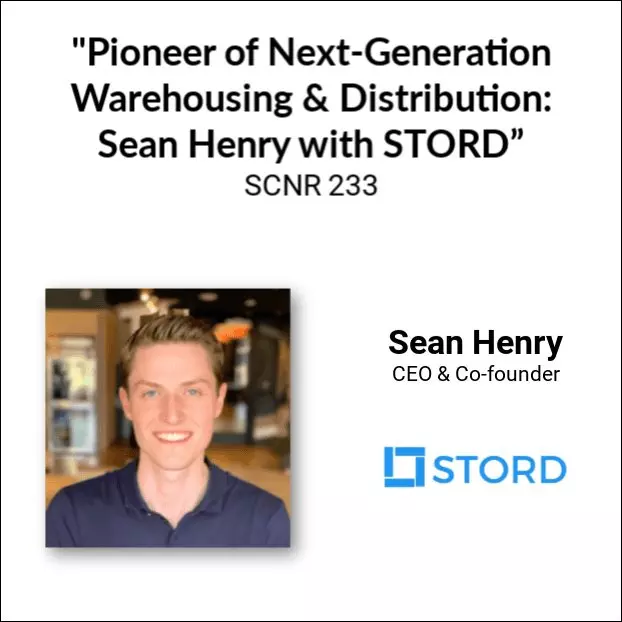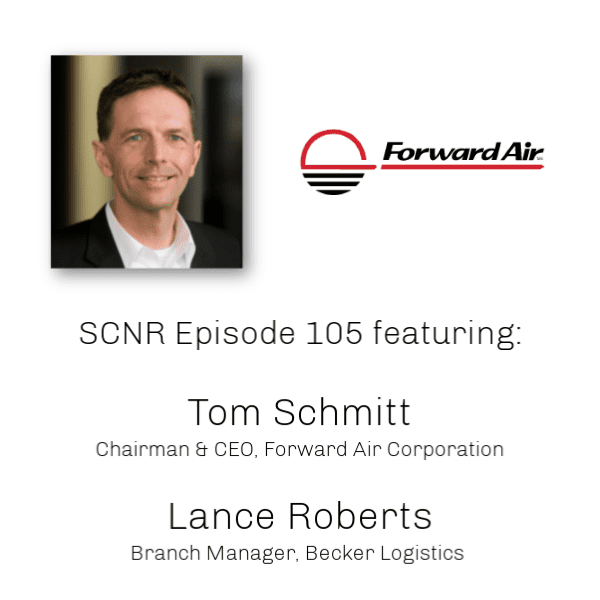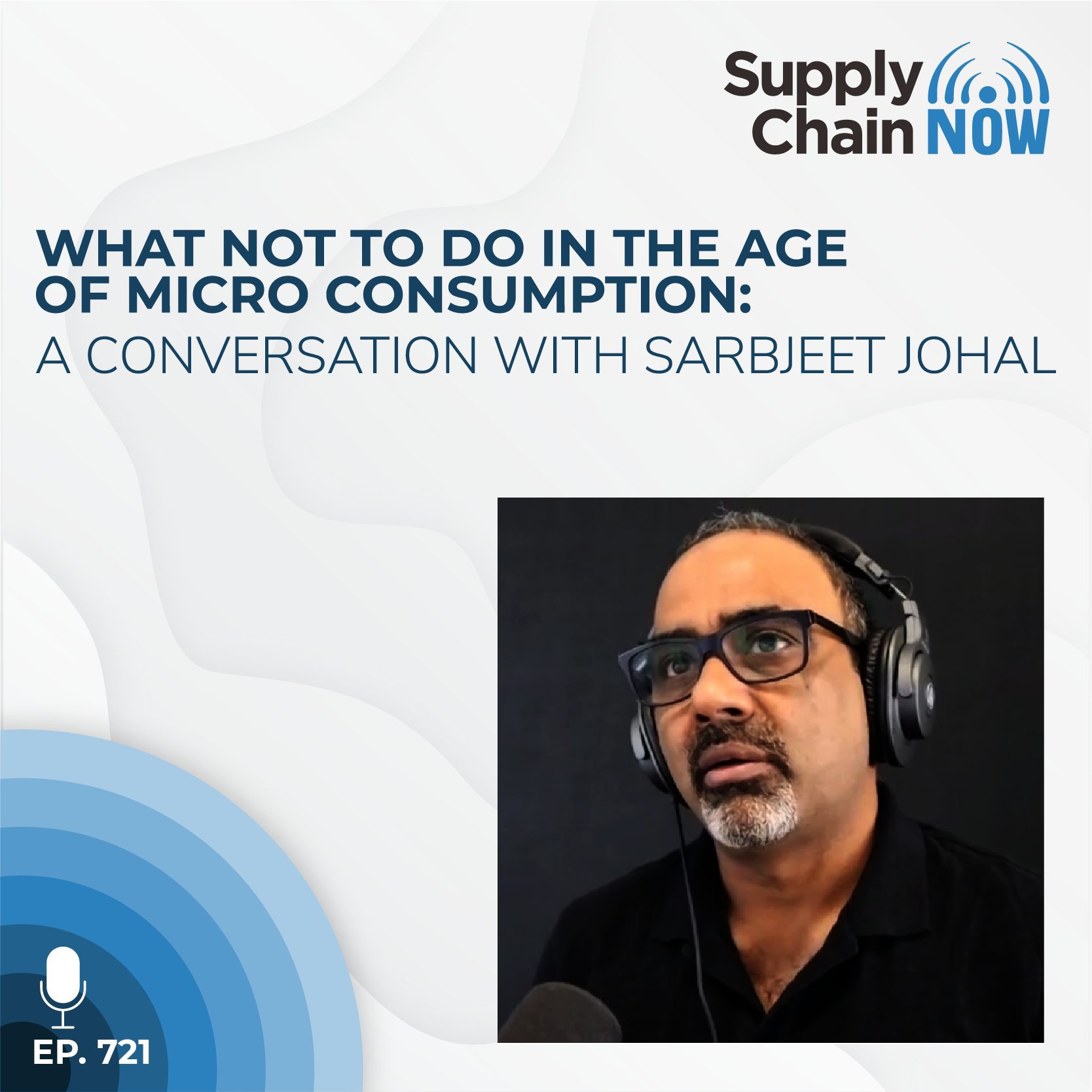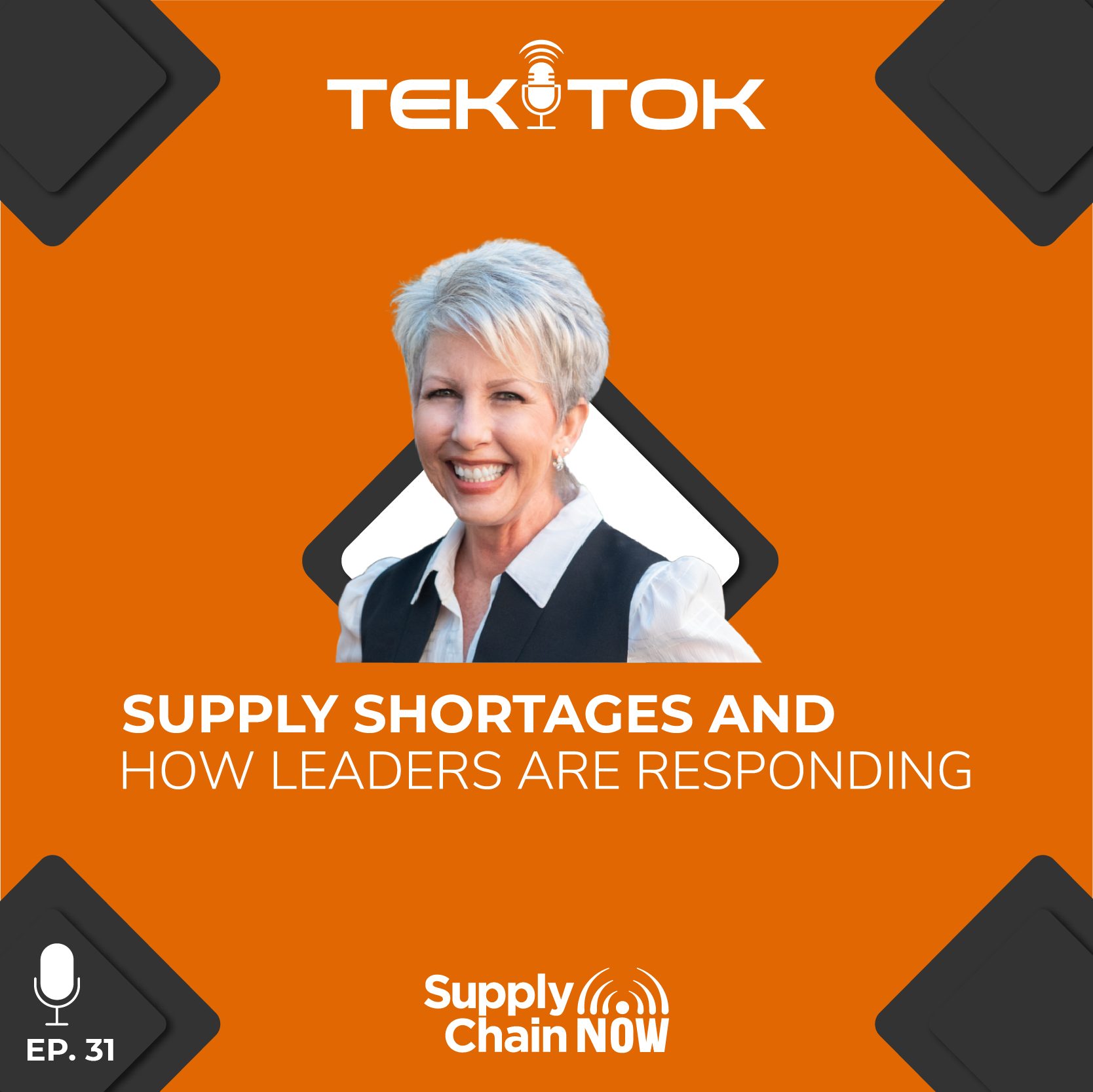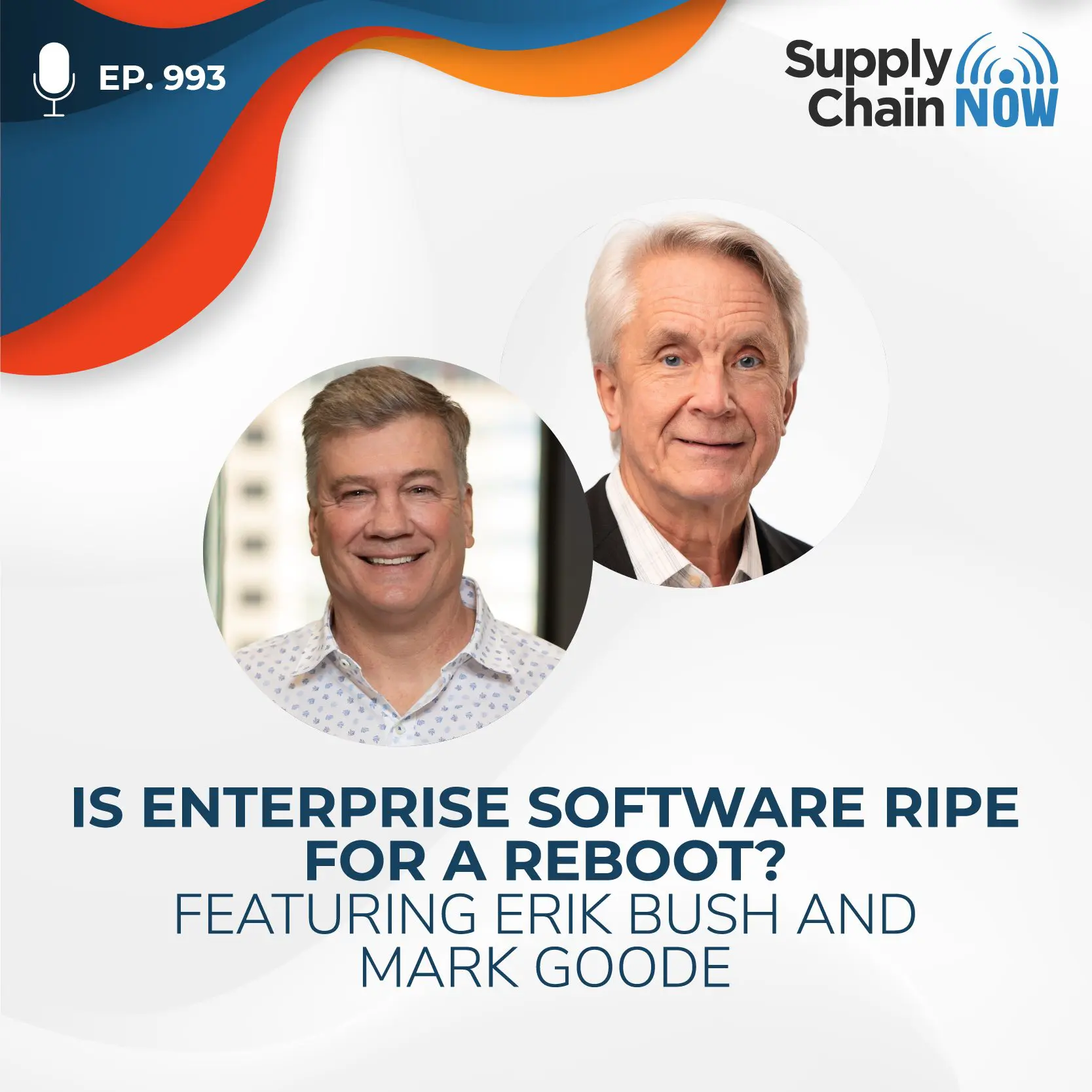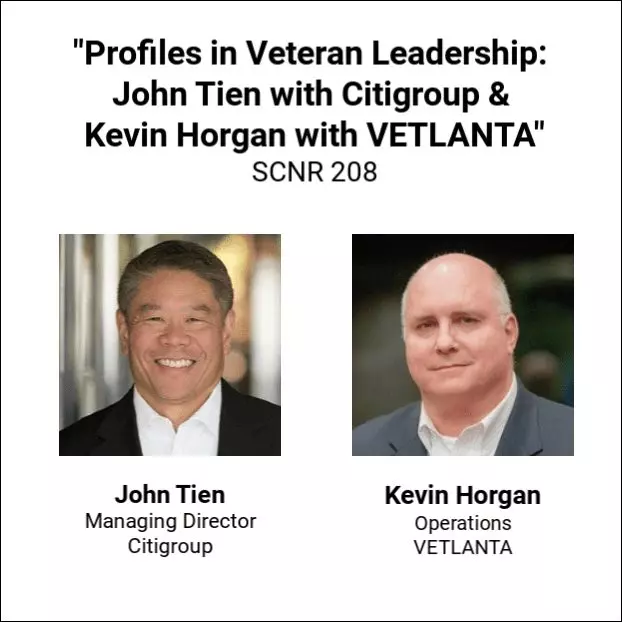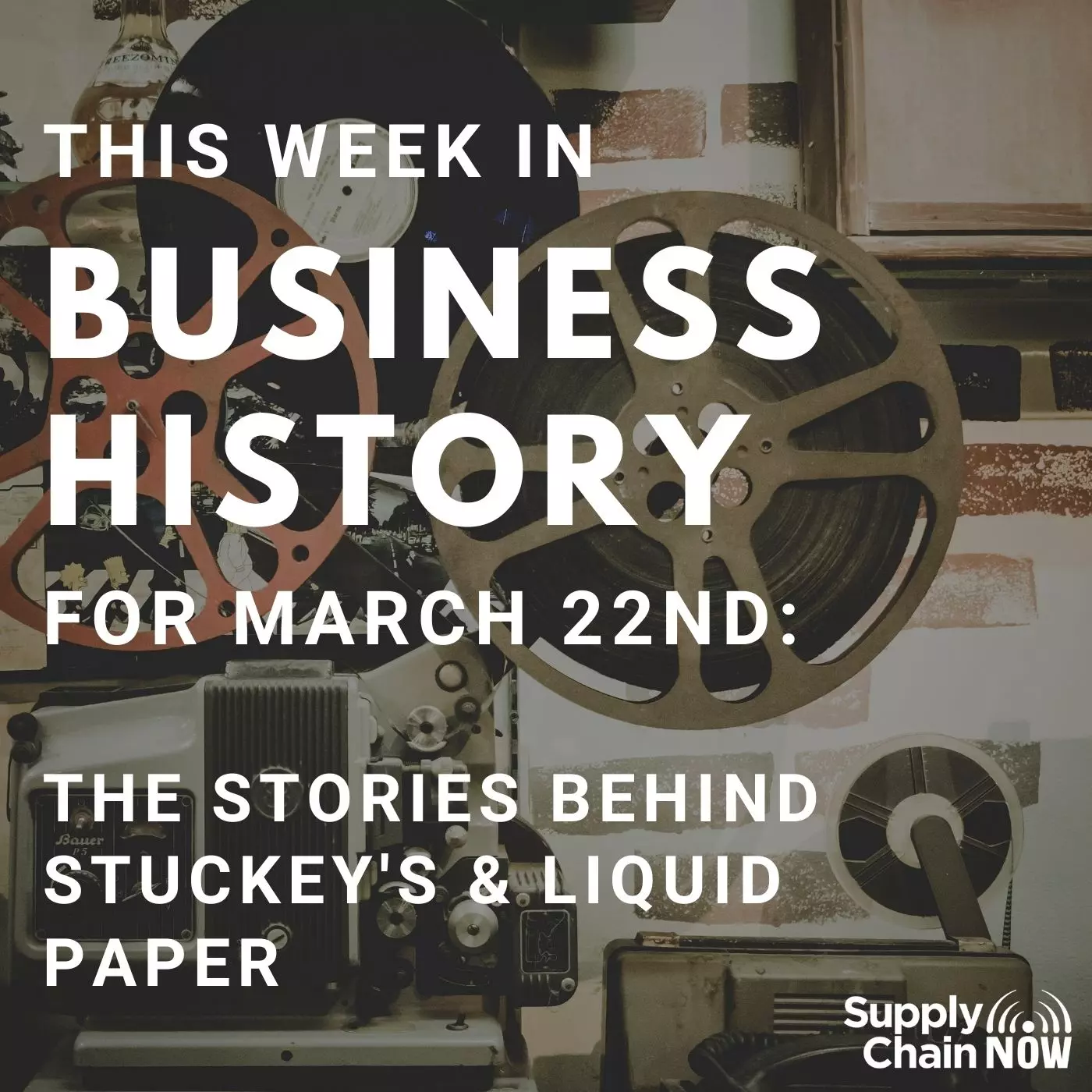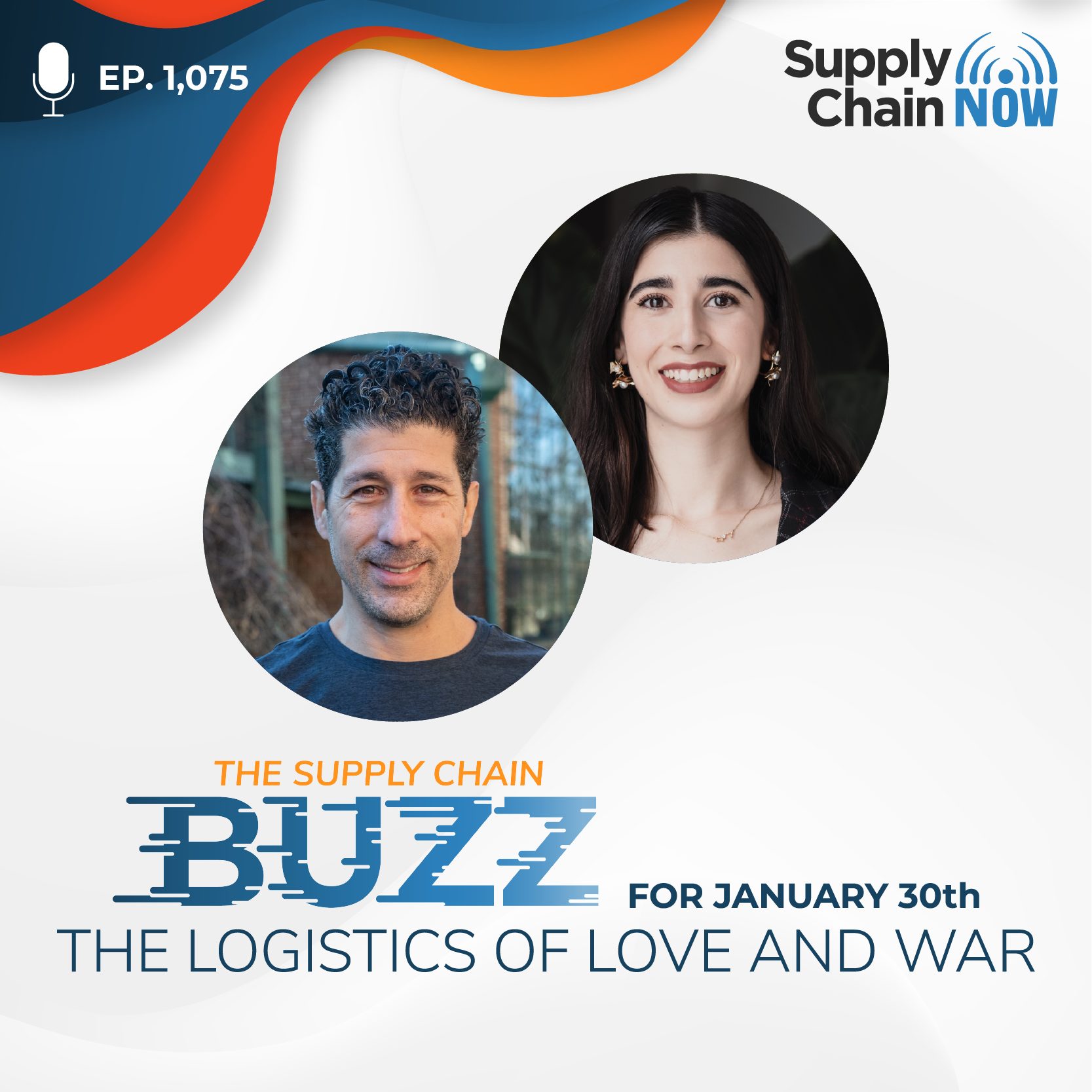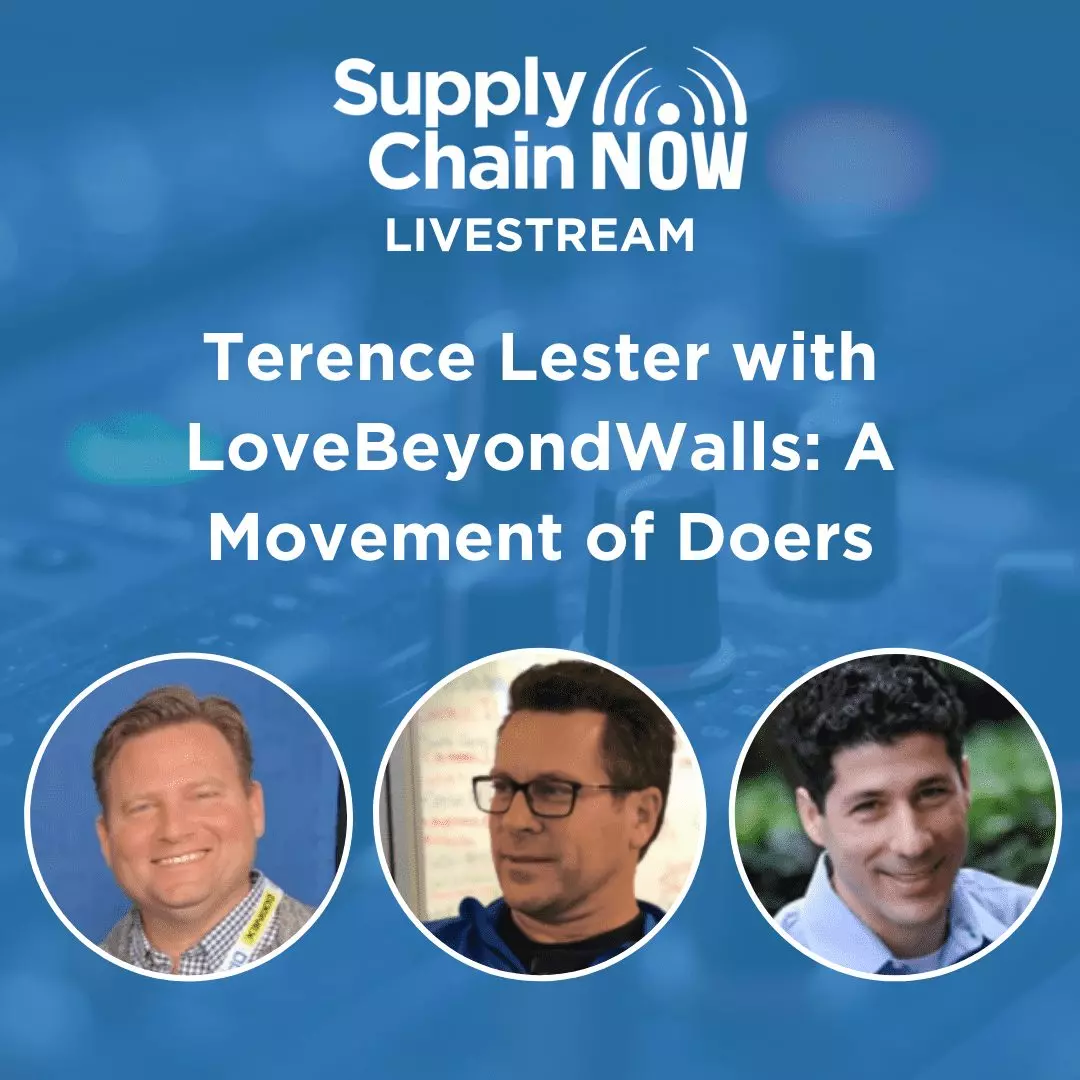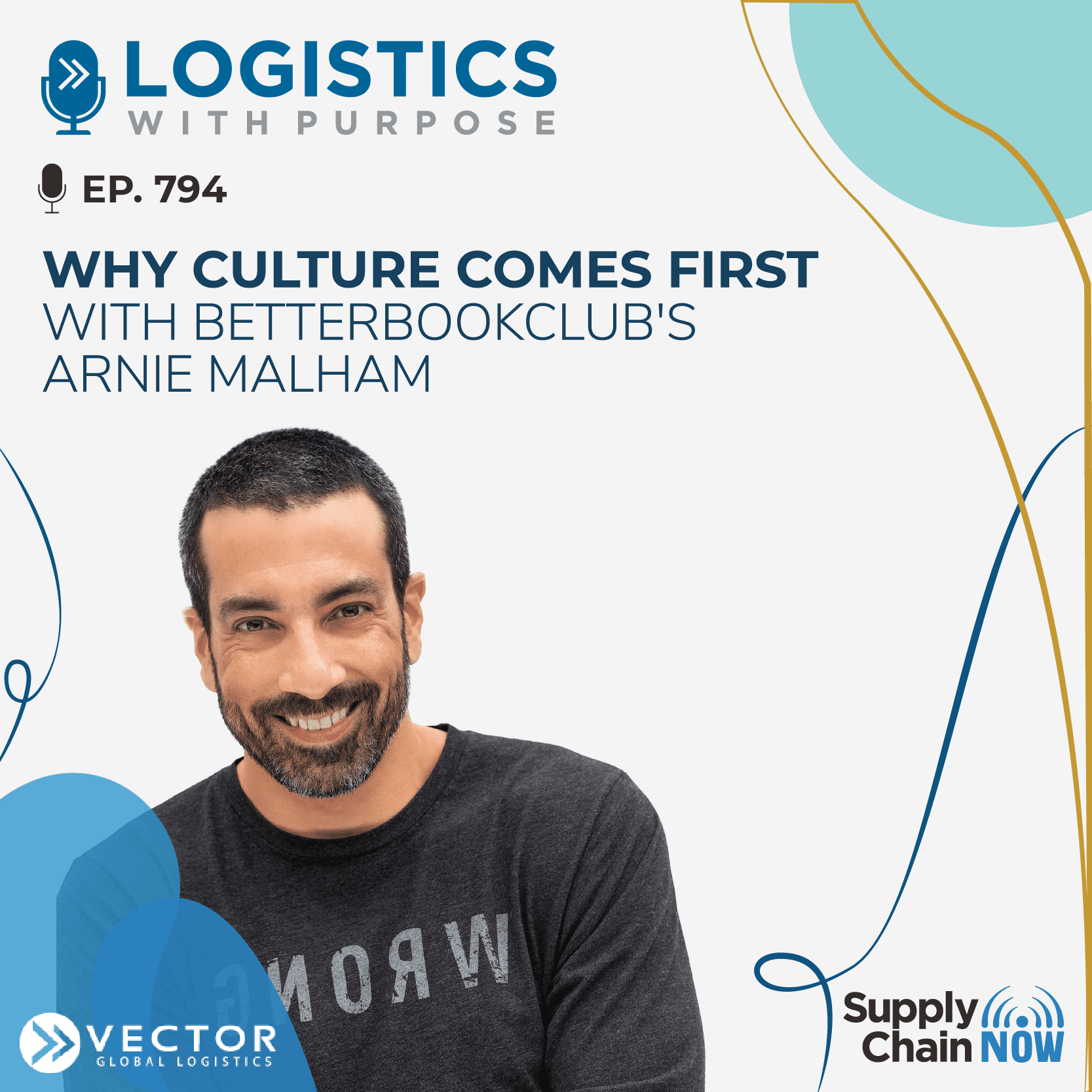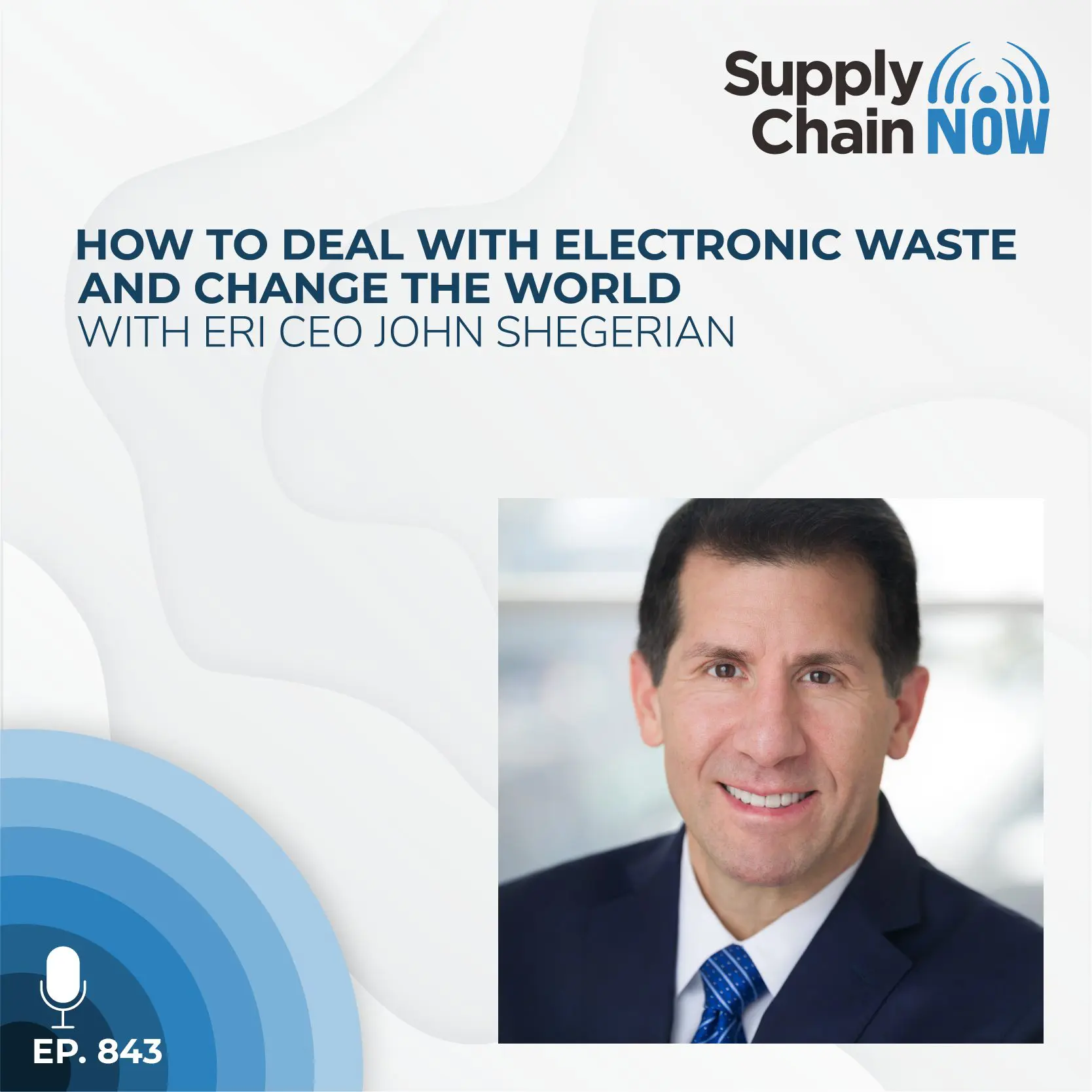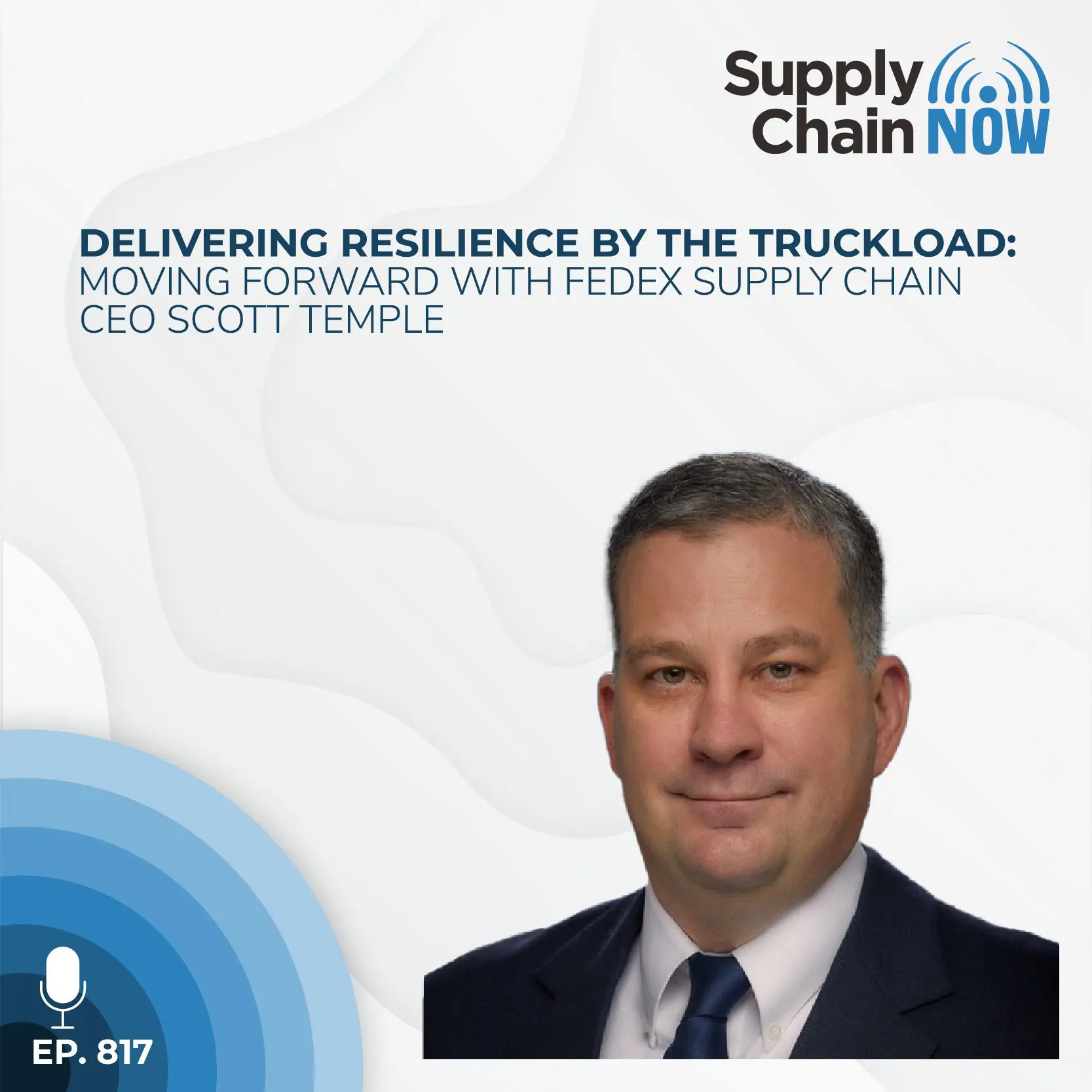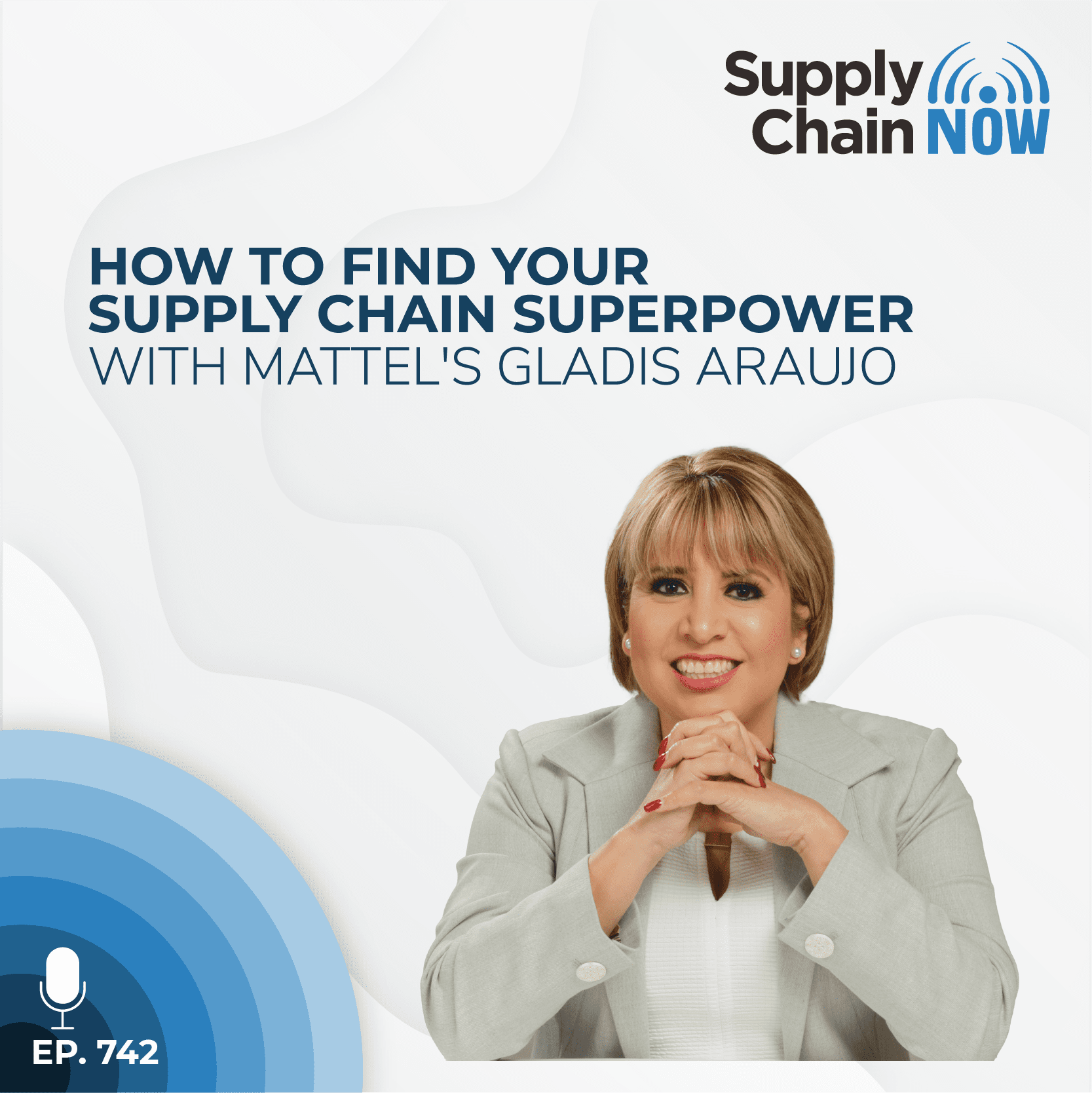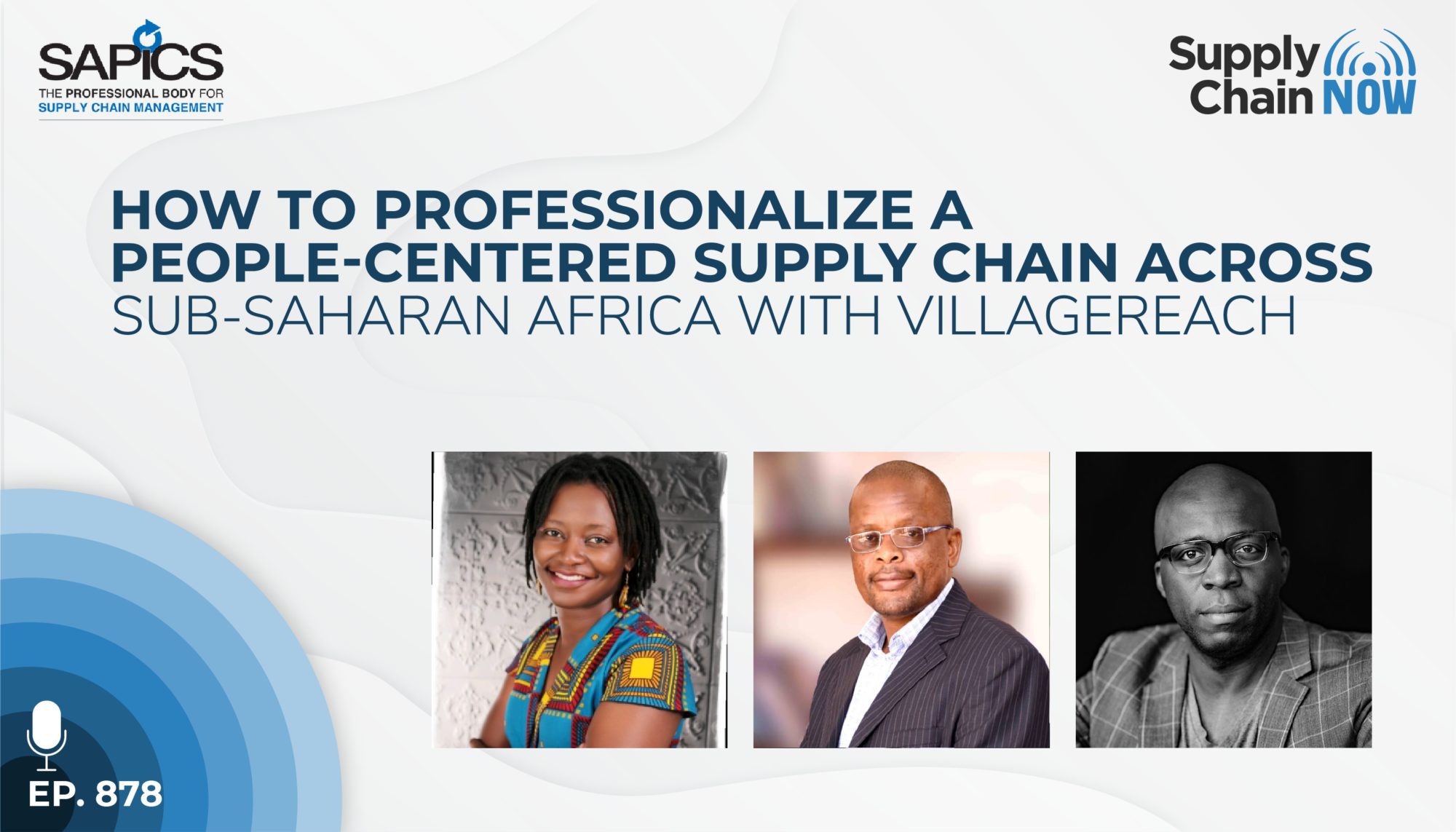
It's about how to change the way in which a lot of health systems are traditionally set up in Sub-Saharan Africa, where the onus is on the patient to walk sometimes very long distances to get to clinics to access health commodities. So we want to change that to a point where we are using everything that's available to us, whether it be drones, whether it be community healthcare workers, to get the products to where those people are.
-Tiwonge Mkandawire
Episode Summary
Collaboration is the new competition for passionate supply chain leaders like VillageReach’s Tapiwa Mukwashi and Tiwonge Mkandawire, who are working tirelessly to transform healthcare delivery in Sub-Saharan Africa. And who better to connect with them on the topic than Adebayo Adeleke, founder of Supply Chain Africa? Adebayo joins Scott and Jenny Froome of SAPICS to lead a fascinating discussion on personal inspirations, medical supply chain logistics, supply chain professionalization in Africa and much more.
Episode Transcript
Intro/Outro (00:00:03):
Welcome to supply chain. Now the voice of global supply chain supply chain now focuses on the best in the business for our worldwide audience, the people, the technologies, the best practices, and today’s critical issues. The challenges and entities Stay tuned to hear from those making global business happen right here on supply chain now.
Scott Luton (00:00:30):
Hey, good morning, everybody. Scott Luton, Jenny Froome, and Adebayo Adeleke here with you on supply chain now. Welcome to today’s show, uh, Jenny first, how you doing
Jenny Froome (00:00:40):
Really well, really good.
Scott Luton (00:00:42):
It is so good to see you again. I’ll tell you we’ve really, uh, we’re spiking the football on this incredible series here, and we’ve got our dear friend out bio out, bio, how you doing today?
Adebayo Adeleke (00:00:54):
Always I life, uh, my here with Jenny and our guest. Lovely, lovely
Scott Luton (00:01:01):
I’m with you. And if I could wake up with Jenny and out bio every morning, I think I would get so much more done. It really <laugh>. Y’all got,
Scott Luton (00:01:09):
Y’all got a vibe and energy and, and, um, and action that makes the world a better place. But Hey, today we’re continuing our supply chain leadership across Africa series in conjunction, of course, with our friends at SAP and supply chain Africa. So Jenny Froome serves a COO at say picks, which is doing wonderful work from a professional development and a networking standpoint. And Adebayo is a founder of supply chain Africa, which is a digital platform with a singular mission to advance African supply chains. Love that. Um, but guess what it gets even. So as if Jenny and Adebayo wouldn’t make for a great episode, we’ve got two other leaders that were really were just over to moon, uh, and tickle they could, they could be here with us, uh, first up, uh, Tapiwa Mukwashi director, global technical team at village reach to Piqua. How you doing?
Tapiwa Mukwashi (00:02:00):
Hi, Scott. It it’s good to be here in. Thanks for having us on the show.
Scott Luton (00:02:03):
You bet. We got so much to cover. Thanks for taking some time out. And you’re joined by a colleague Tiwana and KA weary, uh, global, uh, team I’m sorry, director, uh, and team lead for global supply chain at village reach. Tiwana how you doing
Tiwonge Mkandawire (00:02:20):
Great Scott. I’m so glad to be here with both you and, uh, Jenny, and <inaudible> looking forward to a great conversation.
Scott Luton (00:02:26):
We are too, and you see my, uh, my tongue try to get me in trouble there, right? We, we, we’re always, <laugh>, we’re always making last minute additions and changes to our, uh, to our, uh, notes here, but congrats on what I believe is a as a recent promotion and so excited to dive more into both your and PWA story. So with all of that, I think we have, uh, effectively set the table a bit. And Jenny, I wanna start with you. Where, where are we starting with our incredible guests here today?
Jenny Froome (00:02:56):
Well, I think we’re gonna start at the very beginning
Jenny Froome (00:02:59):
And ask Toga and to, if you would like to share with us where you actually grew up. So we’ll start with ladies first. We’ll start with Toga and you tell us a little bit about where you
Tiwonge Mkandawire (00:03:12):
Up sure. Was being a Sometimes, most days, but anyways, I was born in, uh, Malawi, which is, um, central Africa spent the first, um, 11 odd years of my life there. And then, uh, my parents and I moved to Namibia, um, in Zambezia province. So if you look at the map of Namibia, it’s the finger that’s sticking out on, on the one side. So that’s where, where I grew up.
Tiwonge Mkandawire (00:03:40):
Thanks. And Tapiwa.
Tapiwa Mukwashi (00:03:42):
And so, you know, Jenny village, which focuses on the last mile and, um, I must say, um, I’m from Zimbabwe and I, I grew in what grew up in what we can call the last mile. Um, I’m from the man province in Zimbabwe. Um, um, I studied right up until my first degree in Zimbabwe, so I’m really very much Zimbabwe, um, locally driven, globally connected. That’s how we call it. Um, mm-hmm <affirmative> and, and I, I think the experience that I’ve had growing up in the entire and that I did, uh, is equipping me to be able to work across a number of countries supporting supply chain improvements in the last mile, um, improvements that I’m really motivated to contribute to because of what I’ve seen growing up. So very glad to be here and to be talking about a subject that I’m very passionate about. I
Jenny Froome (00:04:41):
AB absolutely.
Scott Luton (00:04:42):
Yeah, really quick. I had to, so Toga as both of Toga and tope was, was sharing, I had to go ahead and pull up a map. Yeah. I’m a big nap nerd. Right. And that as the, the finger that Toga was talking about, I see that that both Namibia and Zimbabwe are kind of the Southern half of the continent. Right. Mm-hmm <affirmative> you got Botswana that, that separates the two, but, um, for our viewers, as they’re kind of trying to picture on the map exactly where absolutely, uh, these landmarks are to kind of Southern half the continent and of course, south, South Africa at the bottom, uh, there of Africa, but, um, to complete, so Jenny you’re in South Africa, I believe you’re Johannesburg, right?
Jenny Froome (00:05:23):
Yep. Yep.
Scott Luton (00:05:23):
So outta bio to kind of finish that before I, before we get back to Jenny and the personal journeys, personal way back in the beginning with our guests, where are you? Uh, currently outta bio. And, and where are you from?
Adebayo Adeleke (00:05:34):
Oh, uh, you know, born and raised in Nigeria. We had a kind of a little bit west, but not central. Uh, it depends on how you look at it, but blue west, uh, actually I just returned from Nigeria, uh, after about two weeks, uh, doing my ran view over there, uh, from supply chain Africa. So you bump back in the states right now, so, and then just for a breeder and then head back to Africa again. So, yeah, man. So you have, you have all African surrounding you’re now from south to the east? No, from so east and then into central. So love
Scott Luton (00:06:09):
That the movers and shakers, uh, I think out bio lives in an airplane these days. I think he was Jenny as we were prepping for this one. I think he was, uh, he was Ubering from one meeting to the next, so it’s good to, good to have him here today. Um, right. Static.
Jenny Froome (00:06:24):
But so if you are, if you are a nerd, there’s a game that you need to find for yourself. It’s called, you know, there’s this, this game, that’s the real trend that’s called world, right? There’s a, there’s another game that’s called world. Oh, so it’s w O R L D L E. Okay. And it shows you outlines of countries, that’s all, you just get an outline of the country and you have to identify where you’ve got five guesses, I think, to guess which country it’s. Wow. So all you, you international folk that’s, um, that’s a change from the word one. So have a, have, have a look at that. Um, and, you know, sort of found by our grandson, who’s staying with us at the moment from Kenya. So the Africa connection continues, um, and, and talking about young people and, and connections, um, Tora, have you got a, a sort of a child memory that you want to share with us that sort of has stood out for you?
Tapiwa Mukwashi (00:07:24):
I do. You know, um, you know, I, I work with TGA a lot and, um, she knows how driven I am. I’m very results oriented. I’m very focused on achieving output outcomes. Um, and once I get to do something, there’s no stopping to it. Um, and in my family, we three boys, um, I learned very early on to survive, um, to demand my space to, you know, uh, focus on getting the kind of things I wanted, um, because it is a very cool competi environment. So I’m thinking that this childhood I have with three older brothers, I’m the youngest. Um, of course externally, they would look out for me. Uh, but we being the home, um, they had to look out for themselves as well. And, and so, uh, I, I think the kind of drive that I have, um, the competitive nature in me to go get, go get an nature in me to some of those childhood, um, experience. I, I, I will say it was a form of in, in voluntary learning that’s, uh, allowed me to survive. Um, yeah. When I think about growing out of Zimbabwe, um, starting to work originally and internationally, I found the Nigerians very competitive. Oh yeah,
Tapiwa Mukwashi (00:08:49):
We are. <inaudible> <laugh>
Adebayo Adeleke (00:08:51):
<laugh>
Tapiwa Mukwashi (00:08:54):
I, I found the, the Kenyans very competitive. I found the Ugandans very competitive. Um, I, I, I did a part of my study in South Korea. I, I thought the Chinese are driven. Like there’s no stopping us. They start studying the south Koreans, look at all the innovation they’re having. They can literally work 24 7. Um, I, I think I’ve been able to cope in a more diverse environment in a growing environment. Um, because growing up, I never knew what giving up meant. And, um, I I’ve learned a lot. I’ve used a lot of the lessons learned in my life to, to keep fitting into a space. Uh, you know, that requires me to work with people from diverse cultures, with diverse work approaches, uh, knowing that we are all pursuing the same thing we want to achieve. Good to do. Good. Yeah. In the world.
Jenny Froome (00:09:51):
That’s fantastic. You know, sibling rivalry, whatever, however, really like to call it, um, nurture, fighting bullying. It’s always, it, it makes us stronger in the end. That’s a really great example. You’ve, you’ve got twins. Haven’t you added by?
Adebayo Adeleke (00:10:09):
I do. I do. And I watch them daily debates and, uh, I have a liberal minded daughter and I have a conservative son. So it is always a very interesting, uh, conversation, but, uh, just to, uh, for, to a very interesting actually point as a last child, mostly I found the middle child being the one that is out there by themselves. Most middle children are always because nobody really care. They only care about the first child and the last child. So most middle children is always like on their own. They’ll do all the craziest thing. Cause most of the people I’ve met from the big family. I always ask them, you are the middle child. I say, yep. Because there are certain attribute that who’s out of them. You like, oh, this guy’s way out there. You know, but it’s always the middle children. That is always very interesting, but I’m, I’m glad that at least, and also the last child too, can be bullied a lot growing up, so they have to kind of fight. So I see from, uh, uh, from TA’s point of view that, you know, being a, being a last child can be very interested. I’m the secondary last. So I thought I was the last for a while and then they had my brother and then, so then that took my, you know, but, uh, for the most part it’s quite interesting
Scott Luton (00:11:17):
Got share cuz uh, uh, I’m similar, similar note there. Um, I’ve got one brother and one sister, but for the longest time it was me and my brother. And then, uh, we got surprised with a sister and, and I was moved from the bedroom to, they converted our dining room into a bedroom. Uh, and that was a, I’ll have to, uh, share that story one time, but Hey, you know, you never know, you think you’re the last person and we always surprises are nonstop. Is that right? Kind by
Adebayo Adeleke (00:11:41):
Exactly. Exactly. When my brother was, who is this kid who is this kid? I was always taking my shine. I thank I, I was, I was very rebellious cause I was like, you know, initially I was happy for, and then I realized that he started taking all the attention. I was like, wow, it’s not like I’m attention kinda person, but know you always like to be the last person, everybody, but now, you know, but it’s very interesting how our public years kind of shape the way and how we become as an adult. You know, some of those things, some of those fight that you have to do and how you kind of make your stand. So I can understand from the people perspective, especially in the African environment where things, and you have to pretty much fight for everything you have to fight for the, I mean the only thing that you can’t fight for is the air.
Adebayo Adeleke (00:12:25):
I mean, the way things are going these days becoming the is very good, becoming a rare commodity, but almost everything. I mean, uh, is a challenging environment made or continent that is that we are coming to kind of, uh, grappl it. So I completely understand. So trust me that the Americans, the, the, the Koreans and the rest of the world has nothing on you because what you’ve gone through. Uh, it’s, it’s a challenge on its own. And I don’t think I know has to contend with that. What’s very interesting, I think, and, and to, to, uh, to, to kind of caveat to what, uh, because I think that growing up in an African setting gives you a different flavor and a different perspective and able to appreciate and be more, to be more globally fitted for the role that you might be trusted into, uh, down the line.
Scott Luton (00:13:08):
So on that note and getting back to you, Jenny, and, and, and I love, I love how much we’ve baked in to, uh, this front end, uh, competition and, and, and fighting for what you want and, and, um, you know, never stopping. So Jenny, back to you, cause this is just, that’s just our first guest. Uh, yeah, yeah. I mean,
Jenny Froome (00:13:27):
Well, I was gonna say looking at
Jenny Froome (00:13:29):
Long’s face, I’m putting money on the she’s a middle child.
Tiwonge Mkandawire (00:13:35):
I was one of the few that held onto the prize, you know, so I’m the last one. Um, unfortunately, and then Scott, who, um, got the surprise one. I was the surprise <laugh> so I held onto that space and, uh, I think I was, I, I wouldn’t say I was boiled, it’s just, I’ve always been given my space, um, treasured. Yeah, treasured pushed. Yes. Um, and I think, you know, my, my siblings have played a big role in, yes, we’ll kind of let you do your own thing, but you must do your thing. You have to do something. Um, you’re not just here to laze about, um, which is something that is definitely come into play in, in, in my life and, and in the work, um, get things done, get things done, whether on my own or as part of a team. Um, and I have that confidence in being able to do that work along because of that, that support and the push from, from my family.
Tiwonge Mkandawire (00:14:33):
I think growing up, um, with the one memory that, um, it’s actually a, a bunch of memories, I think, um, they all revolve around kind of the walks from school to home. Um, so it’s like a big rush leave school, rush and play along the road, get home, drop off the bags and just grab food quickly and go back and play. Um, and then, you know, kind of be surprised when it’s time to go back home and mom is driving or being driven down to get home and you need to rush and get into the house <laugh>
Tiwonge Mkandawire (00:15:07):
Out about that is that sense of community. Um, so to, I mentioned, how on this continent? Yes, you, you do need to, to fight for, for your place, but I think there’s also a really amazing sense of community and, um, people always coming together good times and bad to get things to work, which is something that I think is, is quite, uh, um, unique. Um, and it’s something that I think we, we need to leverage more, especially as we look at public health supply chains, how to tap into the power of the community to actually get services to the very same people. Um, so yeah,
Adebayo Adeleke (00:15:45):
I, I love it. I love it. And to caveat it, I think last one, uh, the last, uh, last burns of the family, I think they are more, they experience more parenting being that most of the earlier children have been just experimentation kids. The, the most, the parents be like, you know what, we don’t know what we are doing, but we get it. But the last one they’ve been through one or two of them already, they experience, you know, to do and what not to do. So I think most people always refer last child as being spoiled, but not really. I think they just experience better parenting for the most part, because the parent will like, you know what? We did this, it didn’t work with this guy. We did this. Maybe let’s try this last one. I think you do. That’s what I always, and the view of it because I have a last child too. I believe she’s, I really do believe in, but it’s better appear <laugh>
Scott Luton (00:16:37):
So Jenny, uh, we got together for a supply chain conversation and a parenting conversation and like a psychology I know, broke out, but there’s,
Jenny Froome (00:16:46):
But isn’t everything supply chain you see
Scott Luton (00:16:48):
It is, but it’s so true. It is so fascinating. And, and autobi, I love your, your first off, I love, uh, Toga. And taua you sharing what you’ve shared on the earliest part of your journey? Uh, Toga. I think those, you know, what you learn on those walks to and from school and those drives to and from school are so critical. And I think many of us can relate to that. Uh, at bio, I love how you mention parents by the time that they’re fourth child may or, or beyond rolls around, they get, they benefit from all the proven parenting approaches from the experiments that that’s so cool. But Jenny, um, I’d love to, you know, spend a couple hours on this segment, but we wanna talk about one of our favorite topics here before we, we bring it, uh, past Baton, an bio, right? Yeah.
Jenny Froome (00:17:32):
Yep. Food food for it’s that time of day for me, where we have to talk food. Um, we, I want to know from, from each of you one dish that either evokes childhood memories or is some something that you just is synonymous with home and that’s over to you too long ago, what’s your one number one food
Tiwonge Mkandawire (00:17:54):
Or tribe, you know,
Tiwonge Mkandawire (00:17:55):
The inside, right?
Adebayo Adeleke (00:17:56):
Ooh tribe. Wow. Yeah. Wow. You might have some amazing,
Tiwonge Mkandawire (00:18:02):
No happy memories. Um, my dad would always make sure that he has some in the fridge when I was come mean back from boarding school of varsity. So happy memories with trie. Amazing.
Scott Luton (00:18:12):
Well, I got, I got a quick follow up there because yeah. Um, when I’ve consumed trie, it was in, uh, Vietnamese, uh, uh, Vietnamese, uh, uh, Vietnamese FA right. FA the bowl of suit. Yeah. Is one of the common dishes I’ve had with trie. What’s, what’s one of your favorite dishes that trie goes into to one game.
Tiwonge Mkandawire (00:18:31):
Um, so we normally just cook it. Um, that’s right. Just try, well, you eat it with, um, you know, you’d have like vegetables and, and SEMA, which is what’s called in Malawi. So it’s a, <inaudible> orange, not soft orange, but hard one <inaudible> I think in Nigeria it’s is a poo or something like that.
Adebayo Adeleke (00:18:50):
I didn’t really get it in pepper soup,
Tiwonge Mkandawire (00:18:52):
Not so much pepper, soup soup in Malawi, but definitely the involved, the tribe and the vegetables. It’s the perfect trio.
Jenny Froome (00:19:02):
And it’s also, I mean, it was very popular in, in the UK and the sort of the sixties. I remember my grandmother used to love tribe, so it’s, uh, it’s definitely something that’s gone out fashion. Oh yeah. In, in, in England, I,
Scott Luton (00:19:15):
That you’re saying Jenny’s a universal, uh, uh, bridge food to bring us all together around trie. You never know. Maybe, maybe so
Jenny Froome (00:19:25):
Could catch on everyone. Listening here may think, oh, I’ll go try it. We’ve started a whole grave,
Scott Luton (00:19:30):
Right. To PI.
Tapiwa Mukwashi (00:19:34):
So, you know, I, I, I’m hearing the conversation on trip and I’m thinking like, okay, I like tribe. Um, you know, it’s the kind of food that when you get an acquired test, you, you just cant stop it’s with age. You start to love it more, but, but growing up, and I think it was driven more from a point of scarcity than plenty was, um, I like peanut butter and rice with this traditional rice. Um, that’s ground up in mixed with peanut butter. I like that for the start and even up to now, if I have it, there’s no stopping <laugh>. Um, I enjoyed it particularly when it’s saved together with, with oxtail. Um, and so I, why is it that I was so I loved oxtail so much. Um, I, I now realizing, you know, when you killed the cow in the village, um, it was once in, in a year or twice in a year, and that’s at the point that you’d get Tel, you know, I, I walk into the supermarket and there all these shelves with Tel I’m, like where these cows come from now, you know?
Tapiwa Mukwashi (00:20:51):
Um, so right now, um, that child dish is continuing to be my favorite dish. So I will have peanut butter rice anytime with, with oxtail that does it for me. <laugh> if I could eat breakfast for lunch and for dinner. Wonderful. I’m not very complicated. Uh, so my kids can’t understand, like have no time for pizza. Um, I have no time for, to, to go to some of the Italian restaurants with them to, to, to, to eat, um, spaghetti or the macaroni. Uh, you know, I I’m think like when can we get back to get to what I really call food? So, so, um, and I, I, I, I love it today,
Jenny Froome (00:21:36):
So that’s great oxtail, it’s the whole slow food movement, isn’t it to eat the whole, the whole beast or not waste anything. And it’s something I think we all need to be much more conscious of. So thanks very much for sharing those annual annual early years as well. And now, um, ABI is gonna take you to the next level so that we get to know you further into your careers and your lives. It’s been fascinating so far. It’s exciting.
Adebayo Adeleke (00:22:06):
Uh, thanks so much, Jenny. Uh, I’ve opportunist, but it comes to food <laugh> uh, but one thing I did not like growing up was eating beans, uh, for some strange reason, my mom loved it. Uh, and she always cooked like almost every day. So you can only imagine I have to staff myself to prevent myself from eating beans, but for any other thing, else I’m gain anyway. So just nice, uh, hearing from, you know, uh, Tepe and Toan gay, just experience, but you know what I’ll go from, let’s go, you know, back way. So who inspired you as a child? Uh, I’ll go, I’ll start with, uh, Tepe who inspired you as a child growing up? I know you grew up in a village area, but at least some kind you got some kind of inspiration.
Tapiwa Mukwashi (00:22:50):
Yes, absolutely. Uhhuh
Adebayo Adeleke (00:22:52):
<affirmative>
Tapiwa Mukwashi (00:22:53):
Right. I did. I did. <inaudible> um, my brother actually, um, and I’ll explain why, you know, at, at the time that my brother grew up, um, getting into university was like, uh, one child in the whole district through high school. He went to boarding school first. He wore the blazer in the family first and just looking and looks at participate. And then I just wanted to be like him when he called I to go into to university. And I knew right there that this is what I wanted. I wanted to go to university first. Uh, he’s also somebody that I’ve always looked at as the very patient, um, such profound wisdom you turn to for advice. Um, so he’s been an inspiration to me ever since I was young. I’m glad that he’s continued to be become. And D I, I, I could say I’ve learned couple of other things perseverance from my mom <inaudible> was driven more by some of the achievements that my brother did that took him out of the village.
Adebayo Adeleke (00:24:15):
That’s quite interesting, uh, uh, that, you know, our highly, um, formative years, uh, we have, uh, family members to kind of look up to especially, but he can only imagine who your brother actually look up to because for he, for you to look up to him, cause he’s so much pressure. And from your parents, for him to set the standards for you guys to follow, and I think most false bonds in African communities will always have that kind of, they have that kind of fiduciary responsibility who kind of set the stand that set the tone, because they were like, what are you doing? Don’t you see your siblings gonna be watching you every step to make them watching you? So, uh, your, your experience is, is, is quite, uh, you know, kind of to line of him being your Ram. And I really that’s quite actually taught you, cause it shows a lot about the family values, shared a lot about our community, our value system in the African communities, how it is, uh, it’s set the tone for everything else, families, the lot of our society, and, you know, gaining those kind of, you know, your brother being our model means, I mean the world to you and still continue to be awards to you.
Adebayo Adeleke (00:25:23):
So tha thanks for sharing that. Um, so over to you, uh, to all gay, so who inspired you as a child?
Tiwonge Mkandawire (00:25:31):
Sure. I think so. I, I think for me, it’s a, it’s a clear, um, my mother, um, and it was more about how she, um, talked to us, the, the kind of encouragement that she would provide to us. Um, she’s pushed all of us, um, to work hard, do, um, as much as we can give whatever we do in our best. Um, but what I’ve always found, so comforting was, you know, after doing all the pushing, she would be like, no matter what, you know, your father and I will be here no matter what we will support you and you have, and she always had this phrase, the Mount Everest of support. Um, so it was always great if you are, you know, in boarding school, um, or in res and varsity and things are going tough and, you know, she’s on the phone, there were no video chat. Um, you know, she’s on the phone and she’s like, you know, just imagine Mount Everest of support. Um, so for me, it, it, you know, gave me that space to, to grow, to try and, you know, still be okay if I failed, because I could picture that Mount Everest of support still for being there.
Scott Luton (00:26:42):
Uh, that was great. I love that, uh, that, that that’s, I mean, there’s so many takeaways already, Jenny and outta bio from our guests here today. Uh, but that, that Mount Everest of support, I’m gonna shamelessly steal that Toga from your mother, uh, because, you know, beyond the fact it’s, so there’s so much meaning and value there, but never really thought about it, but the visual that you can instantly have in your mind, and even the most trying hours of the day, I mean, that, that, that’s very powerful. Um, and we may have, um, we may have lost to PWA just for a second. I’ll keep an eye on, uh, on, on the invite log, but, uh, autobi Jenny man.
Adebayo Adeleke (00:27:22):
I go Jenny, before I comment. Yeah,
Jenny Froome (00:27:25):
No, I was just gonna say I totally, I totally agree. I mean, I, I was fortunate enough to have parents who were just the most supportive parents in the world, but obviously not, but we all, you know, we, those who have us who are lucky enough, but I love that. Exactly. As you say, that image of the Mount Everest of support, I’m also gonna steal it. I’m gonna go over and tell my grandchildren that. Exactly.
Adebayo Adeleke (00:27:51):
Yeah. It it’s. And, and, uh, to thanks for our kind of sharing that, because it is very synonymous to African parents that, uh, even in your adult who they’re still there praying for, you concerned about your wellbeing. Uh, and I Don know, I mean, I’ve lived in several cultures and I know most parents are always concerned about their, but African parents are extra. Uh, they are, they’re very extra. They have extra dose of concern even to their dad, even to their age in theirs. They’re still worrying about you as your child. Have you eaten, you look thin you this. I mean, I’m like, wow, this, you know, and if you look across regardless of, oh, wow, you’ve lost weight as your wife not feeding you is all this. I mean, it’s very interesting and how African parents are, but it’s just to show you of how overwhelming the love and the community and how that is.
Adebayo Adeleke (00:28:46):
And, uh, so what you shared is very, is, is quite important. Cause our, our parents are, are pretty much the greatest influence that we have, uh, growing up. And it’s, uh, it’s very interesting that even till now, you know, uh, you know, I was, my, my kids are raised in the us. I told those guys, you know, they’re about to be 18 as a guys, you know, uh, you know, when you’re 18, man, you know, you, you are adult, you know, now you can, I’m gonna kick you out of the house. My wife just look at me. I be like, where are you taking them to? I was like, oh, that’s true. You know, because in our community, we, we don’t do we, I mean, we don’t do that. Even you be, you surprised that even if you don’t have a place to go, your, your, your, you, your, your parents are, that’s always open. They have opened doors, unfortunately, of course, in your outdoor, you’re not gonna go back to your parents. So, but it’s just like, Hey, it’s always that circle a lot of, uh, so, you know, thanks to all our parents for what they do for that, uh, you know, that on wavering support they’ve given us already. So thank you, uh, uh, you know, to argue for sharing that, you know, special love to your mom and all, and the rest of the family, the same for the you as well. Mm-hmm <affirmative>
Tapiwa Mukwashi (00:29:54):
So, and <inaudible>, um, you know, just reflecting on the same, uh, subject, I’m glad that your was sharing about your mom. Um, just reminds me of a book I read by Rael Conwell acres of diamonds. Um, you know, sometimes we try and look for inspiration and very far away places, and yet the inspiration is right around us. Yes. And just look around you, there’s somebody to inspire you. There’s somebody to lift you up, uplift you and provide, you know, that kinda inspiration. You need to make it to the next, next stage in life.
Adebayo Adeleke (00:30:28):
Wow. As, as, as deep. Thanks. Thanks for sharing that, man. Thanks for, that’s always inspiration around us. It’s always, and you’re absolutely right. Every morning, you know, I wake up, I like man people looking for something to inspire them, just to be alive. It’s an inspiration itself. Uh, it’s an inspiration in itself, so thank you. Thank you, uh, out for sharing that. So I’ll go back to, uh, Towan again, SOGE. So how did you get into the work you are doing today? I know you’ve had some, uh, some shared spirit. So, uh, how did you get to, uh, to what you’re doing today? Just walk us through your, your professional, your personal journey, if they are intertwined or not
Tiwonge Mkandawire (00:31:08):
Definitely intertwined. Um, I was, I was reflecting back just now on, on where it all started and, and once again, it started with my mother. Uh <laugh> you know, um, I, I think as, as children and girls, actually, there’s always that time when you butt heads with, with your, um, and we definitely had a button of head when I was choosing what to go study varsity. I wanted to go dentistry and go, and I wanted to apply everywhere for that. And my mother was like, you know, people can happily live with the, uh, an aching tooth for a while, but as soon as someone has a headache, they will go into a pharmacy. So why don’t you go study pharmacy? Um, so I agreed to apply to one place for a pharmacy degree and low and behold, that’s the one that I got accepted for first and yeah, did my pharmacy, um, undergraduate degree at Rhode university in the Eastern Cape, beautiful Eastern Cape in South Africa.
Tiwonge Mkandawire (00:32:07):
Um, and then from there, um, I think that the journey kind of grew organically as I do, did my masters in public health. Um, I, I started to, to better understand, um, some of the tools and, and that are out there that can help address some of the challenges that I grew up seeing. So I grew up seeing relatives, you know, spending time in hospitals, coming back, um, in, in, in more, um, more times than one not having received the medicine that they needed or being told, oh, I only came back with PDO, which is paracetamol for, for a lot of, for some who might not know, even if, you know, their condition required a lot more. So I only came back with Panadol and I was asked to go and buy, um, medicine either at the pharmacy see or somewhere else. And in most cases, these were people that did not have money to pay for that medication.
Tiwonge Mkandawire (00:33:06):
Um, and it’s, it’s things that I grew up seeing. It’s things that I’m still seeing. It’s, it’s challenges that, that are real, that, that exist. Um, there are children out there that are not being vaccinated. There are children that are not, um, you know, able to get antibiotics, to treat, um, to treat the illness that they have, um, very high mortality still for mothers and children. So I, I think my, my different roles, um, all of them involve, um, you know, looking at how we can improve pharmaceutical systems and healthcare supply chains in general, so that we have less and less of those instances where children are not able to get access to the care that they need just because of a failure in the system. Um, so that is, what’s gotten me into this work and it’s, it’s what keeps me in this work. Um, yeah.
Adebayo Adeleke (00:33:58):
Wow. I screen very interesting. You know, I’ve always, uh, I was talking to someone about tweet, like they were talking about looking at healthcare supply chain in Africa. It seemed a serious dominated by pharmacists. I was like, Hmm. Interesting. And to be honest, I can count about 20 on top of my head right now that are pharmacists and you just, uh, put a high on, but it makes, it does make himself why pharmacies are quite concerned about the, the chain of custody of, uh, drug supplies to move from point of, you know, point a to point B. So I get it. And actually who’s best to actually understand that, make sure the drugs are done and, you know, not being or treated along the, so it’s absolutely actually, that’s some crazy ideas that I’m just going through my head, as you’re talking about how drugs, uh, and supply chain of drugs across the continent. It just, it just, it’s a flash of new idea right now. You know, I don’t know, after this podcast, I’m gonna kind let you marinate, but thank you for sharing that. Thank you. Thank you. We have one more thing.
Tiwonge Mkandawire (00:35:00):
Yeah. I was just thinking, as you were talking about pharmacists, um, in public health supply chains, we’ve had long debates with colleagues and, and a few others, um, about the role that pharmacists play versus supply chains, specialists, supply chain professionals. Um, and as a result of that, I think for a long time, I’ve started saying I’m a recovering pharmacist. <laugh> because I think sometimes we, um, we tend to perhaps overplay the role that pharmacists are supposed to play when it comes to ensuring that the commodities get to where they need to be. I think, you know, and we can have a conversation about this on another day. There’s a role there for making sure that the pharmaceutical care is provided that the right products are selected for the country. Um, and all of that, which is more on the pharmacist, pharmaceutical side of things, the manufacturing, all of that. But then there, what is the most efficient way to source, um, and get that product to where it’s going. And we bingo really need to bingo bringing the two, um, families together, community, you know, <laugh>
Adebayo Adeleke (00:36:09):
Yeah, actually you speaking music to my head because I think the case can be made of having supply chain courses in our pharmacy, those schools across the continent. I think there’s a need for it. Cause a lot of people are trusted into that role when they figure out they don’t like being a researcher or they don’t like being hospital pharmacist, they like to be on the road. A lot of them are marketers. You know, uh, I know about this because I get, I have a lot of friends that are pharmacists and you know, a lot of them, if you’re marketing a particular drugs, you have to understand how to get it from point a to point B and then you, hence you get into supply chain of it and the warehousing of it and all that kinda stuff. So I, I, you know, you and I, I think we, the same note we speak the same. Uh, do we only say something, Scott?
Scott Luton (00:36:53):
I was just gonna say, um, going back to the earlier part of Wan’s answer to, you know, see the challenges, uh, and, and experience that maybe family members, as she was talking to, I picked up on kind of how that resolve of hers to do something about it was really, um, steeled, uh, or, um, it, it became a very real thing. And, and that’s what I hear that’s really drives, uh, to long a, uh, day in, day out now. And that’s a, I’ll tell you when you can see challenges and, and to people, I wanna get your, your take on this too. But when you see challenges that, you know, all societies communities have, and to be put in a position of leadership to drive action, to, to really address that, it’s gotta be incredibly fulfilling. And what we’re gonna talk Mo more about village village reach. I can’t wanna say village voice village reach, uh, momentarily, but, uh, if I could at a bio of, with your permission, if I could extend your same question to, to PIY, as we’re talking about, you know, what got you into this line of work before we dive deeper into village reach.
Tapiwa Mukwashi (00:37:55):
Thanks, Scott. Um, and I just wanted to pivot a little bit on the, that was happening earlier because, um, it Dels into why this conversation on professionalization is absolutely important. What skills, what competencies would been needed for someone to competently discharge their roles and responsibilities in a supply chain sense. And so based on assumptions that pharmacists are the best or not the best, um, kind of does not drive us towards that end that we desiring. And I was smiling when Angia was putting the disclaimer on the, uh, the role that pharmacist you have to play and non pharmacists you have to play. I was thinking, you know, Tiga is, is, is creating a runway for me to take off the, uh, because, um, while we work in the same space with Tiga, I, I, I’m not a pharmacist, um, more from a logistic background. Um, I, I started off my career working in, uh, um, sugar manufacturing and distribution, distributing content, uh, moved on to one that manufactures beverages, um, beverages, um, distribution and manufacturing, um, a subsident of SAB Miller. And, uh, haven’t worked for CocaCola because the company is a distributor of Coca-Cola products. I, I, I just got the sense that there’s got to be something much bigger. Um, I more acquainted with some of the debates around, well, why is it that we can get Coca-Cola in very difficult places, but we can’t get medicine in, in the same lessons. Um,
Scott Luton (00:39:46):
So hang on, hang on one second. We gotta spike the football outta bio that deserves a bingo Jenny that deserves a hallelu from the mountain tops, such a, and, and I’m not gonna pick on Coca-Cola, but the greater point to P Y is making is, you know, why can’t what we can get. It’s amazing all the products across the globe, we can get whatever, whatever flavor, whatever you name it, we get it there. But we have these greater challenges with, with the critical supplies, uh, and in just the COVID 19 vaccine, all healthcare supplies, why can’t we apply the same? This is how we do it. Um, mentality to that, to Py that is golden. And I think it’s a question we all should, you know, keep that center.
Adebayo Adeleke (00:40:29):
And you’re absolutely right. Uh, we’ve had this discussion over and over again. Why is it as certain brands have better penetration in the market that, or that are very lifesaving things that we need? You know, we shouldn’t be struggling with, uh, distributing COVID vaccine. It should be, it should be, get, go with the, I mean, we shouldn’t be using CVS and, uh, you know, Walgreens, I mean already established infrastructure. I mean, they they’re great. I’m not saying that what it did was wrong, but those things shouldn’t be, even be the ability to get, uh, lifesaving medications and life drugs. Shouldn’t be something that is used, be an afterthought, or you have to go to the drawing table should be already established framework that facilitate such movement. So I, I, you know, we can, I know it’s beyond the scope of these podcasts, but that be another podcast itself.
Adebayo Adeleke (00:41:17):
<affirmative> about how, why, you know, because, you know, we, I can even tie it to the military, you know, uh, when general trails, when he was, uh, head of, uh, uh, you know, that mission in Afghanistan told everyone, you know, no pizza, nothing, cause all these things is hybrid is competing with the supply chain to move bull guns and bullets and everything that you need to fight the war. So, you know, there’s, there’s a lot to be uncover to unheard when it’s, when having this conversation. So not to take away from what, uh, the power is saying, but, uh, is just, uh, you know, there’s a lot. Yeah.
Scott Luton (00:41:49):
And, and with you, uh, and cause that question to people was just brought up, uh, in a different version can be applied to many things, uh, outta bio, across global supply chain, but so Tepe you, uh, we’re all big fans. Uh, I’ve got, I may, I may just have to go out and get a Tewa Quai, uh, uh, tattoo on my left shoulder here. Nice. So thank you for letting us interrupt you for just a second because of what you, you shared with golden, but please continue your, your point there and then we’re gonna move into, uh, village reach and the story there.
Tapiwa Mukwashi (00:42:19):
Absolutely. Um, and, and, and so it’s this experience and the discipline, um, that’s involved in terms of manufacturing, a service, uh, the services across the supply chain, you know, developing them, implementing them, uh, we, with the kind of dexterity that’s needed or that’s applied in the private sector. Um, I, I, I joined, um, a, a big organization, no, not for profit. Um, one of the UN agencies, I must say, and, and it is from there that my interactions with medicines, the challenges that medicines are facing to get at the last mile, um, started. And I, I, I’ve not stopped growing from there. Um, I’ve developed through, you know, working in different in environments, graduating out of the more operational side of the supply chain to the more strategic side, uh, focused on, uh, system design, uh, focusing on strengthening leadership system strengthening. And this is, is what has seen me, uh, work in a number of countries across Africa, um, in west Africa, in, in, in Southern Africa whilst Tiwan, uh, grew up in schooled in, in, in NAIA.
Tapiwa Mukwashi (00:43:48):
I, I worked Inia for a, a couple of years, um, leading a, a regional project, um, to end malaria in, in Southern Africa and by both experience and exploiting the foundational skills that I have. Um, I’m also a voracious reader you asked earlier in the, in the show. Um, what, what is it about your childhood that sticks out? One of the things that sticks out is that both my parents were teachers, um, E everything, uh, discipline wise always ended up in, uh, some lesson being taught, something, being forced to read something. Uh, I developed a, a voracious appetite for reading at, at that early stage. Um, and I figured, okay, if I have a master’s degree, am I going to get another master’s degree to understand another subject three master’s degrees, four master’s degrees? Absolutely not. I’m not, uh, I’m going to engage in continu professional development, uh, to acquire the skills that make me more effective at, at work. Uh, and so my appetite for reading my appetite for knowledge acquisition is continue to refine how I cross learn, learns from new industries and apply them in the work that I do on a daily basis. So, um, I’ve moved from the private sector to the, not for profit sector work very closely with governments. And I think I’m in a good space to, you know, create a transformation
Scott Luton (00:45:22):
And to, and to create an impact. Uh, absolutely. And, and to PI, we need more folks with you and Toowong as, uh, background, not just in global supply chain, but global business and, and global leadership. So thank you for sharing. I, I wanna move right along. Um, it, it’s amazing. Just what I’ve learned, thanks to autobi and Jenny, uh, about the work that village reaches doing. And, and y’all clearly have lots of fans across the globe, but I wanna give y’all a chance and Towan, I wanna pose this to you first, then we’ll, we’ll circle back to, uh, to PIY. Uh, but tell us if you would, in a nutshell, uh, about the work that village reach, uh, is doing right, and where it’s doing it. So Towan, let’s start there.
Tiwonge Mkandawire (00:46:04):
Sure. Um, you know, as you were asking that question, I was, I was reflecting on, on that saying that, you know, birds of a feather tend to talk together, um, and listening to the comments that has been making, um, it’s resonating. I’m not too surprised. We both ended up at village reach, which is essentially, um, um, a team of very dedicated, very passionate people for working to transform health services for everyone. We want to get to a time where everyone that healthcare, particularly primary healthcare, um, gets that services regardless of who they are or where they are. And we do that, um, focusing on two main pillars, the first one is take them pathways to primary healthcare. So looking at using, um, a tech technology, modern technology to better deliver primary health services to those mothers, women, um, children, uh, men in, in the most remote last mile, um, areas, but not just looking at geographically, but those that are being underserved, even urban areas.
Tiwonge Mkandawire (00:47:11):
So things like our health center by phone technology, where people can pull in, get information about, um, health services available to them, how to manage social elements. It’s something that has proven very, uh, pivotal actually during the, the data. So that’s the first pillar. The second pillar is products to people. Um, so it’s about how to change the way in which a lot of health systems are traditionally set up, um, in Sub-Saharan Africa, where the honest is on the patient to walk sometimes very long distance to get to clinics, to access health commodities. So we want to change that to a point where we are using everything that’s available to us, whether it be drones, whether it be community healthcare workers, to get the products to where those people are. So in a nutshell, that’s, that’s what we,
Scott Luton (00:48:06):
I appreciate that. And, and my assumption and to of people I’d love for you to weigh in here. My assumption is if we can make it easier for folks in need to acquire these supplies, um, the more supplies that they’ll, you know, do, do you do y’all to Peter? Do y’all see where, uh, if, if it’s too challenging for folks to get to where they can get the supplies, maybe they don’t even try to do it. Is that what you’all C to people?
Tapiwa Mukwashi (00:48:31):
Absolutely. Uh, you know, you’re speaking the language that we love to hear. Uh, we describe that we want to make supply chains, more people centered. Um, they must deliver services to people anytime, anyway, where they want, uh, at the time that they want it as conveniently as possible. Um, and, and this is a major shift from what we are seeing today. Um, what we have seen in a lot of places is that the responsible authorities deliver medicines to convenient places. Um, you know, a focus on health facilities as being the last mile, but people have got to travel 30 kilometers, 20 kilometers to get to that health facility is that convenient, is that the last mile is that way people want to receive their services, is that how people want to receive their services. And so it village it, we challenge some of those assumptions and we ask, what is it that we need to do in the system to get products and services to where the people are. Um, and this is us execute a number of, uh, interventions, uh, innovative in their own way. Um, some traditional one that bring products to where people are rather than people move to where the products are,
Adebayo Adeleke (00:49:58):
As you can see, I’m, I’m, I’m typing along. There’s so many nuggets that is coming all over here. And it’s very interesting because as, I mean, me from supply chain Africa perspective, as we trying to create a hub for supply chain resource across the continent, we realize that our challenges differs, uh, the big economies of Egypt, Nigerian and South Africa have different framework. Uh, and logistic concerns are completely different. Infrastructure concerns are completely different. And, uh, what you guys are doing village rich and how the last mile is being constructed. It’s very unique. And oftentimes borderline in my opinion, in some word, if you come from a Western world or Eastern world, like, this insane, you know, but you have to do what you have to do to get, uh, what is needed to save life to that. So that is quite quick one. That’s why your, uh, when, uh, Jen introduced me to your operation has found it very intriguing. Very, let me use this opportunity to say thank you for what you’re doing. Thank you. Thank you. Thank you. Cause this thing is needed. Our world need this. Thank you.
Tiwonge Mkandawire (00:51:05):
As you were talking, um, something that you just said resonated. So Scott, you asked earlier about where we work, um, most often. Um, so we have, um, countries like Malawi, the democratic Republic of Congo and Mozambique, um, where, which are what, the ones we call our core countries, um, where we have have long engagements and really invested a lot in building partnerships with the governments who are, you know, we believe the true stewards and, and custodians of, um, of public health services anyways. Um, but part of the reason why that partnership is so critical is that it enables the element of very context, specific solutions. So, you know, the way that we might look at an intervention like drones for health in, in Malawi, um, is a little bit different, has got some nuances that is specific to Malawi, where we are doing, you know, bidirectional, we send, um, health commodity and vaccines, um, one way.
Tiwonge Mkandawire (00:52:10):
And we bring back lab samples, um, as the reverse, uh, logistic arm of it, which is different to the DRC where we’re dealing with a very, um, specific challenge in, in the equator province where you have, and there’s a video of this on YouTube, uh, for those that have time. Um, I always remember that cuz it’s one of the ones that I, I looked at when I was preparing for my village reach interview. Uh <laugh> but basically it describes how, you know, drones are being used to transport, um, commodities to a select number of health facilities that are hard to reach by car because the roads are, are difficult and you know, where it was taking someone almost a day or two to get products from the central point to those clinics, we are sending drones. I think there are about four or five of them, like a daily run of drones to that facility so that people in that area have access to it. So it’s about customizing the solutions to the need in the context. So back to the countries, three core countries that we work in long engagements, and then we also have what we call partner countries, where we have, um, kind of medium term engagement. So those are, um, Liberia, Tanzania, and QO where we are doing work ranging from, you know, high volume sites for, for COVID vaccines to, um, a growing community health engagement program, supply chain, community, healthcare workers. So, sorry, I just wanted to, no, that chime in
Scott Luton (00:53:43):
That’s
Adebayo Adeleke (00:53:43):
I’m I’m, I’m just loving this. You have no idea of the love that I’m just getting from this because it, it shows about uniqueness of Africa as, as a continent, uh, and you know, 50 plus different countries operating differently and we have different exposure culturally and how those things drives. And what the thing about in Africa is a people business and culture, and that’s what drives, that’s the fabric of African supply chain. And most people have yet to actually conceptualize and let that idea kind of crystallize it to extent of creating a framework that work, you know, uh, that work for different. So as we continue to try to open doors, open different across Africa and wanna see what village rich will have to do as by kind of leveraging those methodologies that is seen work in some culture. And see though they’ve kind of customized with different culture, want to see if those is they commonality in as they continue to move their large smile. Is there a commonality that can be used regardless of geograph or culture location I’m actually looking forward to, <inaudible> say I’m sorry to kinda derail from these. Uh, this is very interesting. I love it. I so love it.
Scott Luton (00:54:54):
So why don’t we, so if I can’t, let’s circle back to a bio’s question there, we’re gonna get into, uh, more supply chain observations from both to Py and Towana in a second, including we’re gonna touch more on the professional opportunity of supply chain, managements and particular in public health. But before we do, if I can move us along because I wanna get Jenny back in Jenny, Jenny’s been observing, uh, Jenny, I wanna get to, why don’t you ask about the big news with one McKenzie, Scott, and then also move into, you know, some of these supply chain issues that, that both of our guests have been observing in last couple years, Jenny.
Jenny Froome (00:55:30):
Yeah. So, so thank you very much. I mean, I’m, I’m more than happy just to sit and listen to this because this is, this is not, my job is done because there’s still so much more to do, but to connect and to thank Scott again and again, and again, for giving us all this sort of forum us, to be able to come together to understand what each other is trying to do, because, you know, I’m, I am a great believer in collaboration and that together, everyone achieves more. So here we go. But you’ve had some, I mean, village reach has just been the recipient of an amazing, um, funding opportunity. And that’s presumably going to create so many opportunities for you to do what you already do, brilliantly mm-hmm <affirmative>, but to be able to do it in a more me, not more meaningful, but in a bigger way. Do you want to tell us about that to
Tapiwa Mukwashi (00:56:23):
It’s true, Jenny, um, you know, this has been a very generous gift. Um, come as a surprise. Very welcome. Nevertheless, um, we looking at this gift as a lot of confidence in the work that village to the people in village just before us and present have been doing. Um, from the time we were a small organization, um, supporting vaccine delivery and transforming the vaccine supply chain in Mozambique, uh, growing to over, um, 12 countries that we are working in in presently. And, and so, um, we, we have a five year strategy that we are implementing. Um, this generous gift allows us to invest in some of the program priorities, um, that will lead to the micro shifts and the micro shifts to improve how healthcare services, uh, get to people. Um, <affirmative> as an organization, as tough, of course, we, uh, going to the draw boards, um, looking at our strategy, updating our strategy, uh, reflecting on what’s going to be most impactful, uh, with this generous gift.
Tapiwa Mukwashi (00:57:40):
Um, I must say we thankful to McKenzie Scott, uh, for this generous gift and we hope through it. We will be able to reach more people last year. Um, our impact was we were able through our interventions to reach 58 million people. Um, and I am looking, uh, 58 million people. I don’t know how many families that will be. I don’t know, uh, how many lives saved that will be. Yeah. But in the geographies that we work, uh, people’s lives are needlessly lost a high temperature that goes uncontrolled, um, a vaccine that is of poor quality making its way into the answer of patients and not doing the job that it us. And so, um, we really reflecting on this investment is another added possibility for us to be able to, to save just one more life and make a difference in the lives of families in Africa.
Jenny Froome (00:58:38):
Yeah. And it’s, and it, and it’s so, so, so well, so well invested, I think, I mean, I was, I was on the statistics that you shared with, with our student audience, um, last year with what you moved from a PPE perspective to Onega do you want to share some of the, not to put you on the spot to come up with numbers, but I, they were staggering and the speed with which you had to do it because of the pandemic,
Tiwonge Mkandawire (00:59:07):
You know? Um, I’m sure you saw the smile on my face when you were saying that. I think that’s been one of the, the biggest highlights for me, um, in this work. So, um, you know, you basically, when, when the pandemic kicked off, um, um, Emily Bancroft, our, our president together with, um, um, other, um, organizations like direct relief, um, working through community health impact coalition got together and said, you know, something needs to be done. There was an assessment done basically said in order to protect community healthcare workers. And these are, you know, people that are part of the communities in the most rural parts of, of the continent, they’re serving over a million, um, families. Um, we need about 400 million pieces of PPE to, to protect these people every year so that they can continue going into people’s homes, delivering medicine, uh, doing prevention messaging and all of those things.
Tiwonge Mkandawire (01:00:07):
So they got together and, um, through some catalytic funding from direct relief, a big thank you to them, um, you know, and, and additional, um, generous gifts that were provided by several other donors. Um, there was, and, and the numbers have improved, uh, Jenny. So we’re now sitting at a total of 21.5 million that was raised, and we managed to move and deliver 121 million pieces of PPE for community healthcare workers in the space of about a year. Um, and we have seen how, you know, just by making that PPE level, we have contributed to people continuing to access health services, because there was a lot of fear for people to go to clinics who know I might get infected. Um, but if a CHWs coming to my home, then at least I can continue to get that care. So it’s been a highlight for me. Um, and it’s been quite an honor to be able to contribute to that.
Jenny Froome (01:01:05):
Fantastic, absolutely amazing. I think it was 90, the number was 90 million, I think when we last spoke. So that’s a huge 90.3 or something like that. So it’s a huge, huge, And a huge difference.
Tiwonge Mkandawire (01:01:21):
No, it is a, it’s really been massive. And to put it in context, that pretty much provides PPE for about a little of a 400,000 CHWs to be able to work for six, two to 12 months, depending on their context. So
Tiwonge Mkandawire (01:01:37):
Fabulous.
Scott Luton (01:01:38):
Love that. Um, well, let, let’s keep going down that vein a little bit further. Uh, Jenny, um, cause we’ve talked about supply chain issues over the last couple of years, right?
Jenny Froome (01:01:47):
Yep. Yep. So what, so, so let’s, let’s obviously, um, to Wonga you’ve shared, what’s been a real positive from, from your perspective in the last two years, since the pandemic started to people, obviously that’s gonna be a similar, I mean, how do you talk that? But, but from, from a, I dunno, something maybe less dramatic, what’s been something that’s really stood out for you and I only want positive, we need positivity. What’s been a really positive thing that stood out for you. That village reach has been involved in during the pandemic.
Tapiwa Mukwashi (01:02:20):
And I, I, I must say what, what works for me is, um, in, in the pandemic, you know, people in, in, in supply chain, we say collaboration is the new new competition. Yep. Um, the pandemic is accelerated organizations in the health space that have traditionally been competitors that have been working in the same space in duplicating efforts have been able to collaborate at such a scale, uh, that I don’t think there’s going to be any, any going back, uh, in the particular initiative that genuine high we are talking about, uh, over 30 organizations operating in over 20 countries, uh, coming together to share resources, pull their funds, pool logistic capability, pull their advocacy with governments and that nature of collaboration in organizations that, that we have previously competed against each other has been a point of light for me. It, it, it says resources can be used more efficiently. Resources can be used more effectively. The impact can be measured more, uh, in a more pronounced way. <affirmative>. And so I I’m thinking that I hope in the future, we are able to get the lessons learned and continue to collaborate at the scale that we collaborated during the pandemic. And that way aid resources will be used more efficiently.
Scott Luton (01:03:55):
We do wanna, I wanna take a quick opportunity to echo what autobio was saying earlier. I’m sure Jenny does too, to thank, uh, the village reach team for all they’re doing, you know, uh, what I heard toge say there a moment ago when, as she was adding context to these numbers was how that becomes a force multiplier, because it allows healthcare community to help so many, so many others, right. Based on the C uh, the PPE they now have. And, and as we’ve all learned these last two years, two and a half years or so, um, you know, protecting those that, that serve others, you know, so in such an important thing and, and one important aspect of the noble mission that global supply chain, uh, certainly serves, I wanna talk about and, uh, to people let’s start with you. I wanna talk about the critical opportunity. That is the professionalization. If I said that, right, the professionalization of supply chain management in particular, in the public health community. So why is that so important and what is that opportunity to Py?
Tapiwa Mukwashi (01:04:56):
So, Scott, there’s been a growing interest in the, um, supply and more, especially in the public health chain. Um, a lot of people are seeing opportunities for career growth for career development. And the sector is inviting people is attracting people from very diverse backgrounds. Um, some are coming from, you know, an engineering background. Others are coming from a pharmaceutical background like ESE. Um, others are coming from a business background like me. We have many that are also coming from a social science, um, background, um, with others that have gone to school to study, you know, the skills, uh, and with others that have grown in this sector, developed the skills and through experience. Um, so there, there is so much diversity and what is really important is to make sure that, uh, given the bold, um, ambitions we have for product availability, for efficiency, for effectiveness, there is there need to define the kind of critical skills and competencies that are going to get us to that goal that are going to allow people that are crossing from other sectors to cover the gap in terms of what they need to know that they don’t know.
Tapiwa Mukwashi (01:06:21):
Um, we’ve got to be able to attract, uh, top talent. Um, we are not going to be the sector that everyone falls for when they have nothing else, uh, to do. And if we are going to pro to attract top talent, there’s got to be a pathway to grow it a pathway to, um, growing in the, in the sector and in the skew. So I’m looking at professionalization as, as an accountability mechanism that brings specialists professionals in the sector to be accountable for what they need to be able to do and to declare what they’re able to do. Um, it’s also a mechanism through which we can foster, um, skills transfer skills, growth, uh, because if we have a, a profession that’s clearly distinct as being taught in such form institutions, these people that can be identified that can, uh, like the process, we are going through transfer the skills to the young professionals. Um, and I look at professionalization as a part to, you know, being a recognized sector like the pharmacist, like the doctors, like the engineer, uh, in a way that standardizes the skills and competencies that people ought to have in a sector.
Scott Luton (01:07:44):
Why don’t we do this? Let me have Towan gay weigh in, and then outta bio based on what you hear heard. I know you’re passionate about this as well. I’d love to get your take, uh, on their responses here, and then we’ll pick back up there. So Towan gay, same question, the pro the professionalization of supply chain and management in particular in the public health community. Tell us about the opportunity and why it’s so important. I
Tiwonge Mkandawire (01:08:05):
Think, you know, what, uh, what depu has just mentioned there is, is really key, you know, finding, uh, providing a bit more clarity, the skills, the competency, um, and making sure that those are communicated in a way that the people, both the ones that are already in the system understand and can relate to and can see a pathway, um, not only to, you know, perhaps growing towards certain levels of ability, but also in being able to think through how best to engage, how best to collaborate with those individuals that are either within the system or those that are coming into the system, um, to, to be able to participate. So, you know, I, I think back to the COVID pandemic, it’s, it’s really been a of, of things. Um, we have had to work together to get information systems, to, to talk to each other, to get the data to flow that requires very strong and capable software engineers, um, business analysts that can, you know, get that to happen at pace and at scale, um, need the people that have the ability to leverage things like artificial intelligence and social listening, to not only get the information, but be, be able to interpret what we are hearing through social platforms and others, um, in a way that can be used to program, um, our interventions, uh, that’s a very, a specific skill set.
Tiwonge Mkandawire (01:09:37):
We need the, the core supply chain skills to be able to use all of those different pieces of, of data to actually then make the decisions on, okay, we have this much stock here. It’s going to expire on such and such a date, where do we prioritize sending it? How do we prioritize targeting it through the areas where we are getting the messages? So I think having that clarity on the mix of skills that are needed, um, being able to clarify what that core skillset is, at least from a supply chain perspective is, is something that will not only help, uh, clarify the career journeys for a lot of people. But I think it’ll also just enable the collaboration, uh, conversation. So there’s a lot of work that we are doing, um, with organizations like the I a P H L. And I’m gonna put Jenny on the spot just now for what that acronym stands for.
Tiwonge Mkandawire (01:10:29):
Um, <laugh> and, uh, people that deliver as well. Um, but well, she’s part of the team, I think, on that one. Um, so it’s really about, there is a whole body of work that is being done to clarify those things, to provide the frameworks, to provide the, the norms, um, and we really need to be pushing, um, the, the agenda in institutionalizing that in the countries, in, in systems moving from, you know, here are the skill sets to how do we make sure that businesses and governments are creating the, the actual jobs that, you know, that, uh, respond to those those needs.
Scott Luton (01:11:11):
All right. Wow. So I wanna get, Thank you. Towan gay. So, uh, outta bio, I know that you’re passionate about this to PUA, and Towana just shared a lot about that professional professionalization. I can’t say that word for some reason. Uh, but
Adebayo Adeleke (01:11:29):
Professionalization, I,
Jenny Froome (01:11:33):
It long enough and you can say it and you see,
Scott Luton (01:11:36):
Well, so ABI, what is your, what’s your take here?
Adebayo Adeleke (01:11:39):
Uh, my take is everything they’ve said is quite in compassion and, you know, the reason, and I always buy that. The reason why supply chain Africa, I share this in, uh, intimately with, uh, with Jenny, the reason why supply chain Africa is why we kind of started his own initiative to be the automated resource for supply chain across the continent is we understand where Africa is and where Africa is going, and to get Africa to where it’s going. Africa supply chain need to be well entrenched in certain principles and certain ideologies, oftentimes like just like, uh, uh, to people said, you know, uh, you know, just professionalization of it is just the tip of the iceberg. There’s a lot that is going on. We have African, uh, African continental fit, trade agreement going on, where it’s quite instrumental to a lot of things that’s going on across the continent.
Adebayo Adeleke (01:12:31):
But more importantly is the ness and the nuances that, so that surrounds African supply chain. It’s quite unique. It’s nothing that is currently obtainable in the west. Knowing the east is different, is like I said, is well as cultural flavor to it as people flavor to it. And oftentimes how we move things in Africa, you in the United States and the Europes and Asia would never understand it, or will ever even conceptualize it. Uh, it’s just the way of getting things from point a to point B and one is quite unique and we shy away from this uniqueness. We think it doesn’t fit the narrative that has been push out. But what we are saying is we need to embrace this uniqueness and nuances as a way forward, because this is how we are gonna get to where we need to be with. Oftentimes most of all these, uh, you know, and, and to speak to the educational and ization aspect of it is the fact that all these things has to be documented, has to be curated.
Adebayo Adeleke (01:13:30):
What is necessary to move supply chain in the Western world and where they have that develop infrastructure is currently different from what is obtainable in Africa. So we, the skillset is gonna be different. Uh, the add the knowledge attributes that you need to carry on your, your function and supply chain professionals can be complet different. So we’re trying to bring that for, uh, you know, we have to also make sure that supply chains are well respected. Everyone in Africa does supply. Now, motors are probably the most logistical inclined individuals I’ve met, you know, but all these skill are out there, like, uh, said, Africa is a me at the moment and nobody is so all these things are the prime and let mean, they’re not that they’re prime, but it’s, it’s, it’s ready to be activated. And we need supply chain professionals to be able to make sense of this and be able to position themselves and posture have. So, uh, what the to said is part of it, this thing is a all robust thing that needs to happen that needs to end. That is a part of the engine that needs to propel Africa for. So we’re looking for collaboration, we’re looking for people with part leadership to be able to contribute to this endeavor I’m sold on this I’m. So even I’m, I’m moving all my from us. I’m moving back to know we’re gonna do this. I don’t think, I hope my wife’s not listening to this
Adebayo Adeleke (01:14:56):
Talking about, but I’m so passionate about it. So I’m so I’m so happy that that to people and to one is, is very, he’s very refreshing that what we are thinking on this side, others are thinking on the other part of the content. They also think that is. So if everyone professionals are thinking about this gen and the folks are thinking about these across the continent, it’s showing that the time is right. The time is right to make this thing happen. And we are here to make it happen.
Scott Luton (01:15:26):
The time is right. Time is now. So for the sake of time, uh, I wanna start to bring this close what to have y’all back. There’s so much to the village reach store. There’s so much to, uh, as ABI is saying, uh, the uniqueness of, uh, the supply chain community across the continent, uh, all the different flavors and bobs. I love that, uh, outta bio, um, but let’s make sure folks know how to connect with, uh, both to PI and Toga with village reach. Just start there, uh, to PUA. How can folks connect with you and village reach?
Tapiwa Mukwashi (01:15:57):
We right there, we using new media, we using social media. Um, I’m very active on LinkedIn. So just look for me on LinkedIn. The name is tope Quai, look for village, reach on LinkedIn as well. Um, we also telling this village reach on our Twitter handle. We on Facebook, uh, on email, um, you can get me on dot qua at village, rich.org. So, uh, channels through it. It’s just that easy.
Scott Luton (01:16:30):
It’s just that easy, uh, and clearly, uh, big noble mission folks. Y’all check that out. We’re gonna, we’re gonna track try to make that as easy as possible for both to Py and Toga to list that one, click away in the episode page, uh, Toga, same question. Uh, how can folks connect with you, um, and what you’re doing
Tiwonge Mkandawire (01:16:49):
Everything to P said, and Q won get dot and village reach do org. <laugh> wonderful. So, um, yeah.
Scott Luton (01:16:58):
Quick question. Uh, is LinkedIn when, when it comes to your, um, you know, how you comment and engage across social is LinkedIn, your y’all, you’re both, uh, your channel, uh, your preferred channel Toga
Tiwonge Mkandawire (01:17:12):
For me. Yes. Uh, my preferred channel is definitely LinkedIn. So on there, you’ll be able to, um, you know, catch kind of keep up with, um, what I’m involved in, what a lot of, um, my team is involved in. Um, and you know, the cross linkages to what the, what village reach team is doing. So LinkedIn and definitely Twitter, um, is the good go to, um, but we recently launched our new website. It looks quite nice if I may say, uh, so please, uh, go to village, reach.org to, uh, just get a little bit more about, um,
Scott Luton (01:17:46):
Love that village reach.org or glistens. Y’all check that out. Be sure. Be sure to connect with Tepei and Tiwana, uh, on LinkedIn and beyond, and Tepei, LinkedIn’s good for you as well. Right. Fantastic. All right. Link LinkedIn is the best content. Wonderful, um, folks, you know, we say this often, uh, Jenny and autobi, we’re just not even barely scratching the surface to what, uh, leaders, uh, like our guests here are doing, of course, their organization and gosh, with, um, the generosity of, of folks globally, including McKenzie, Scott. I love how they’re gonna be able to take that and, and go bigger, help more Mo you know, move mountains, really. Um, so, but outta bio, uh, as we start to, to, uh, kind of wind things down, I wanna get your favorite thing you heard from our panel here today. And then of, of co of course, we wanna know how to connect with all the cool things you’re doing.
Adebayo Adeleke (01:18:40):
Awesome. The coolest I’ve heard, uh, today is about first actually two questions. Uh, one for the PO is about ization, uh, all supply chain in Africa, institutionalization of it, which is bring all this knowledge together and let’s make it something that we can stop practicing. Uh, great. We have certain things that have always that science and arts to supply chain science is universal heart. The heart part of supply chain is not universal. It is very, very local. And, uh, having to, you know, people in the same geographic space as Africa, we need to start looking at common grounds. What works in Malawi can, this thing actually works in Congo. Can you work in Nigeria? You know, you’d be surprised what can be done. Uh, so I, I love that concept. And also from, uh, to, uh, the, the, the Mount rest support, I think that kind resonate across the board and as a parent as well, you know, kinda, I might given my kids the might have rest support.
Adebayo Adeleke (01:19:41):
Maybe I’m giving them Manja I dunno, but you know, I’m to see, but, but it resonates well with me. So thank you. And please follow us supply chain Africa, uh, what we are doing in Nigeria, in Rwanda and other parts of the country. Now follow us on that as we, you know, pushing towards the meeting addition of it, and thank you, Towan gig for volunteering to, to be one of our interviewers in our first edition. Uh, and the village is gonna be front and center on what they’ve done during COVID that’s is, is very, is a healthcare kind meeting edition about African thank you, journey supply, you know, SAPs and, you know, African supply chain, excellence award, all the things that we guys, you know, what we hold a depth of gratitude. So thank you. And of course, Scott, the supply chain. Now you guys are the awesome, you guys are the original BA BA Gigi, you know, so thank you. <laugh>, You know,
Scott Luton (01:20:39):
Well, I appreciate, uh, again, it’s about deeds, not words, and this panel here and they live it out every day. Uh it’s so thank you for those thoughts outta bio, uh, we’re we’re kindred spirits, especially on the, uh, Mount Everest of support. They’ll forever stay with us. Uh, Jenny man, there’s too much to get to here, uh, in this episode, but Jenny, what’s one thing that sticks out. And of course, how can folks connect with you in SAEX?
Jenny Froome (01:21:04):
I, I think that in a nutshell, there’s a lot that, that molded together, and I think that it all comes back to inspirational community and what we get from our community. You know, everybody said amazing things, but it’s also a situation that if we continue to work in our silos and in isolation and we don’t communicate, then we will never be able to make the chain profession a profession, because we’re all doing similar things. But up until recently, nobody really knew what everyone was doing. So communication community, all of which will ultimately end up being inspirational. So I think that, that, that’s how I would sum up the discussion. And again, a great thanks to, to Scott and the team for, for this amazing platform. Um, you can find me through the through say pick www dox S a P ICS dot O or LinkedIn. And particularly I prefer Twitter cuz it’s far less formal. So I like to have a little bit of fun and, and chat and Scott and I share lots of fun things, including food, uh, on Twitter. So join us. It’s fun.
Scott Luton (01:22:19):
Join us, please. Food flowers, dogs, uh, you name it. We enjoy, uh, every, you know, love supply chain, but it’s nice to take a break from time to time and Jenny, uh, always a pleasure, uh, for make sure you connect with each of these four steam leaders. I’ll tell you, you won’t regret it. Uh, big, thanks to Jenny and say, pick big, thanks out bio ad and what they’re doing at supply chain in Africa. A lot of good stuff coming there. If you can’t tell, uh, a little bit of passion on this panel here today. So great to have you, uh, here out bio is part of our, uh, uh, plot chain leadership across Africa series, of course are featured guests here today. TEIA, um, Quai and to, uh, Toga M um, M con war M KA war. I think my apologies, it’s so important to get names, right.
Scott Luton (01:23:07):
You know, I, I think I tell the story, my last name, uh, to many looks like Luton, but it’s Luton like Luton, England, and the first day of school with reliability, every single time the teacher would get that wrong and it, it never feels good. So, but Hey, to PUA and Tiwan gay, most importantly, um, love what you’re all doing. Uh, congratulations on really the impact that, that your professional journeys are having your teams, um, the, the village reach organization. And, you know, we loved, you know, speaking for our supply chain. Now team here, perhaps for Jenny and autobi when great things happen to great P people that are doing great things in the industry that is truly, uh, the best news we can all celebrate. So, uh, we look forward to reconnecting with y’all again, soon. Big, thanks folks. Make sure you check out village, reach.org and two, all of our listeners out there on behalf of our entire supply chain. Now team, Hey, be like this panel here. Goodness gracious. Uh, do good give forward and be the change that’s needed on that note. We see next time, right back here at supply chain. Now. Thanks for everybody.
Intro/Outro (01:24:13):
Thanks for being a part of our supply chain. Now, community check out all of our programming@supplychainnow.com and make sure you subscribe to supply chain. Now anywhere you listen to podcasts and follow on Facebook, LinkedIn, Twitter, and Instagram. See you next time on supply chain. Now.
Featured Guests

Adebayo Adeleke is a supply chain enthusiast, business man, social entrepreneur, retired U.S Army Officer and global thought leader. He is a Managing Partner at Pantote Solutions LLC (Dallas, TX) and also the President and CEO of Adebayo Adeleke LLC, and a Lecturer in Supply Chain Management at the Sam Houston State University. His profound knowledge and expertise in the fields of Risk Management and Security, Supply Chain Management and Logistics, Leadership and Geopolitics, Diversity and Inclusion makes him a positive influencer, thought leader and generator of authentic ideas and novel scenarios that birth winning experiences for individuals, organizations, and governments.
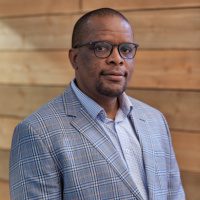
Tapiwa Mukwashi is a global health supply chain expert with more than 15 years of private sector and international development experience across sub-Saharan Africa. As director of the Global Technical Team, Tapiwa ensures that VillageReach has the high-quality technical assistance needed to support its country teams, global partnerships, and program portfolio. Connect with Tapiwa on LinkedIn.
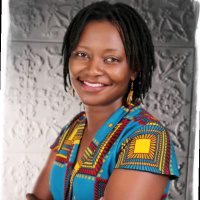
Tiwonge Mkandawire is the Supply Chain Global Technical Team Lead for VillageReach. She works on Last Mile Supply Chain systems strengthening with a focus community health systems strengthening. Tiwonge has over 14 years’ experience in healthcare supply chain and pharmaceutical strengthening and management in Africa. Her core areas of expertise include supply chain strategy and leadership development, supply chain workforce assessments and development, strategic partnerships and sustainable governance. Prior to joining VillageReach, Tiwonge spent five years with USAID South Africa as a Supply Chain Specialist and later Health Systems Strengthening Team Lead from 2016 to 2021. In these roles, she provided strategic, technical, administrative and financial directions for the USAID’s Supply Chain portfolio. She led USAID’s Health Systems Strengthening team in the PEPFAR interagency as well as coordination with the South African National Department of Health, Global Fund and other stakeholders. Tiwonge held various roles focused on Monitoring and Evaluation, Leadership Development and Government under the Strengthening Pharmaceutical Systems (SPS) and Systems for Improved Access to Pharmaceuticals and Services (SIAPS) programs under Management Sciences for Health. Tiwonge holds a Master of Public Health. Master of Science; Pharmacy and a Bachelor of Pharmacy Rhodes University. Connect with Tiwonge on LinkedIn.
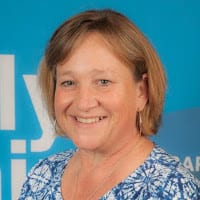
Jenny Froome is passionate about how supply chain management affects our lives on every level. Her original and now current profession is event management – the epitome of a well-honed supply chain. After many years working as COO of SAPICS – the professional body of supply chain management in South Africa she realized the importance of shining the light on the supply chains of Africa. Managing events such as the SAPICS annual conference, the People that Deliver Global Indaba, and the Africa Supply Chain Excellence Awards have truly allowed Jenny to combine her skills, knowledge, and community. Jenny’s lived all over the world and has settled in South Africa with her husband and many 4 legged friends while her sons are scattered around the world. Connect with Jenny on LinkedIn.
